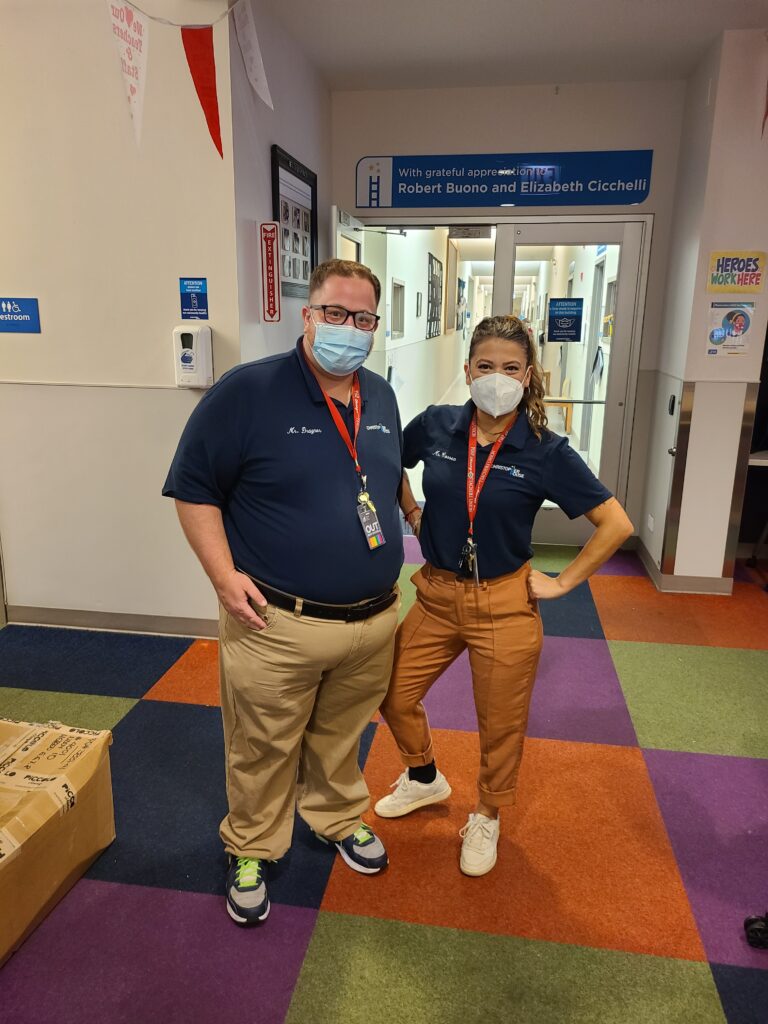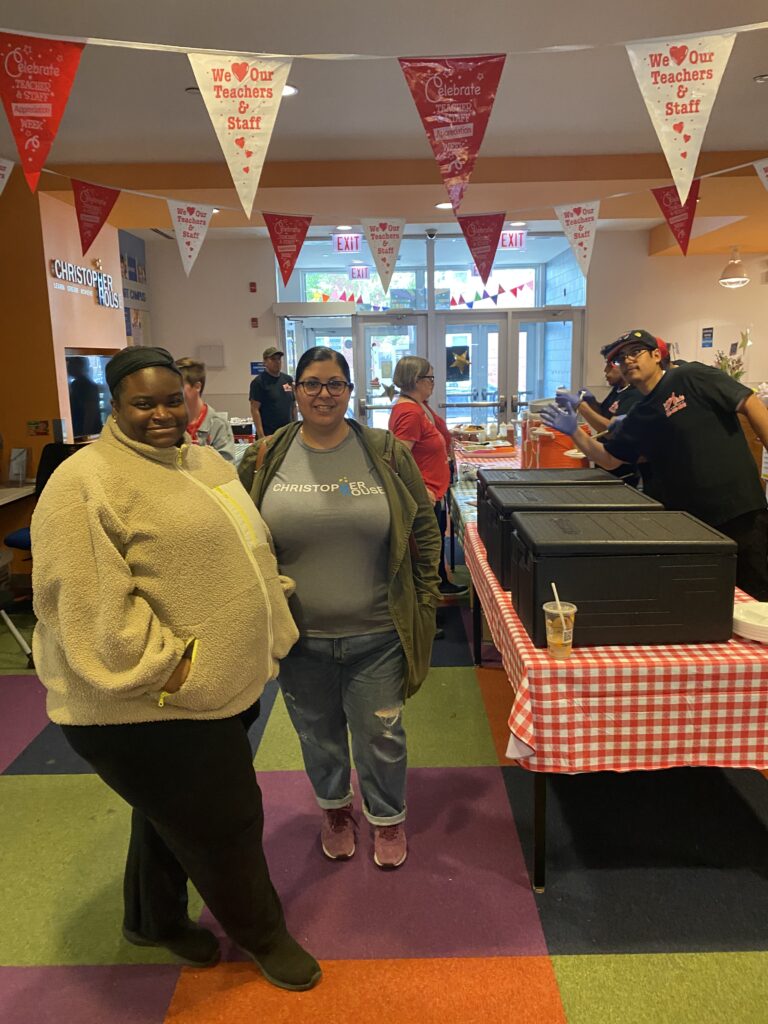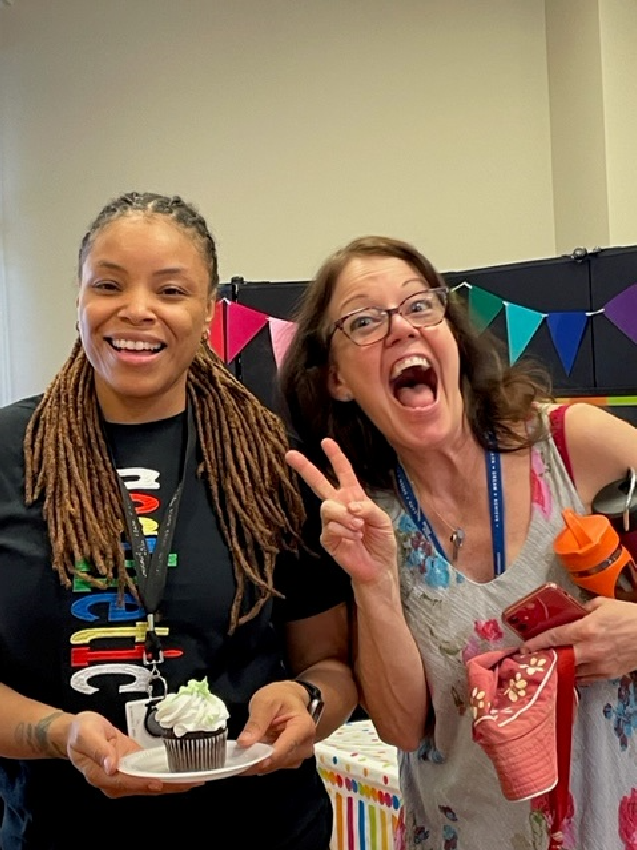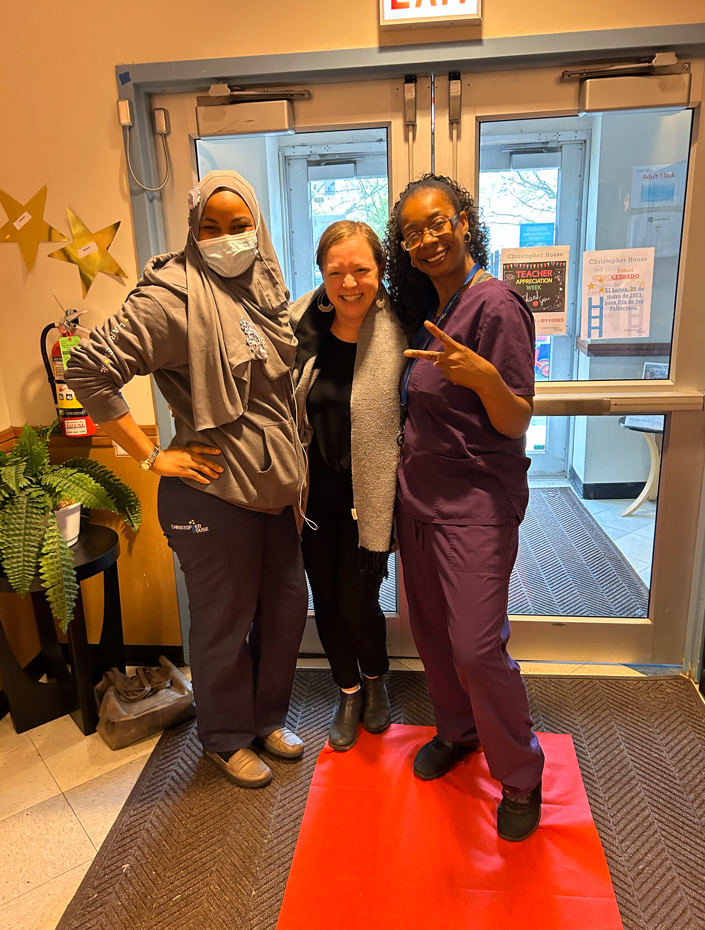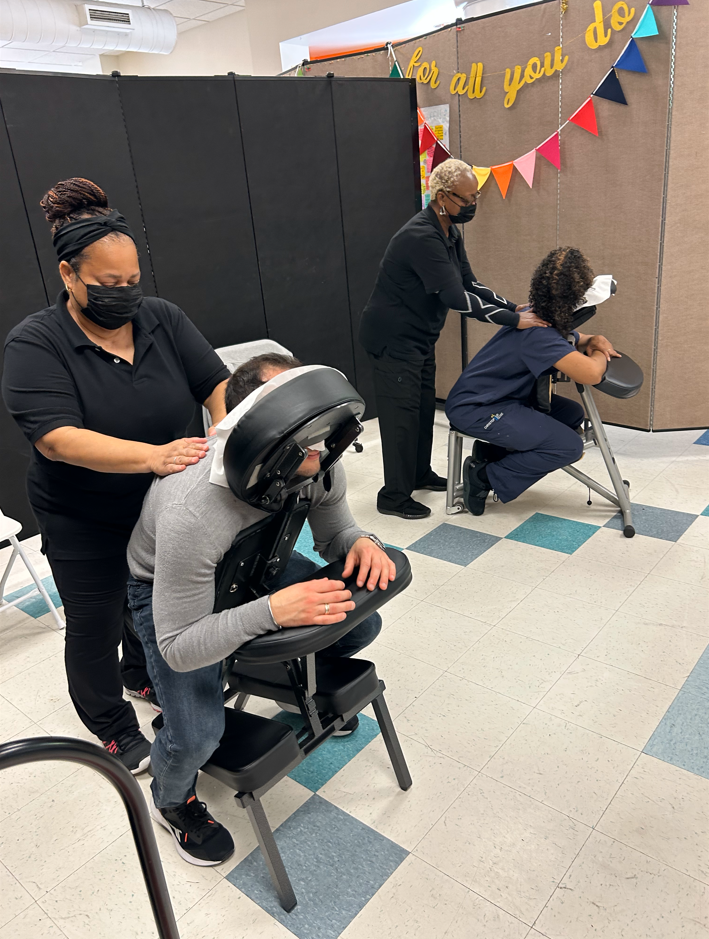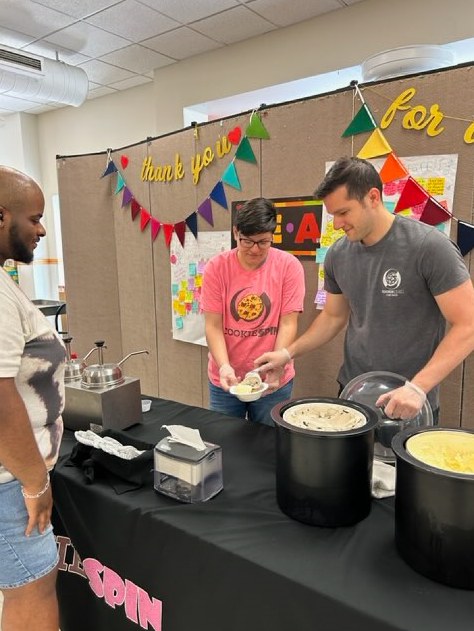Quilting with our Dads: The Importance of Parent Engagement in Early Childhood
Christopher House’s family of schools – Infant and Preschool, Elementary and Middle School, After School, and Parent school – implements a two-generation approach that highlights the importance of parent engagement for a scholar’s healthy development, both in and outside of the classroom. Teachers and Family Advocates work together to collaborate on different and creative ways to invite parents into the classroom, and Ms. Glenna’s toddler classroom is no exception!
Across Christopher House’s Uptown campus, fathers are joining their young scholars in the infant and toddler classrooms to help decorate fabric pieces that will be sewn together to form a large and vibrant quilt. Each individual piece has been created by a scholar and their father and their collaborative designs are representative of the unique and loving relationship that they share.
According to Ms. Glenna, a Mentor Teacher in Early Childhood, the goal of the art project was multifaceted; 1) to expose young scholars to the art medium of fabric, and 2) to invite fathers into their child’s classroom setting to creatively engage with their education in a fun and exciting way.
“Our hope was to create an activity that allows parents and children to enjoy an experience together in a school setting. It was truly a joy to see everyone, both fathers and the students, excited to create something together,” Glenna shared. “One of my students’ fathers could not join us for the activity because he is currently in Ethiopia. The family did not want their child to miss out on the experience, so my student’s mother came, propped up her phone, and facetimed him so he could be present for the project. It was really a special moment. Another father, while reflecting on his experience, even said to me, ‘It was one of my proudest moments as a parent.’”
Throughout the year, Glenna and the Family Support Services team support parent engagement in many ways, from bi-annual home visits during which teachers work with parents and caregivers to engage in at-home activities that support their child’s development, to inviting parents and caregivers into the classroom to facilitate lessons centered on identify, diversity, and culture.
“During the year, we explore identity, what it means, and why it should be celebrated. We encourage parents to come into the classroom to share about their family’s identity and culture through activities like sharing key words in their home languages and home experiences that relate to early childhood explorations. For example, if we are studying cars, the family might be asked to share a photo of their car or how they come to school. We are also inviting families to come to our classrooms during our outdoor play time and share stories or songs in their home language, or teach the children a simple game that they remember from their childhood. Parents are also encouraged to borrow books from school to read at home as another way of making home/school connections,” Glenna shared.
The earliest years of a child’s education, from birth to five years old, are the most formative and set the foundation for future learning and development. Parent engagement is essential during this time as it encourages children to find joy in learning, extends learning – academic and social emotional – beyond the classroom, and helps prepare young scholars to become lifelong learners.
“Parent engagement is critical at all ages, but especially Early Childhood. Providing activities for parents to do with their children can give insight to parents about developmentally appropriate experiences that they can do with their children,” Glenna shared. “For children, there is true joy in learning, exploring, and having classroom experiences with the most important people in their lives – their parents.”
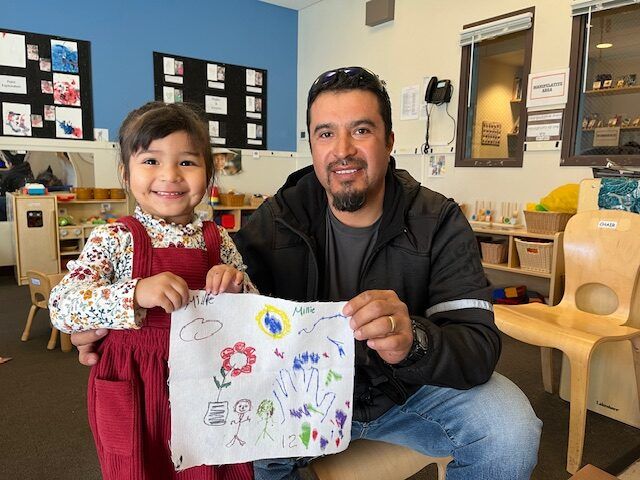
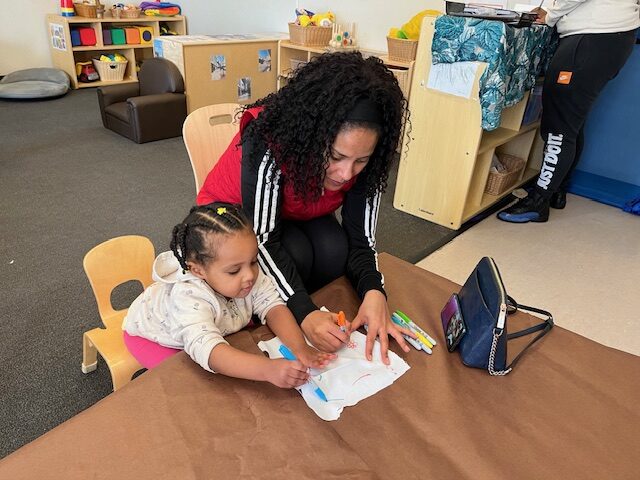
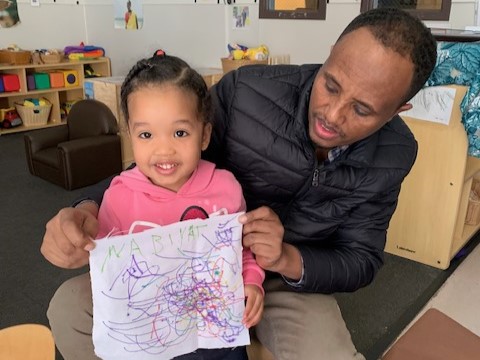
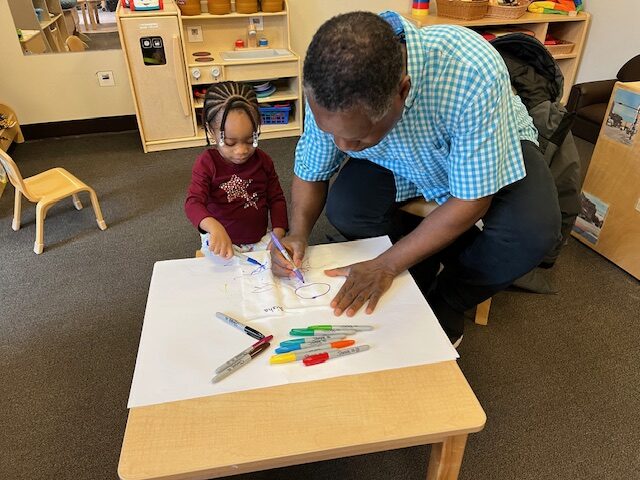
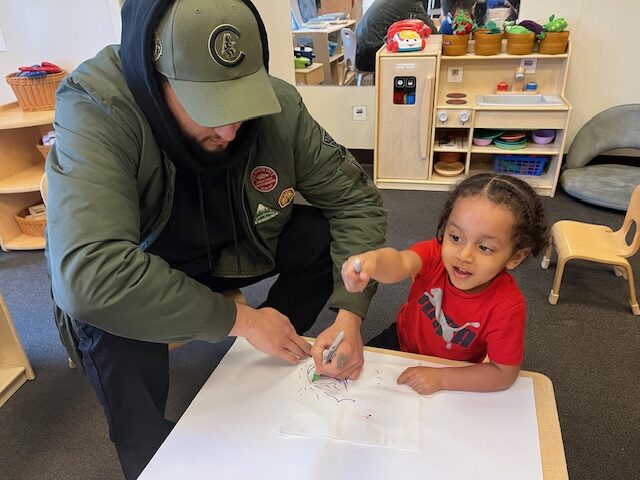
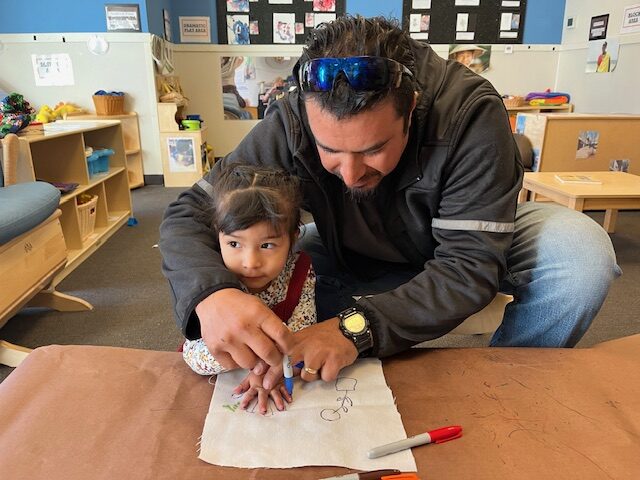
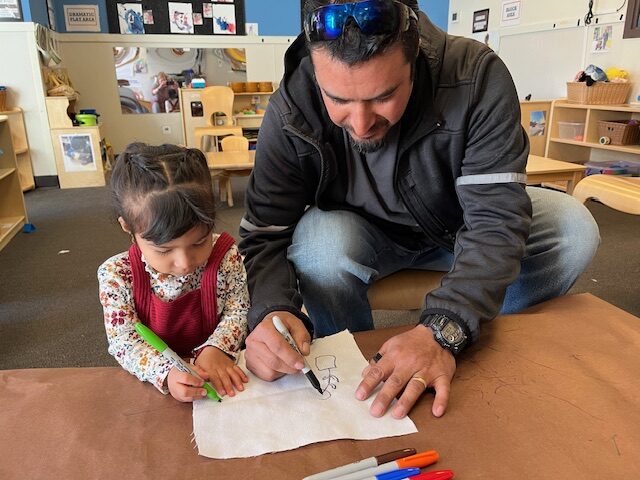
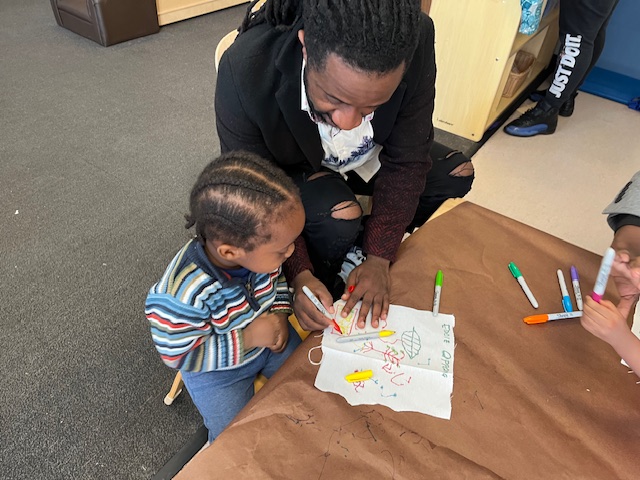
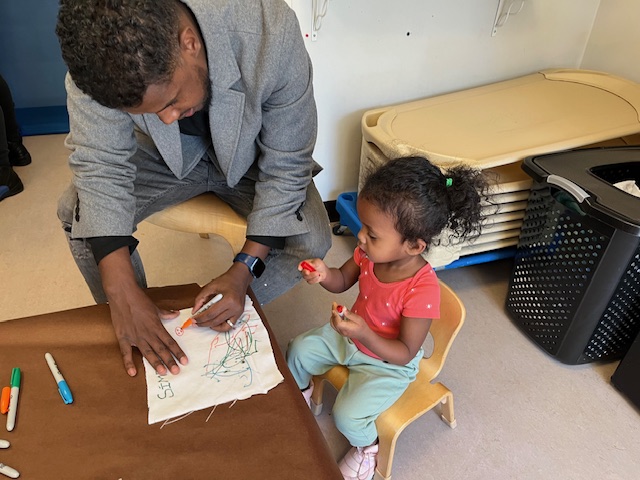
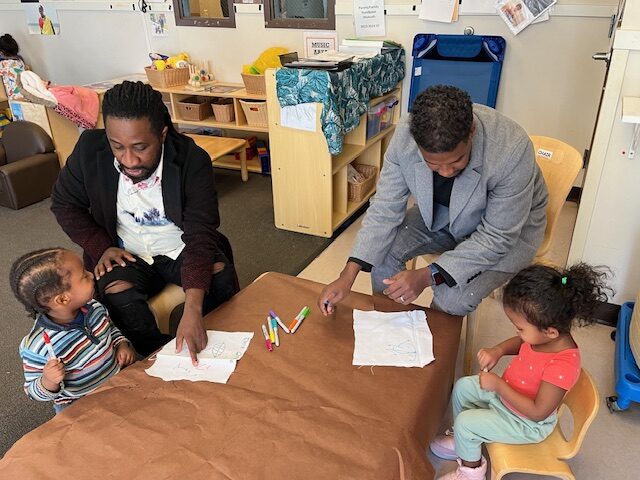
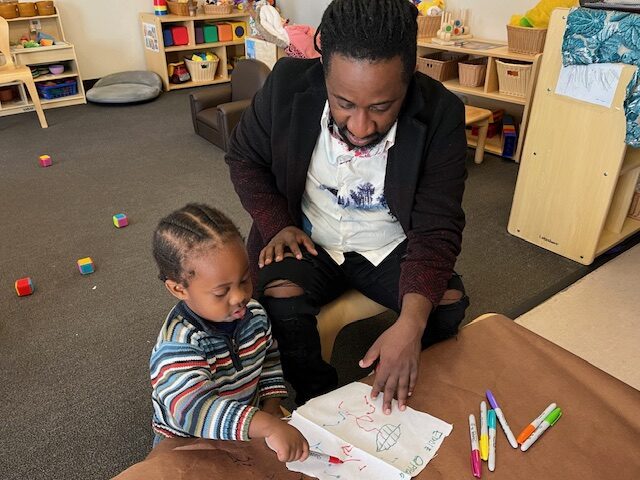
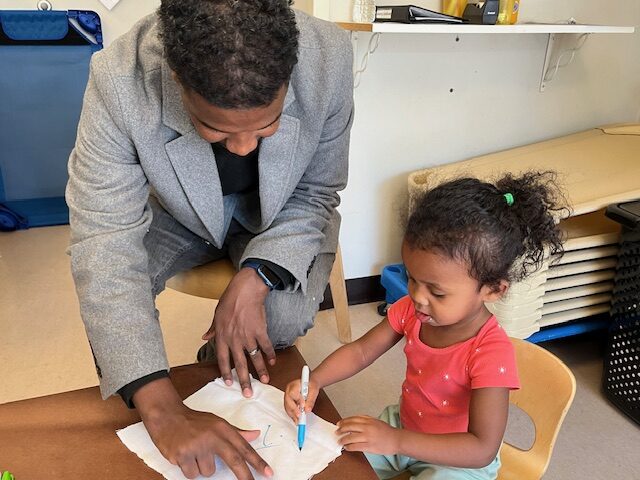

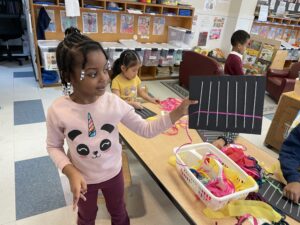 “Celebrating Black History Month says, ‘We care about our Black scholars and the Black Americans who have helped shape our country. It says both you and those who came before you are worth celebrating.’ It creates a sense of belonging for our Black scholars and helps our other scholars learn to create an environment that celebrates history and culture, even if it’s not your own,” Adejumoke “Jummy” Akinbusuyi, Uptown Site Director, shared.
“Celebrating Black History Month says, ‘We care about our Black scholars and the Black Americans who have helped shape our country. It says both you and those who came before you are worth celebrating.’ It creates a sense of belonging for our Black scholars and helps our other scholars learn to create an environment that celebrates history and culture, even if it’s not your own,” Adejumoke “Jummy” Akinbusuyi, Uptown Site Director, shared.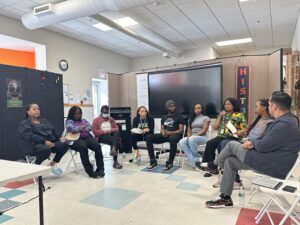 At the heart of these interactive and joyous activities is the teaching that our unique identities should be proudly expressed and celebrated at all stages of life. We create culturally rich, diverse, and inclusive environments that encourage our students to grow in appreciation and love for not only themselves, but for those around them by celebrating our community members’ authentic selves.
At the heart of these interactive and joyous activities is the teaching that our unique identities should be proudly expressed and celebrated at all stages of life. We create culturally rich, diverse, and inclusive environments that encourage our students to grow in appreciation and love for not only themselves, but for those around them by celebrating our community members’ authentic selves.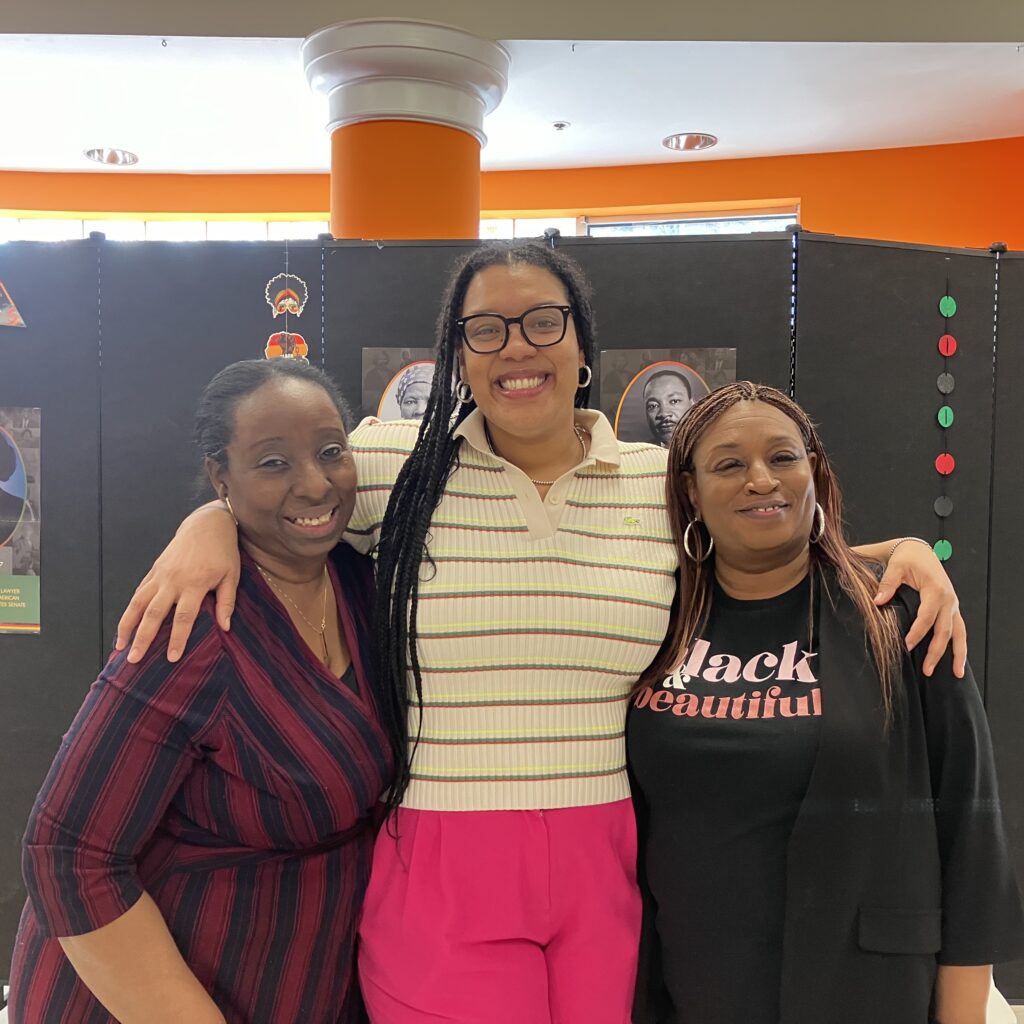
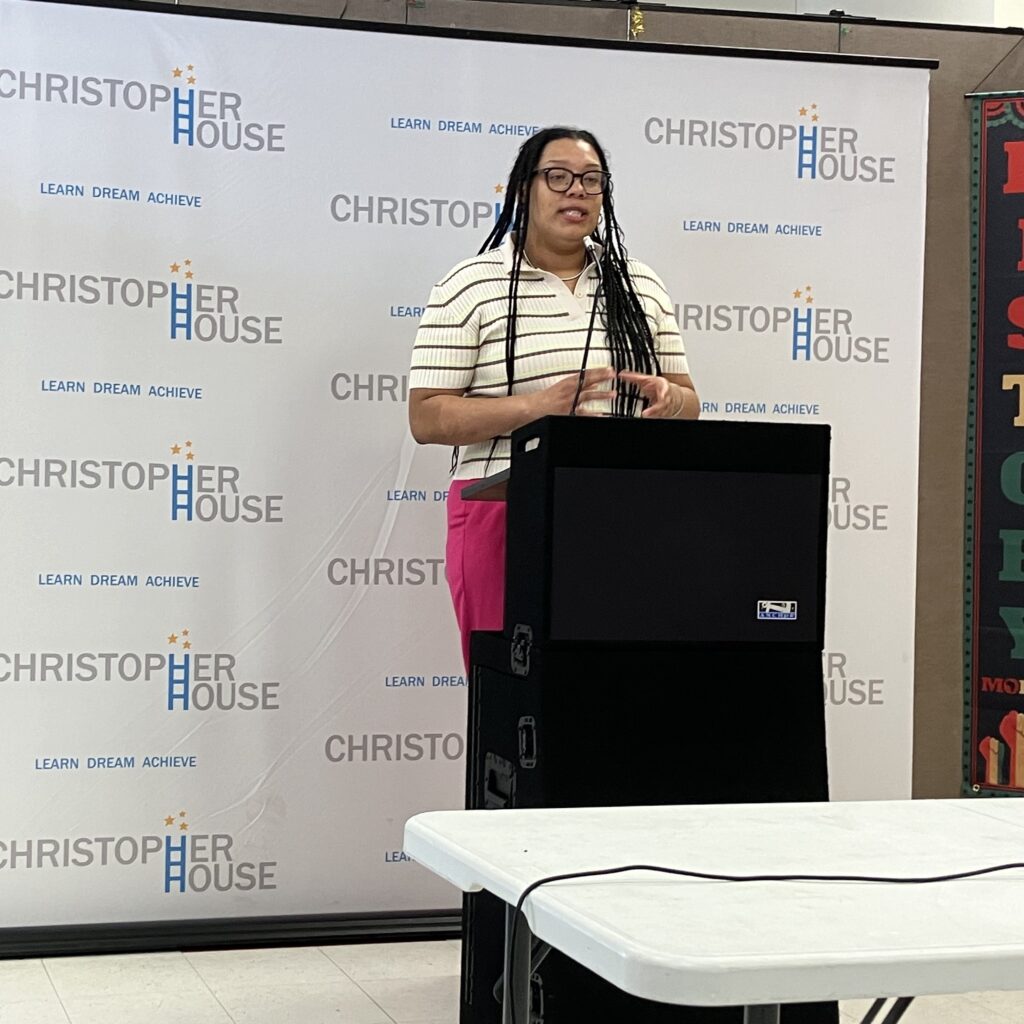
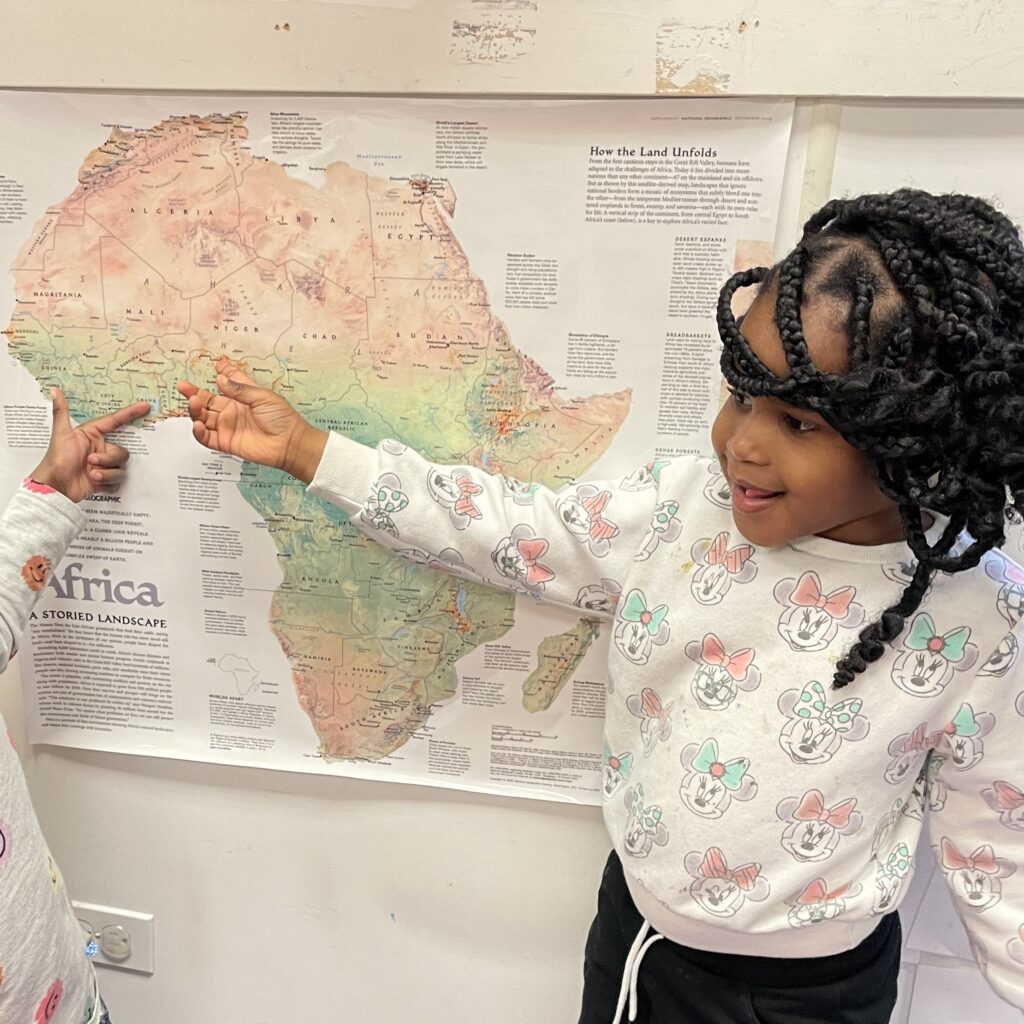
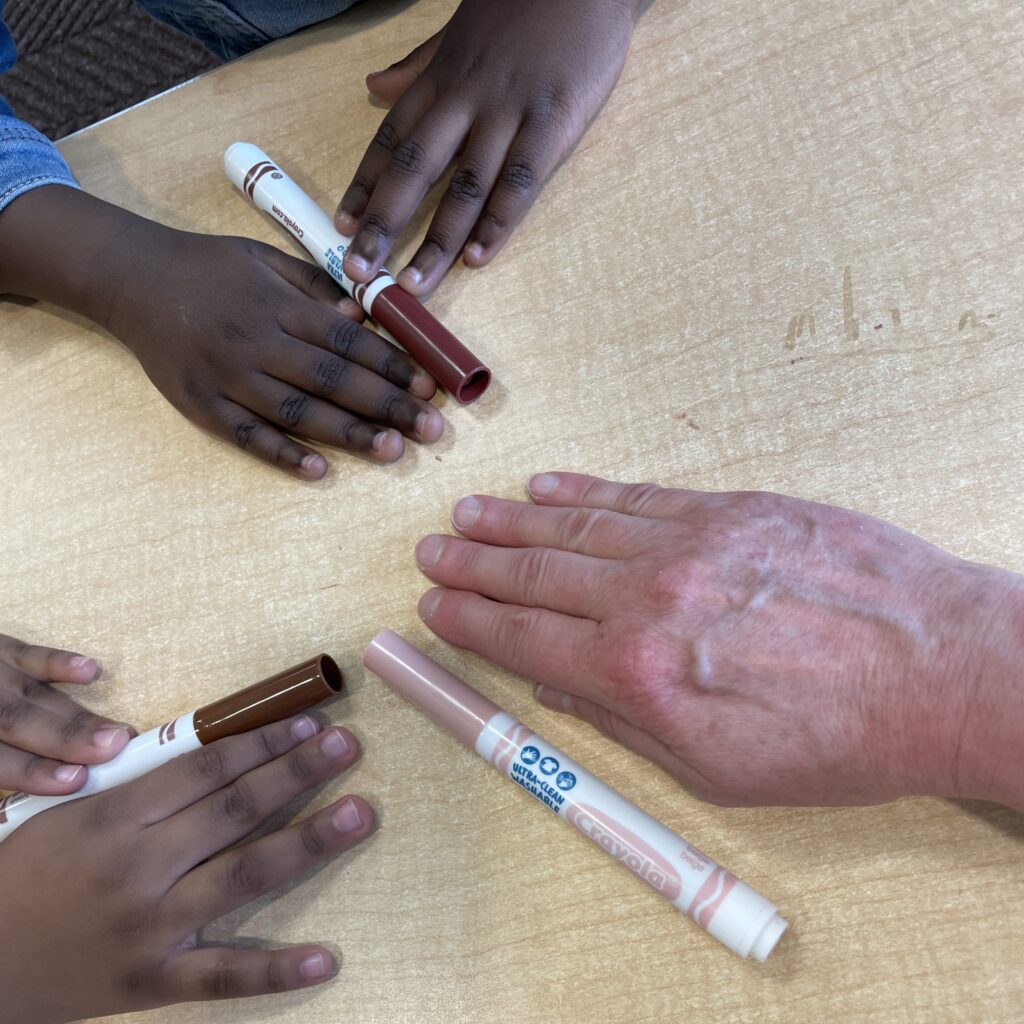
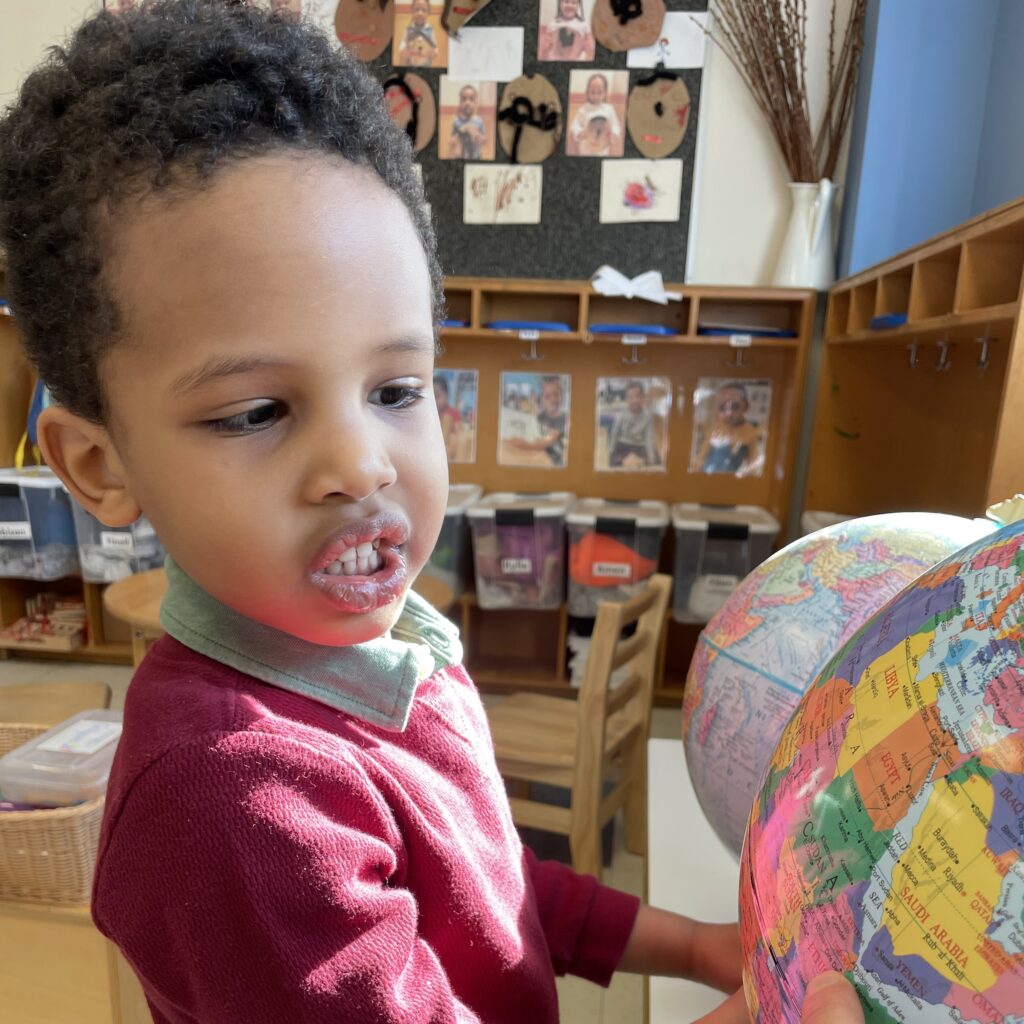
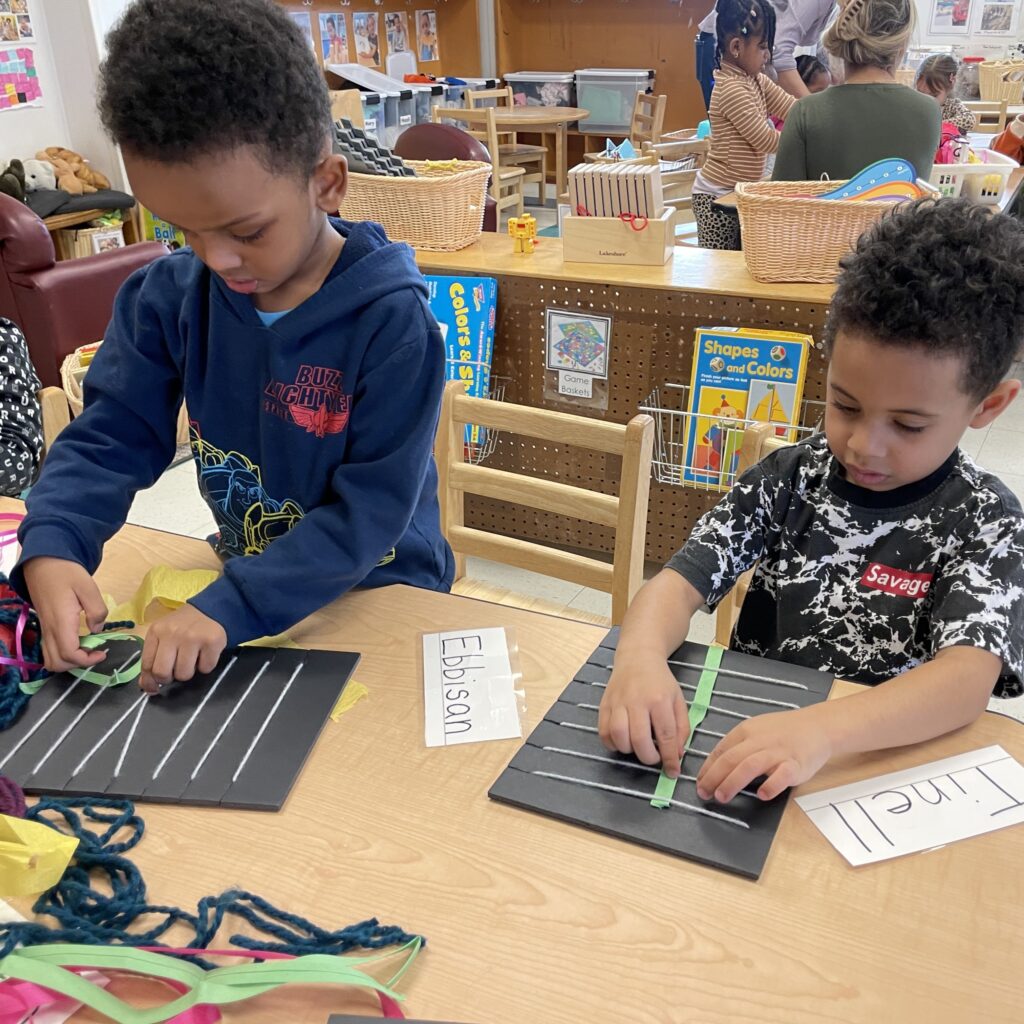
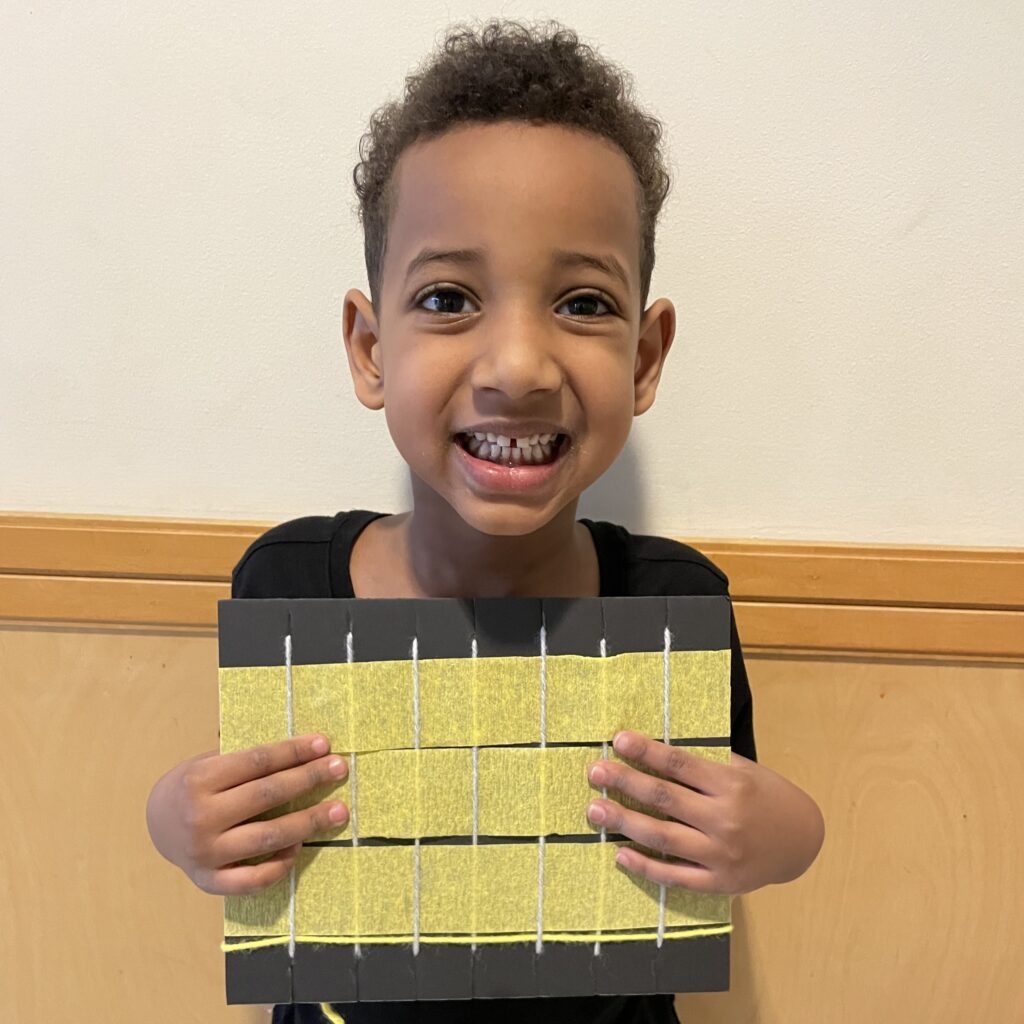
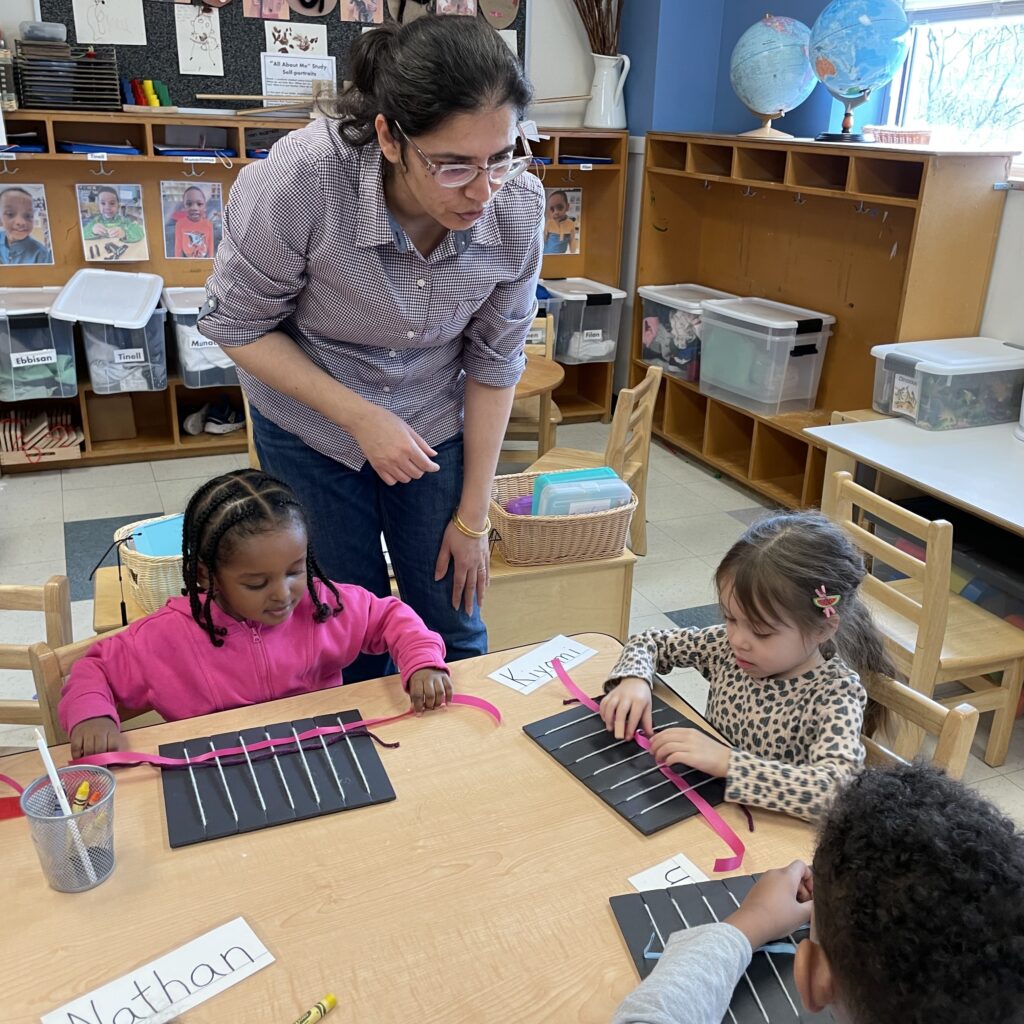
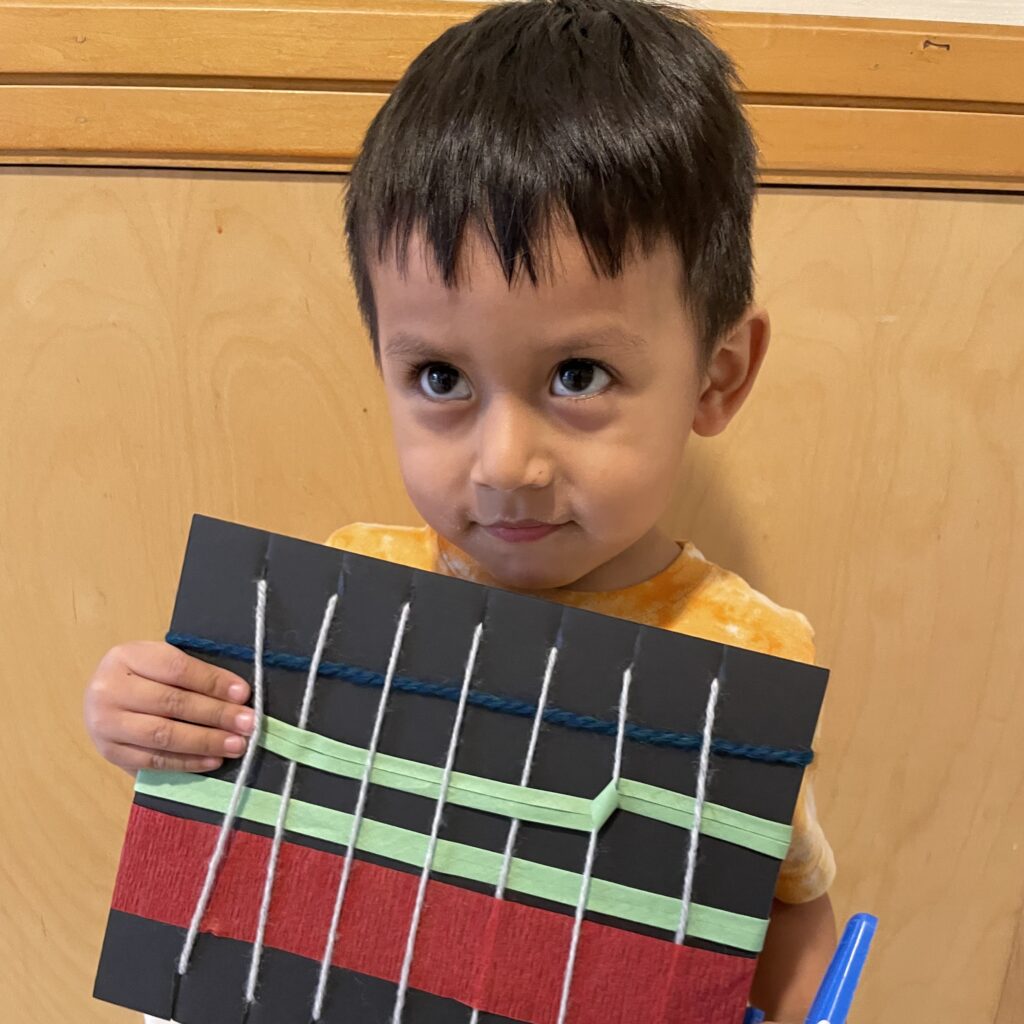
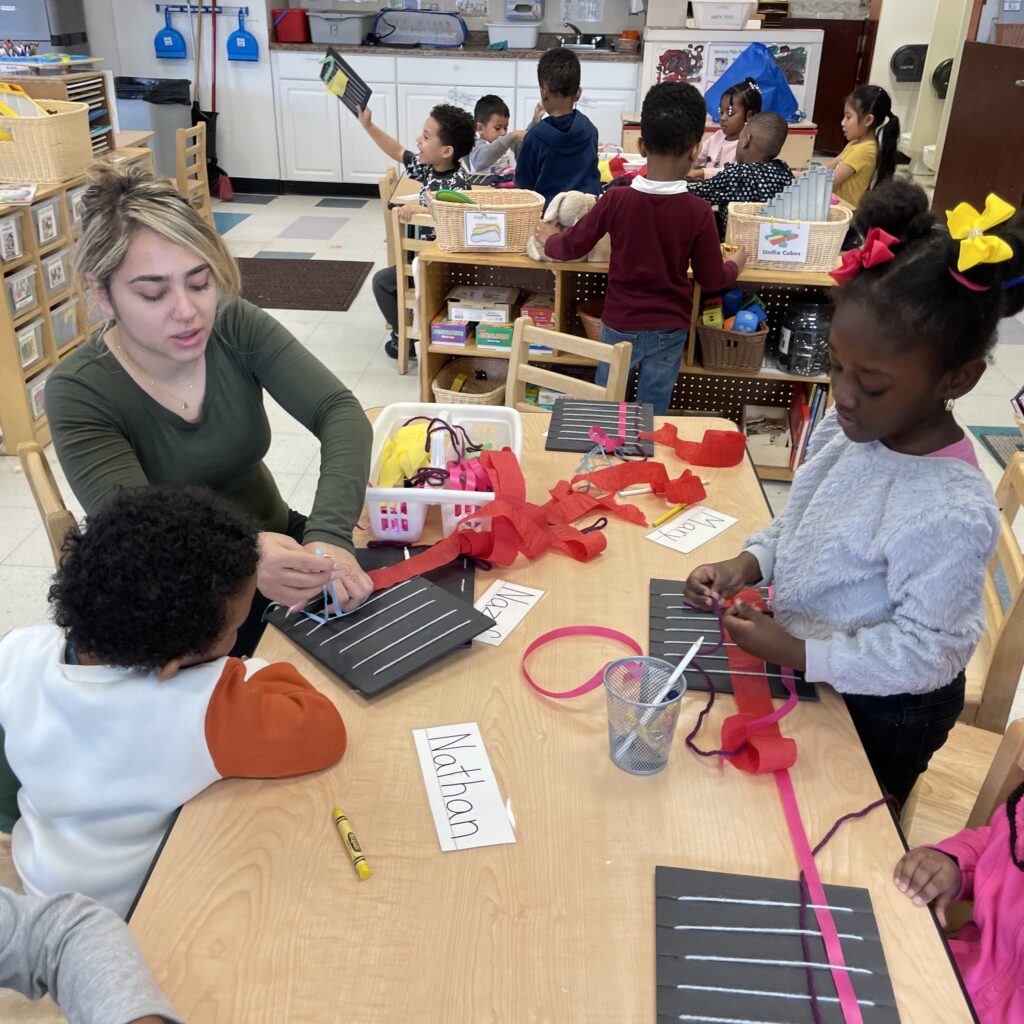
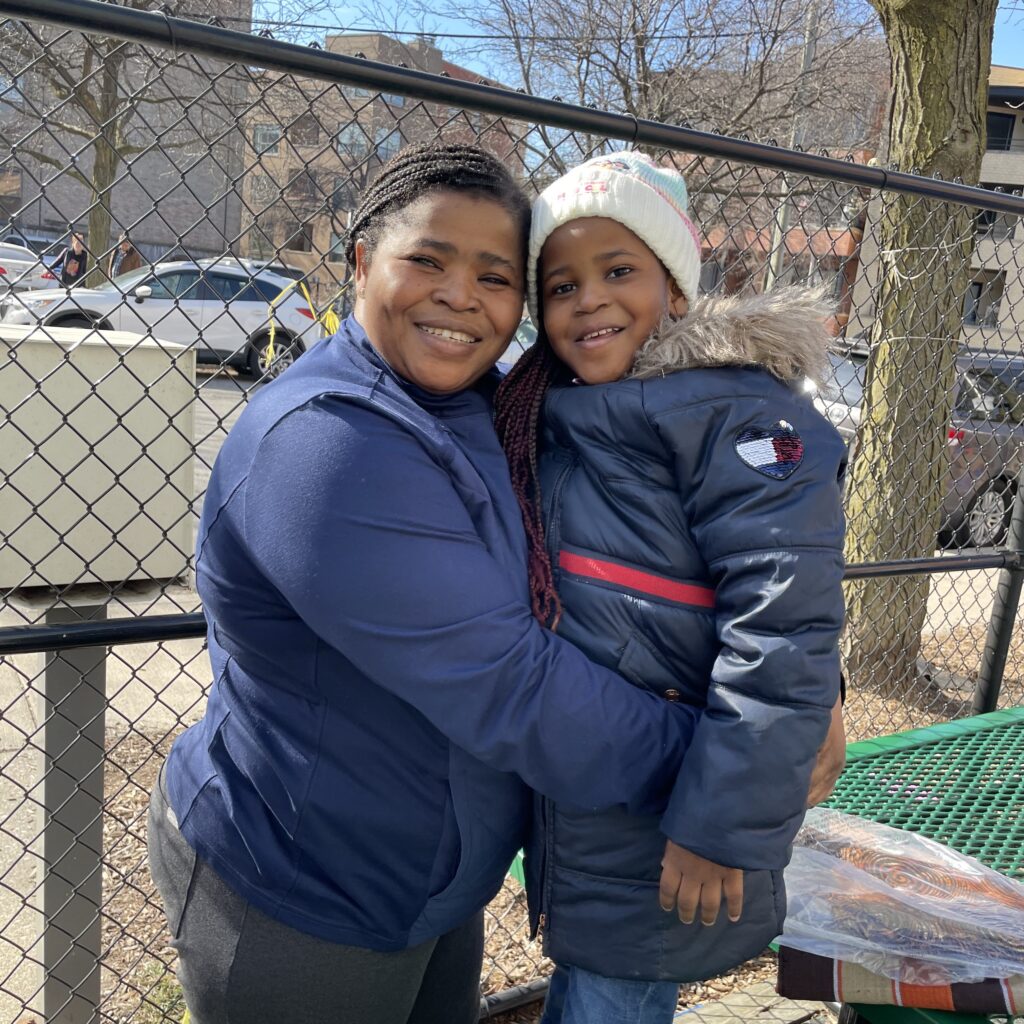
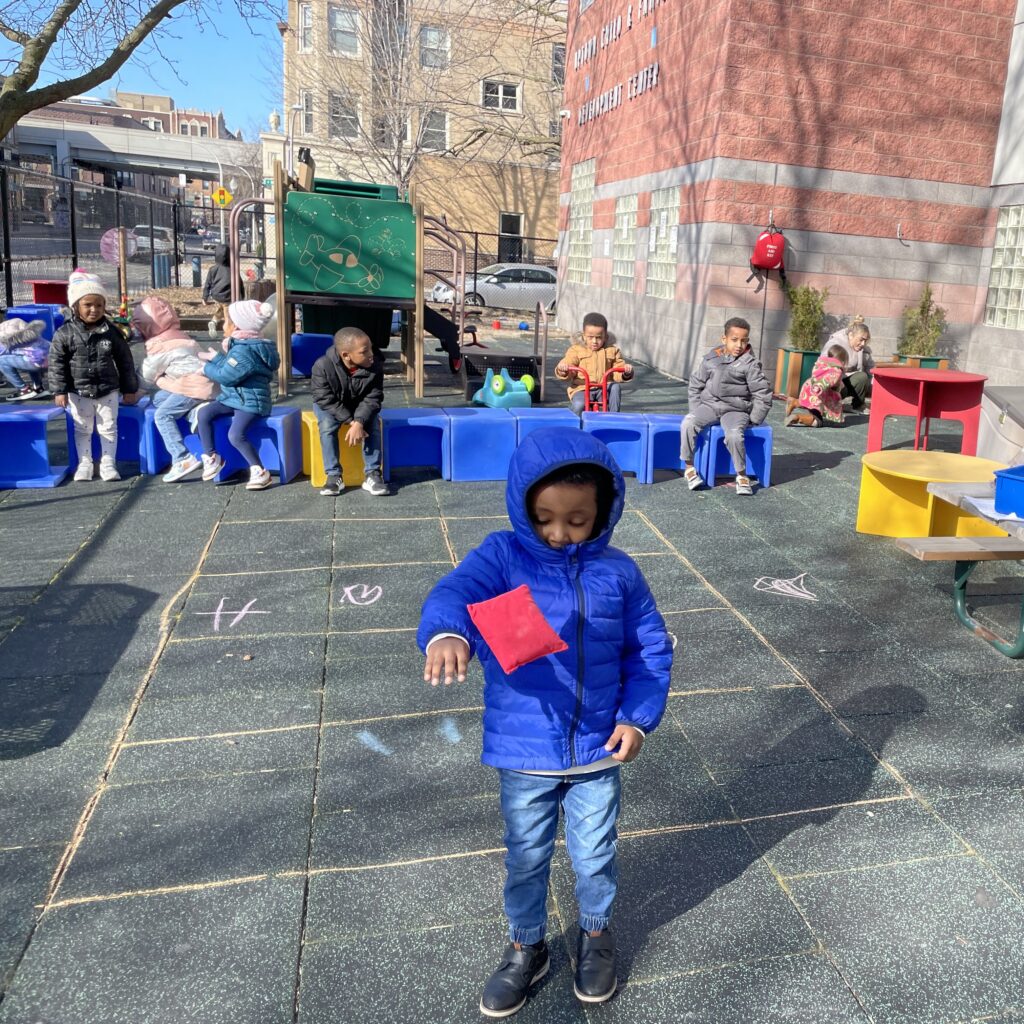
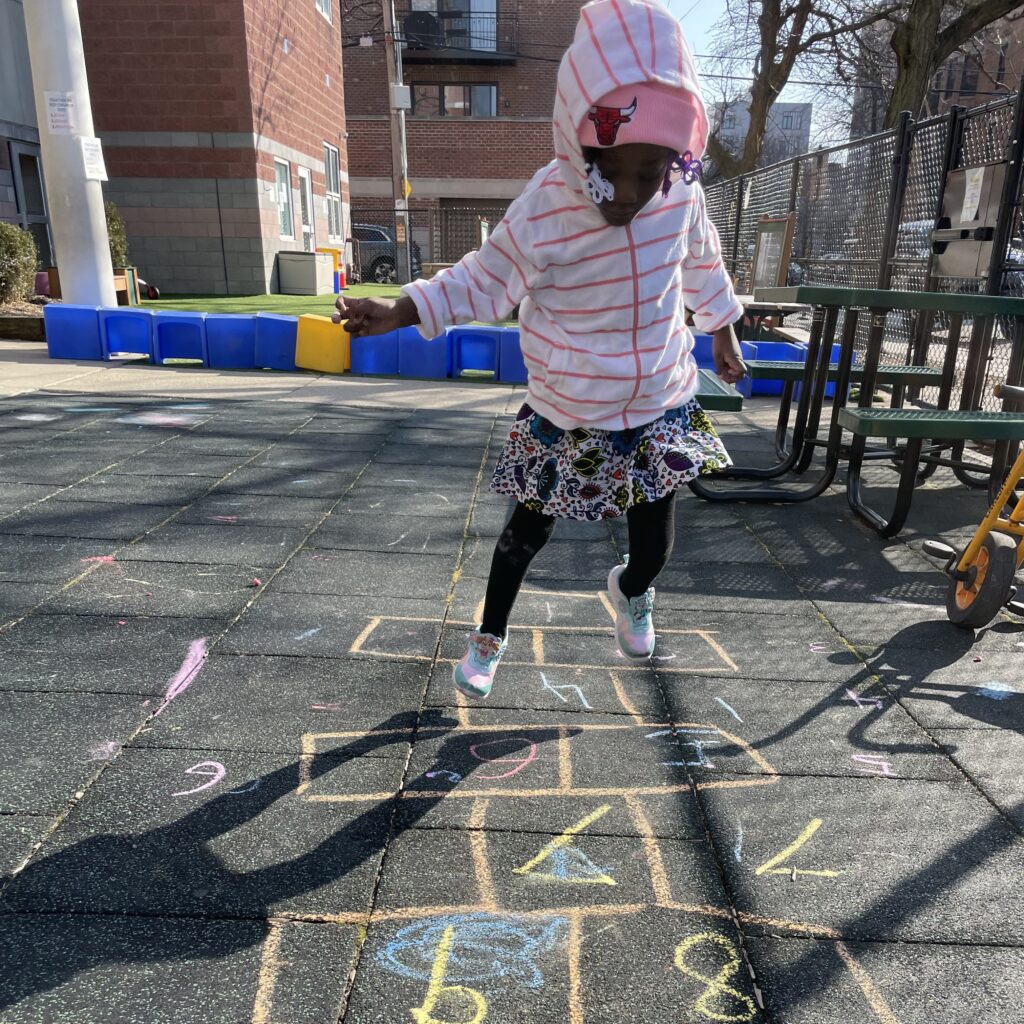
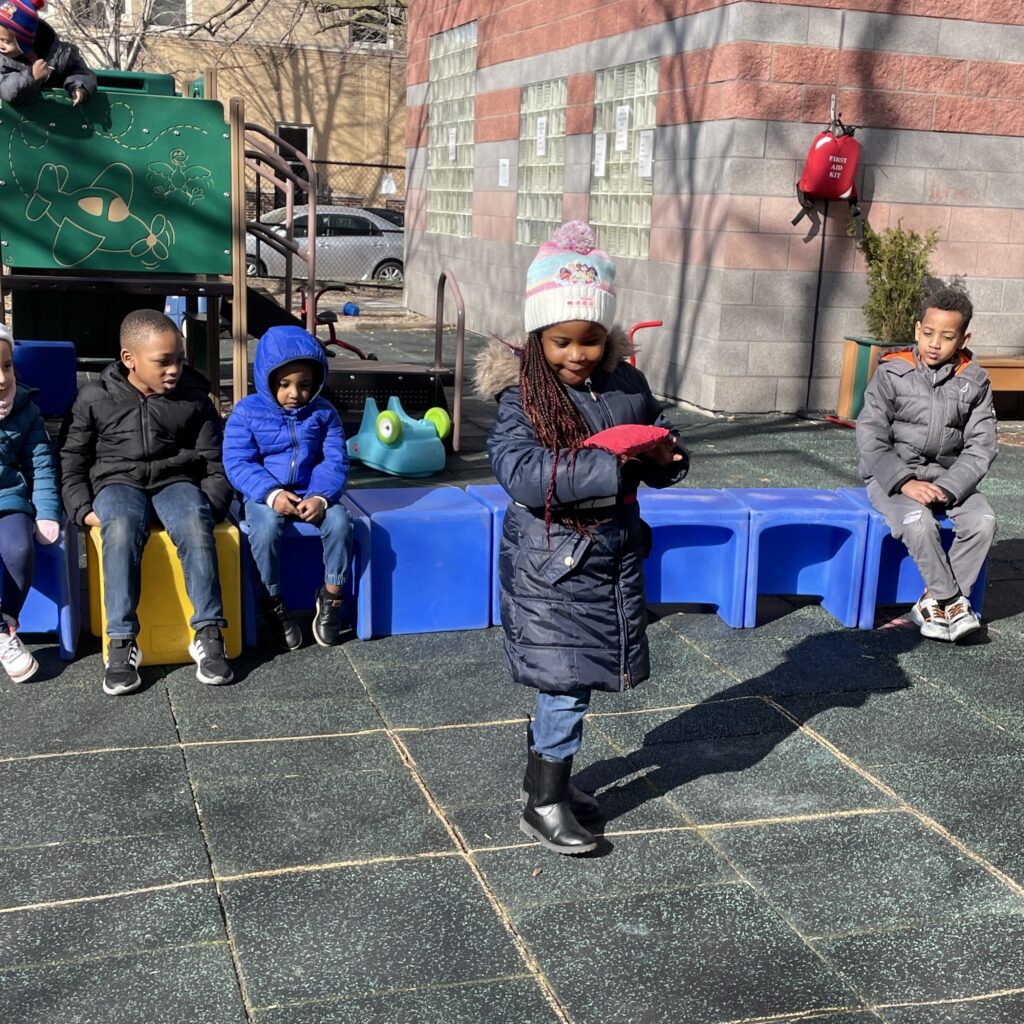
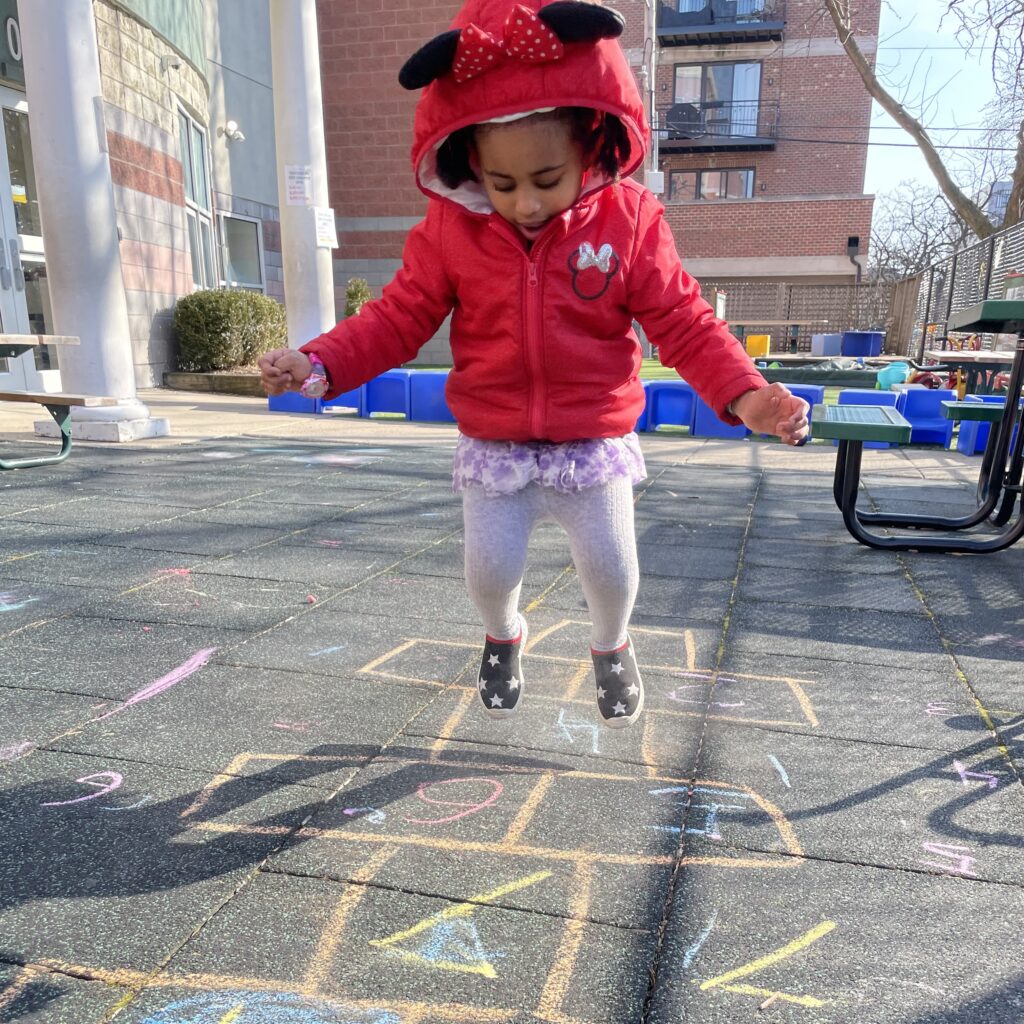
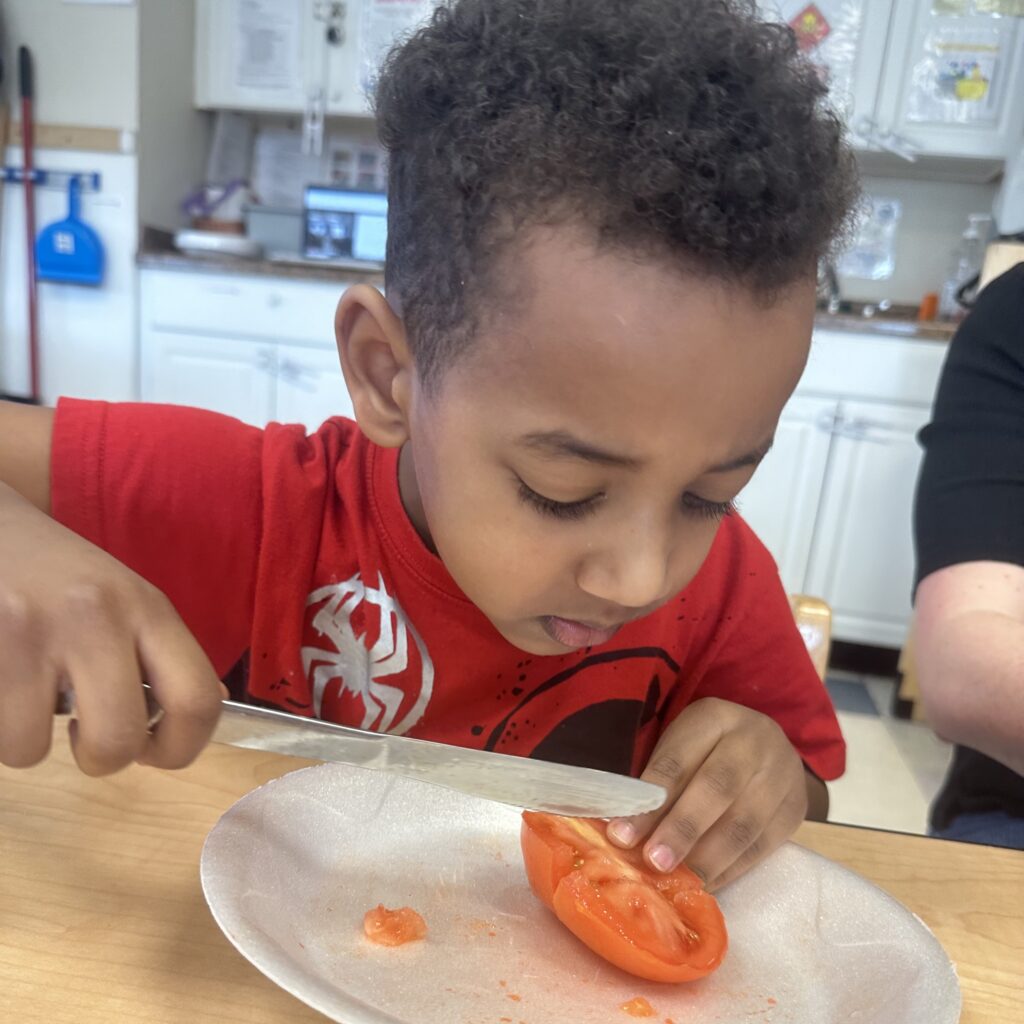
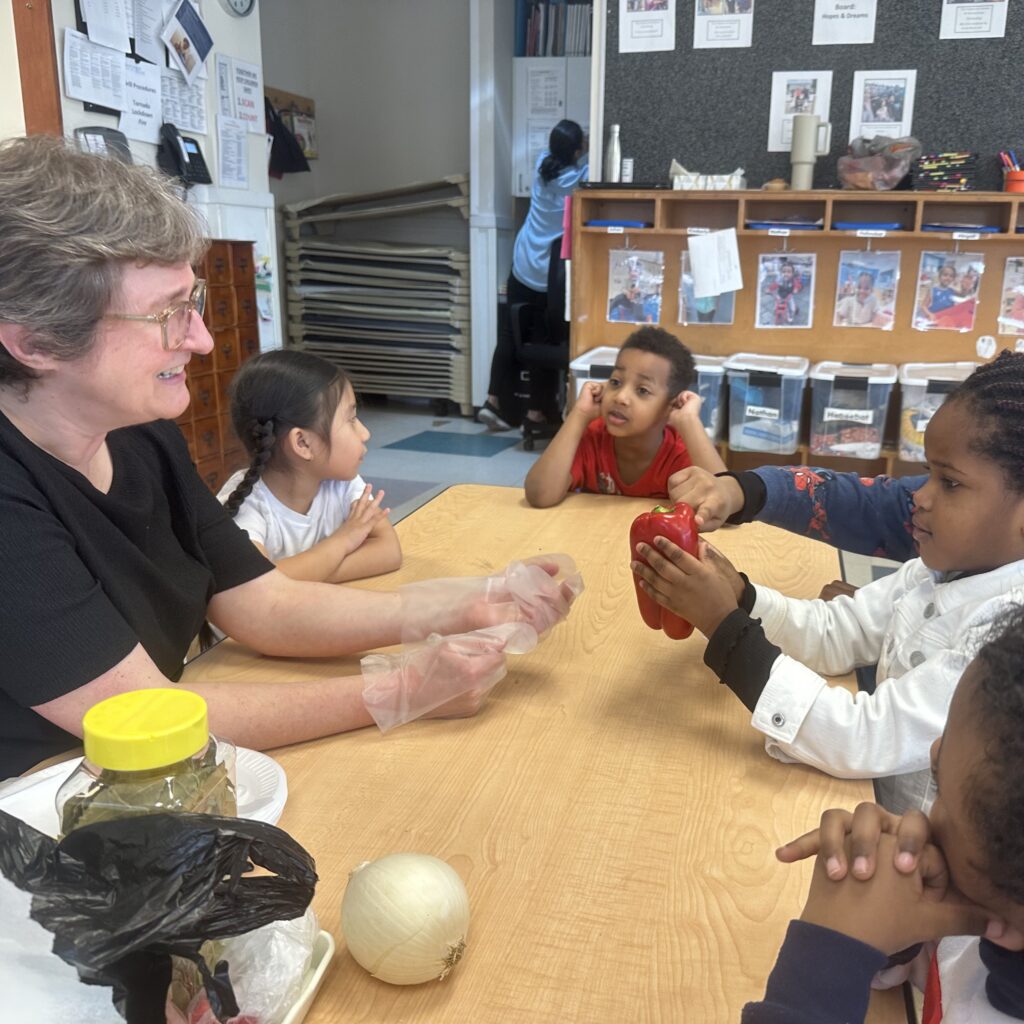
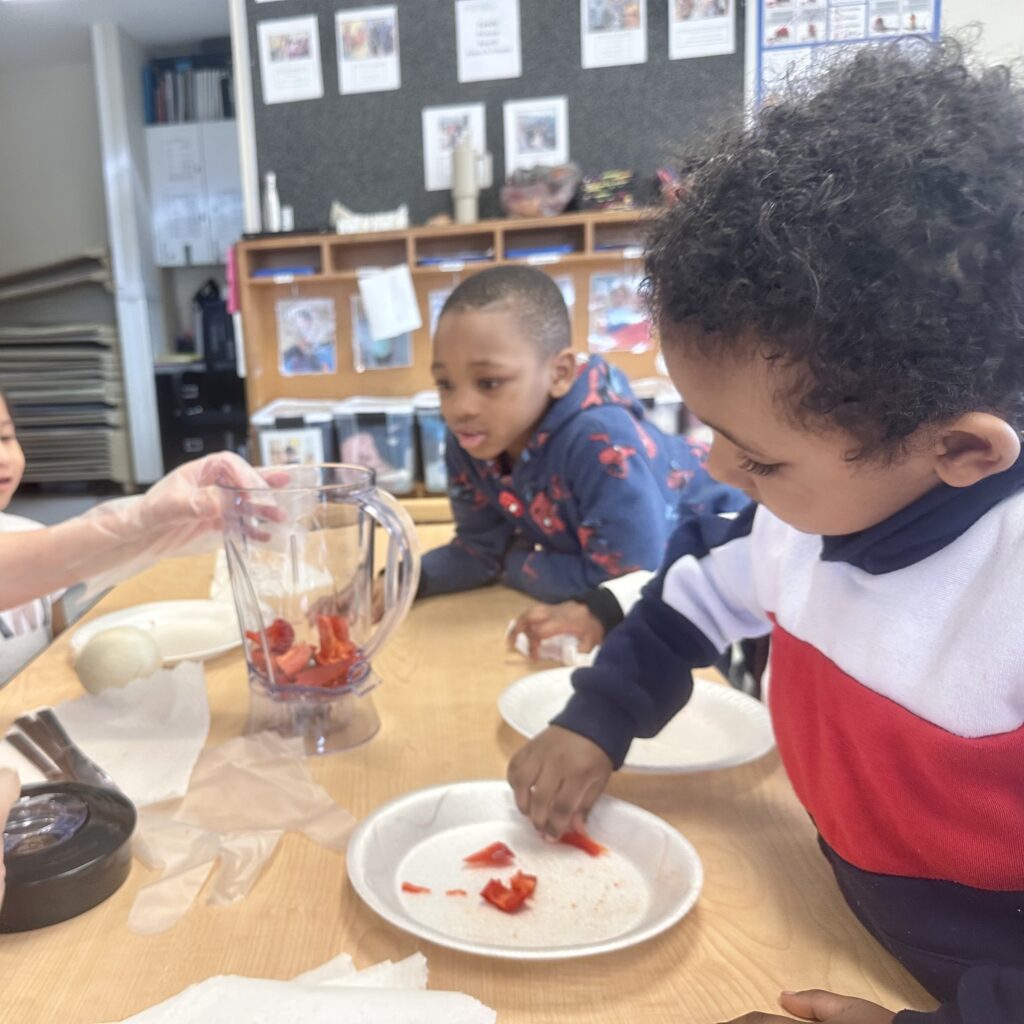
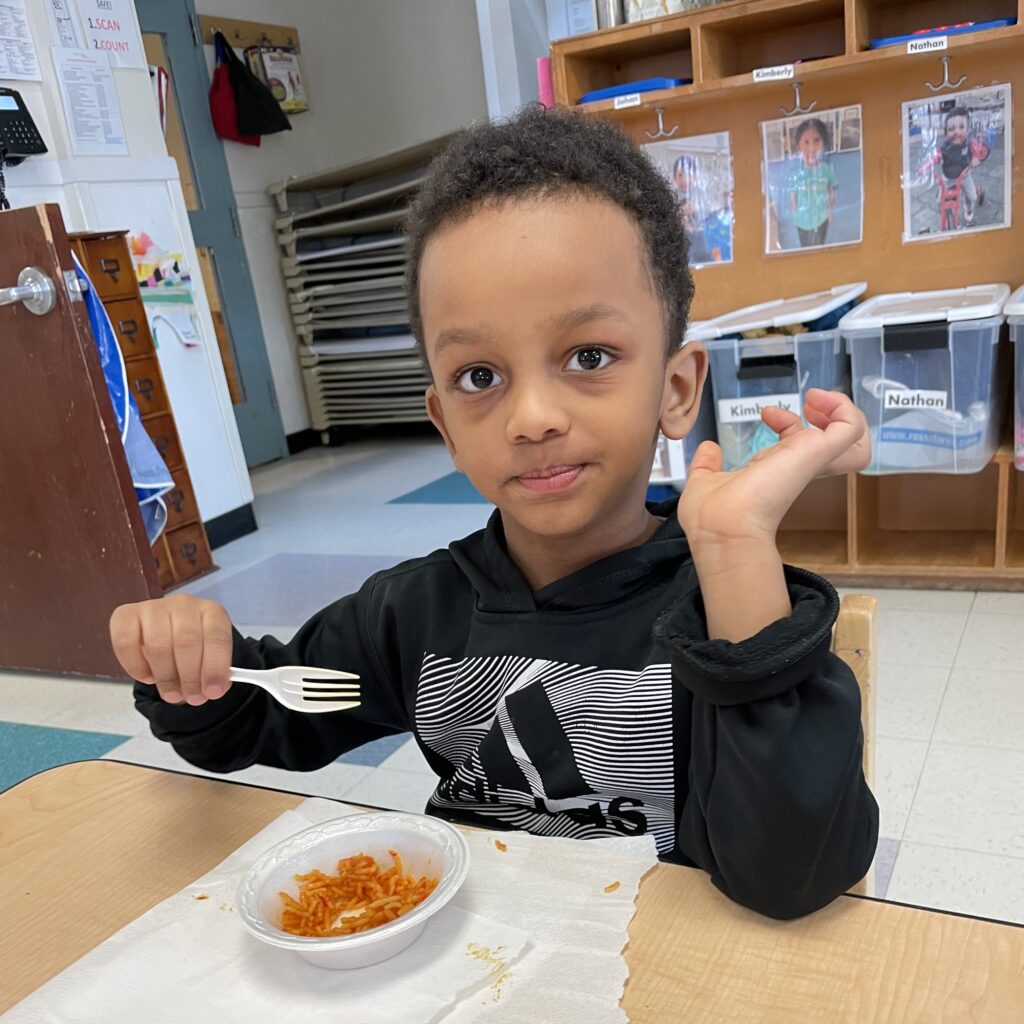
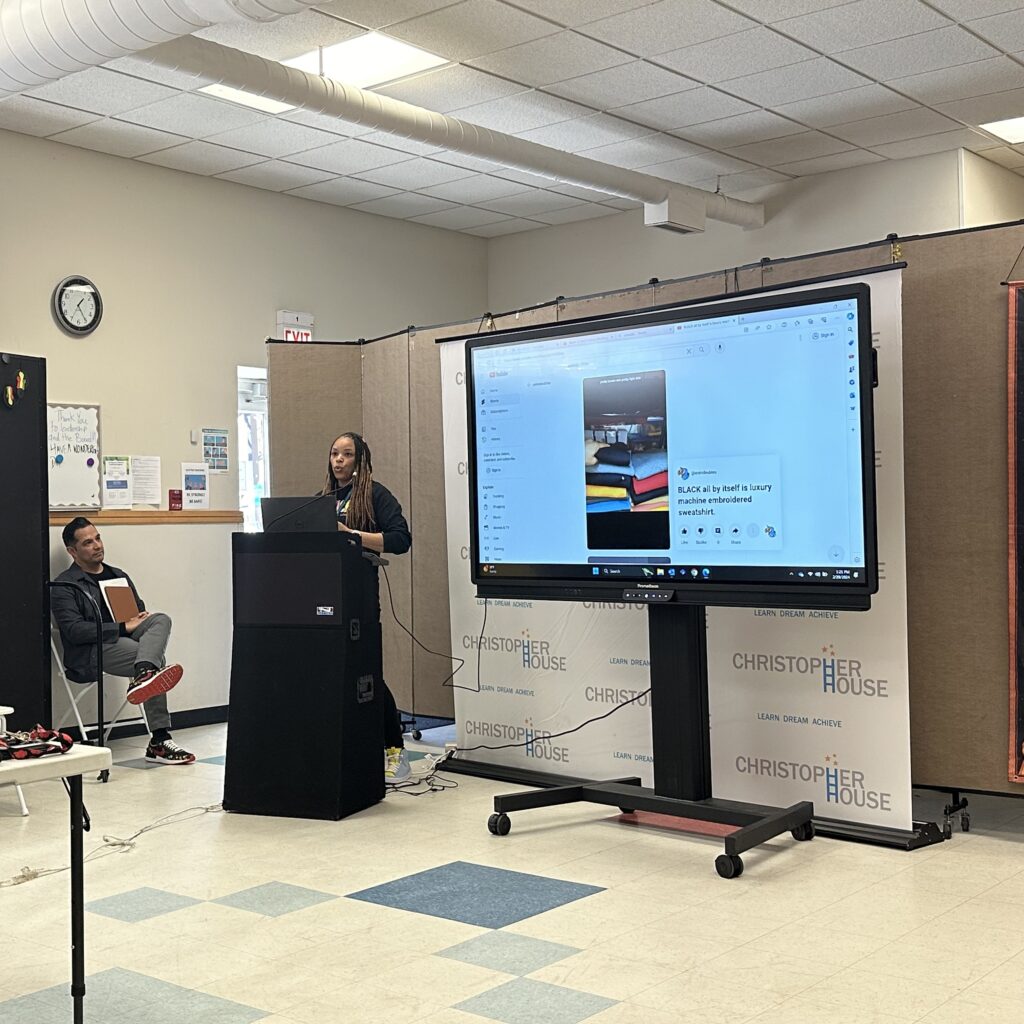
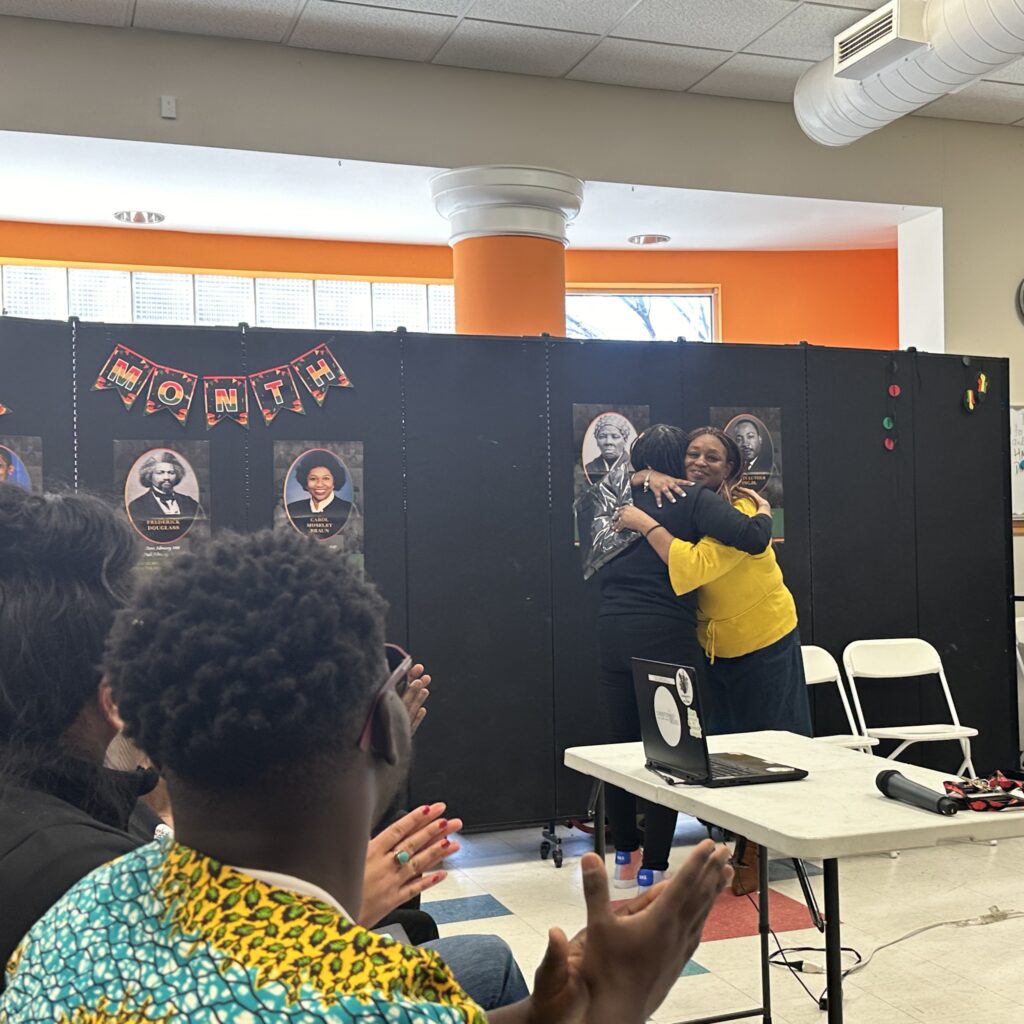
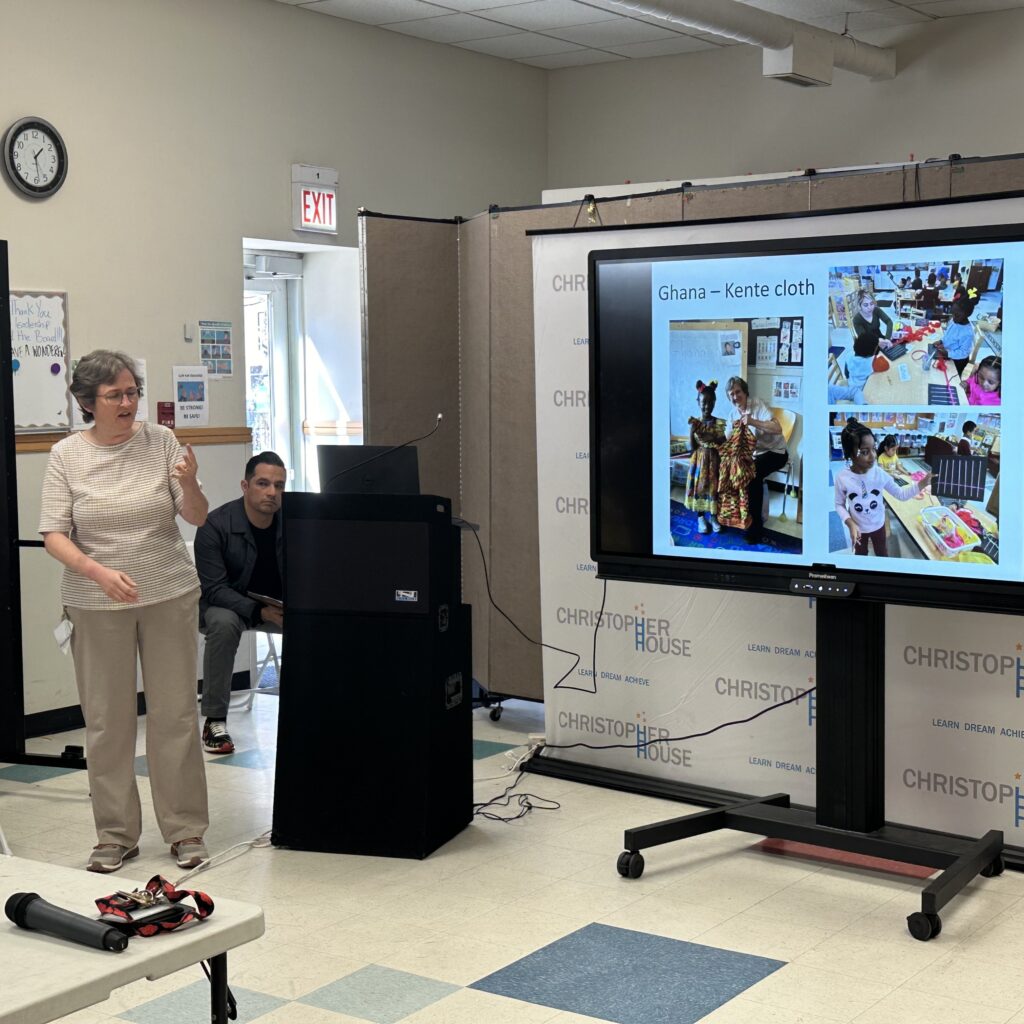
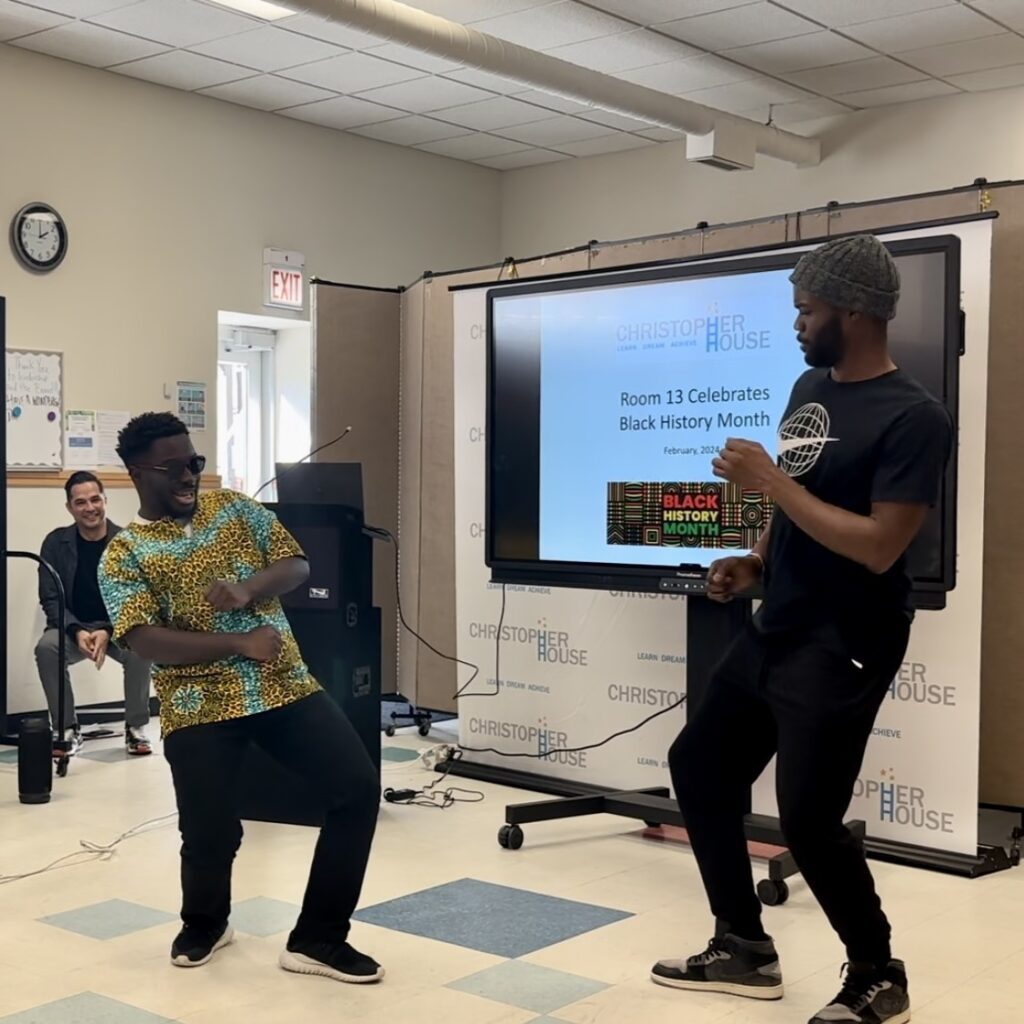
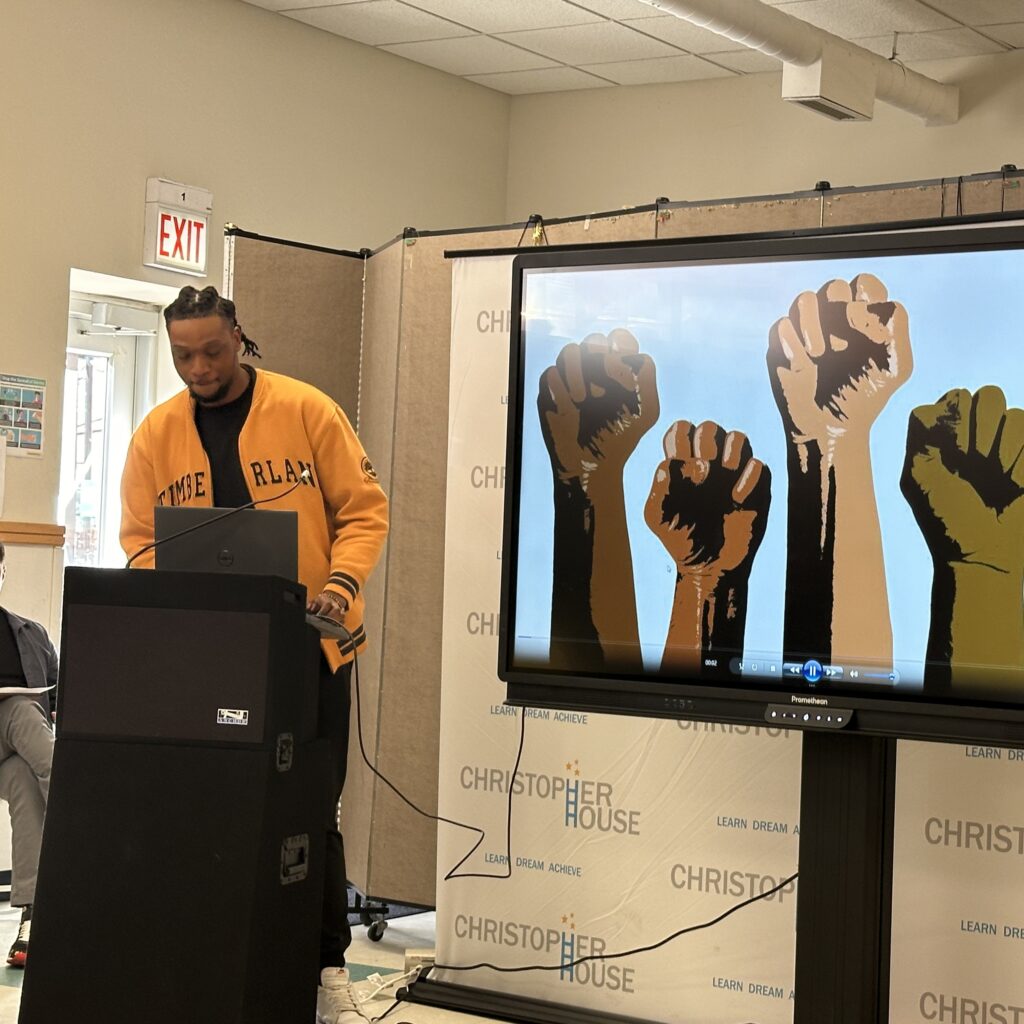
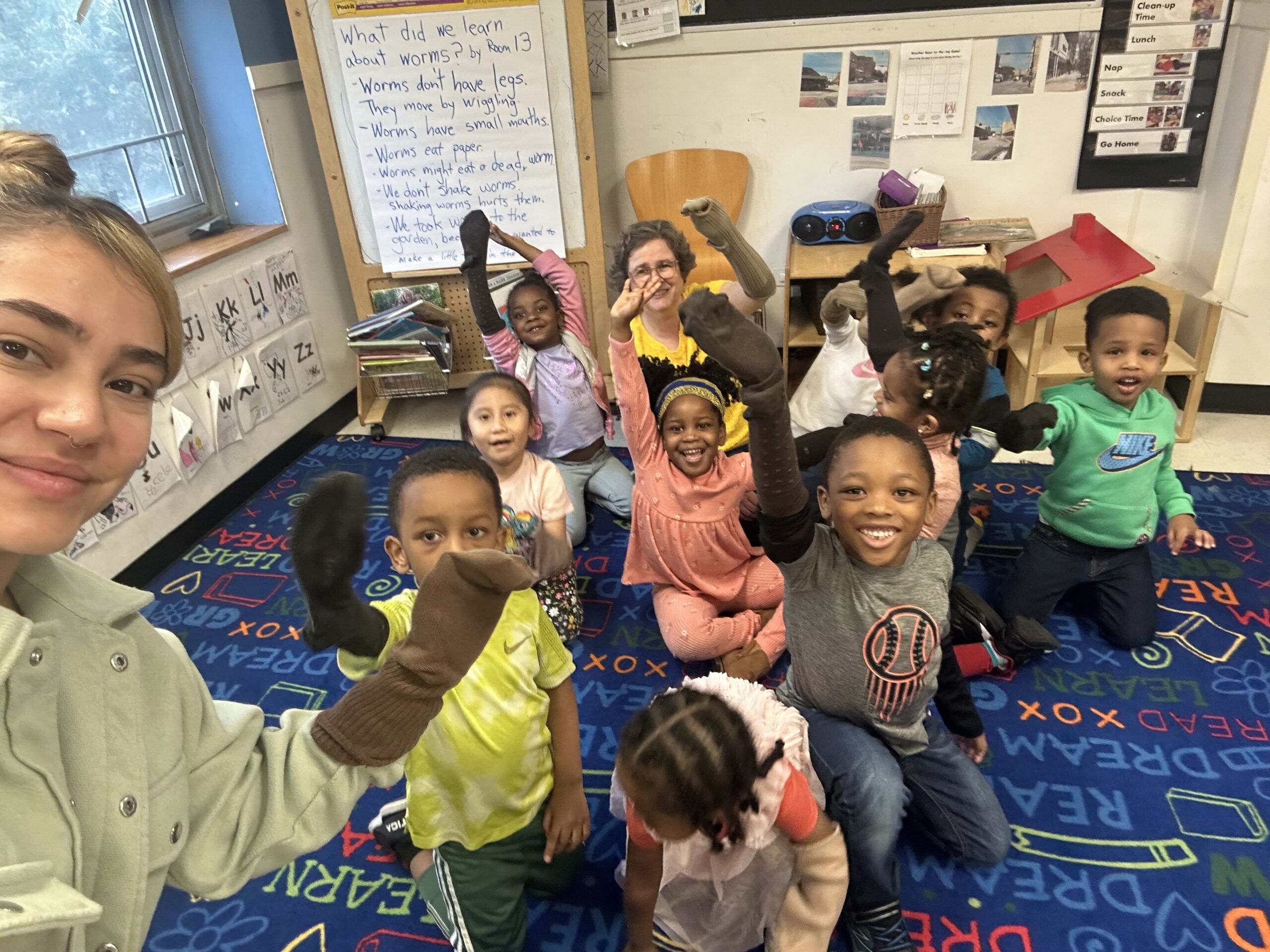
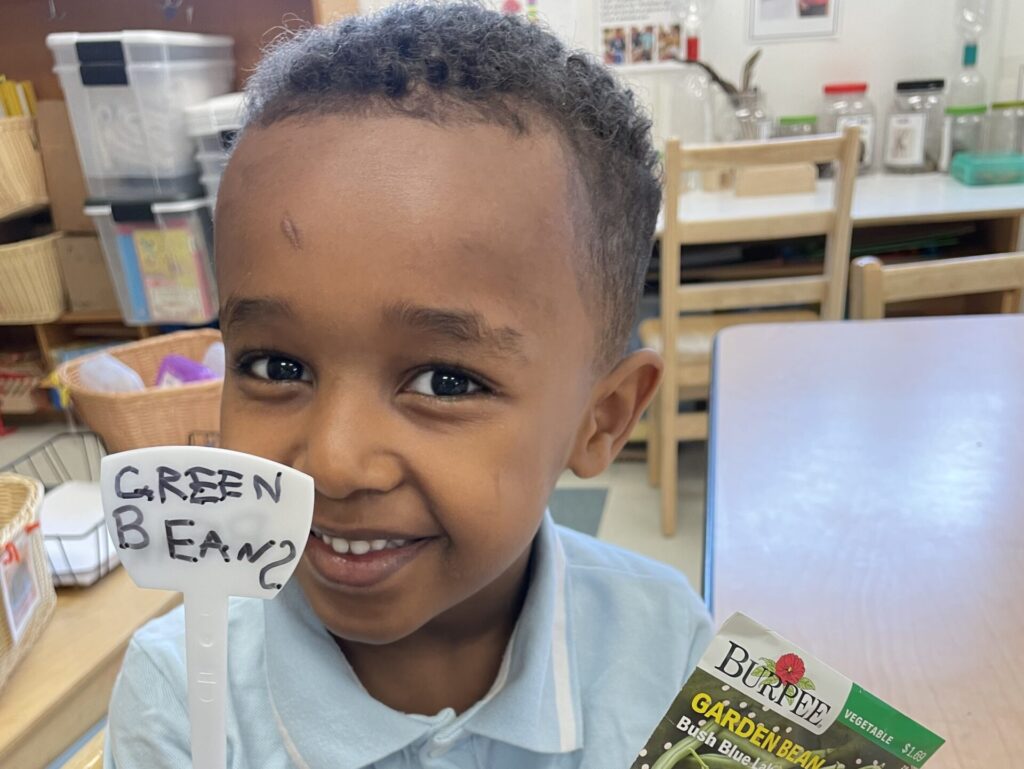
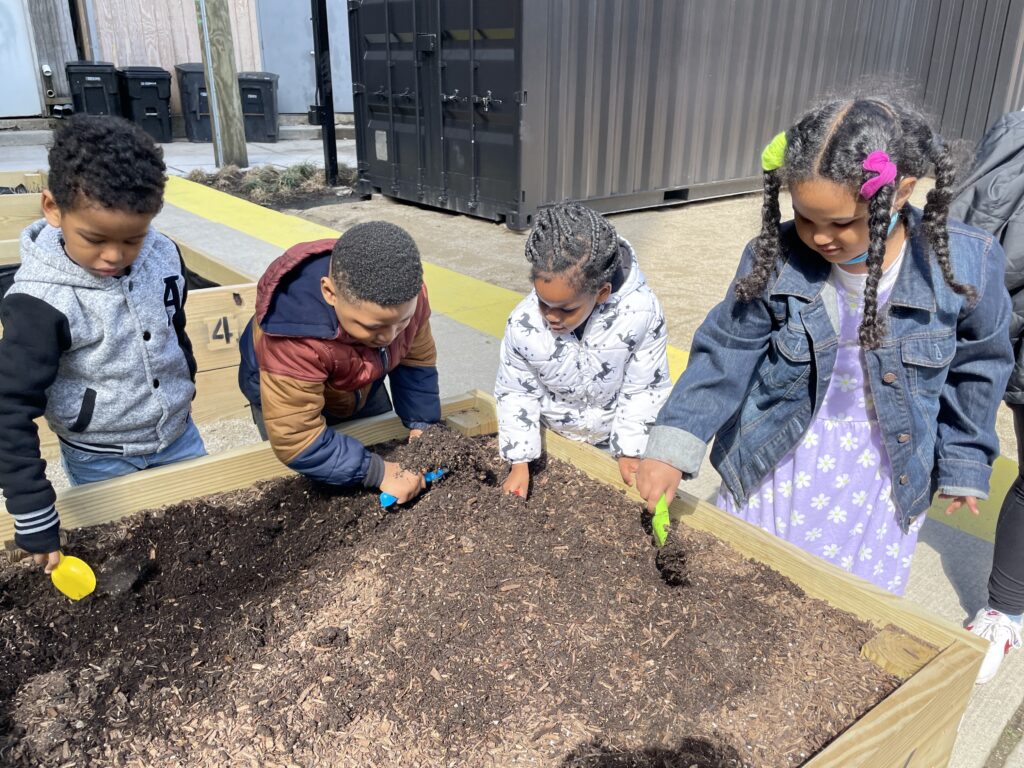
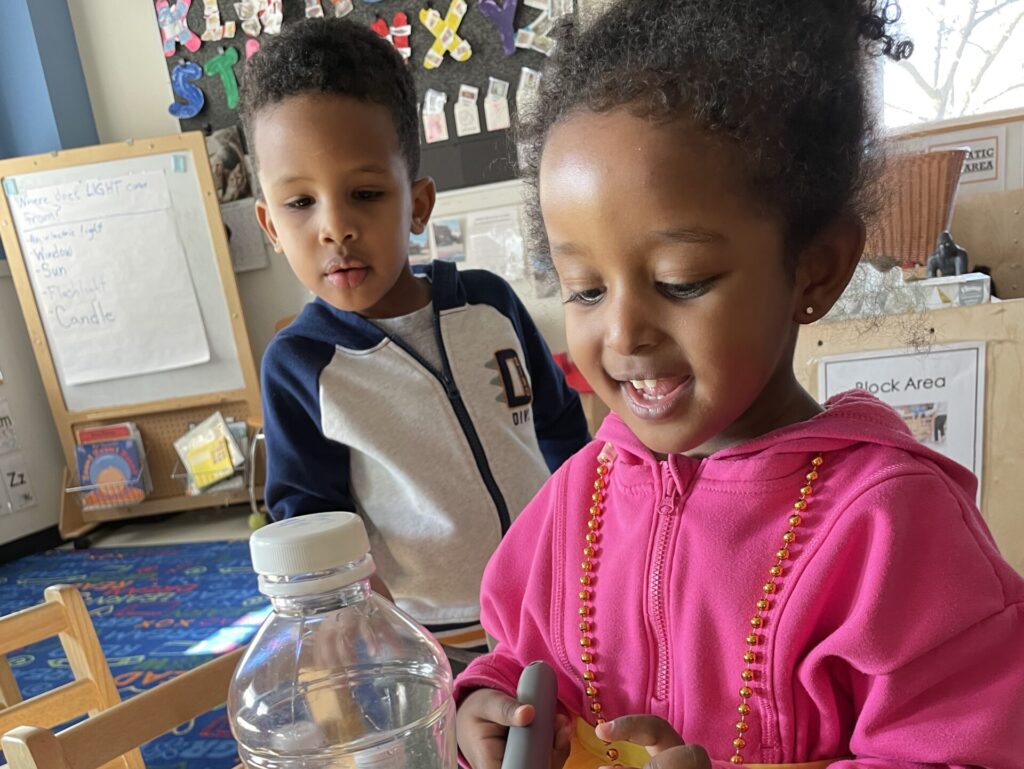
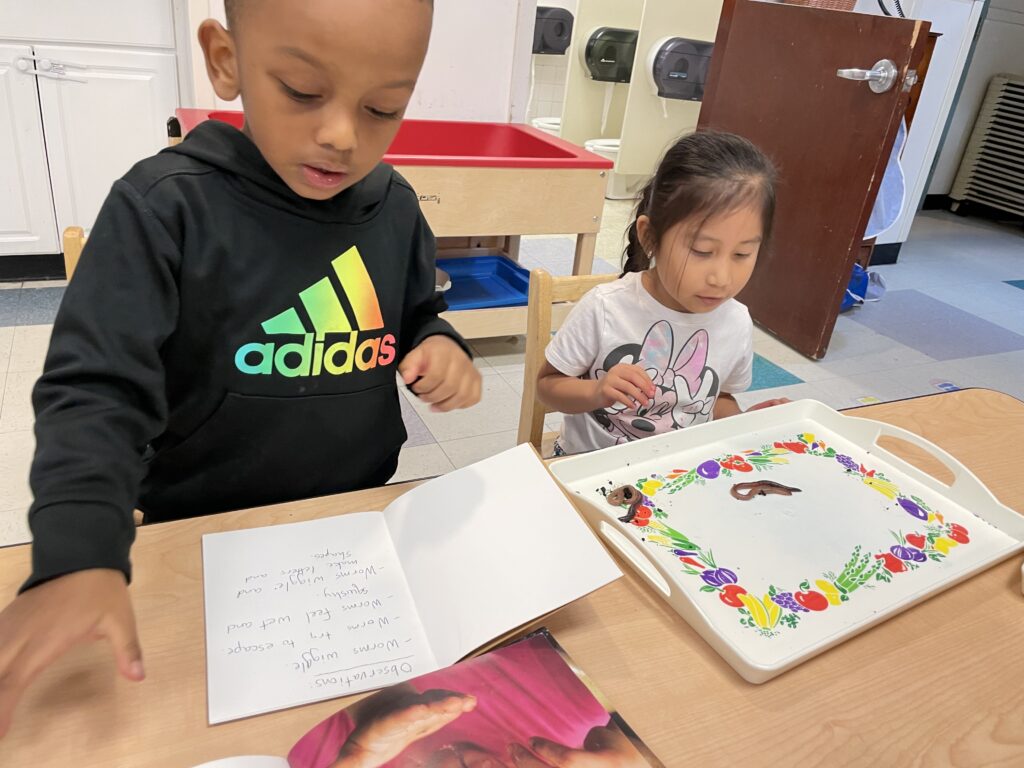
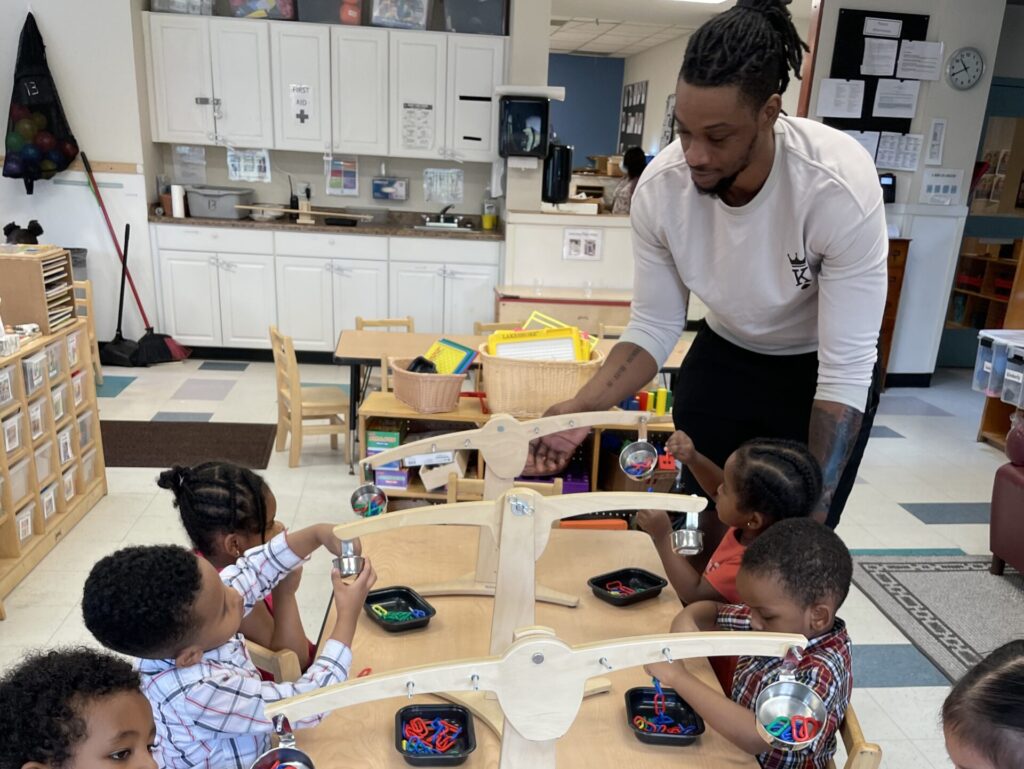
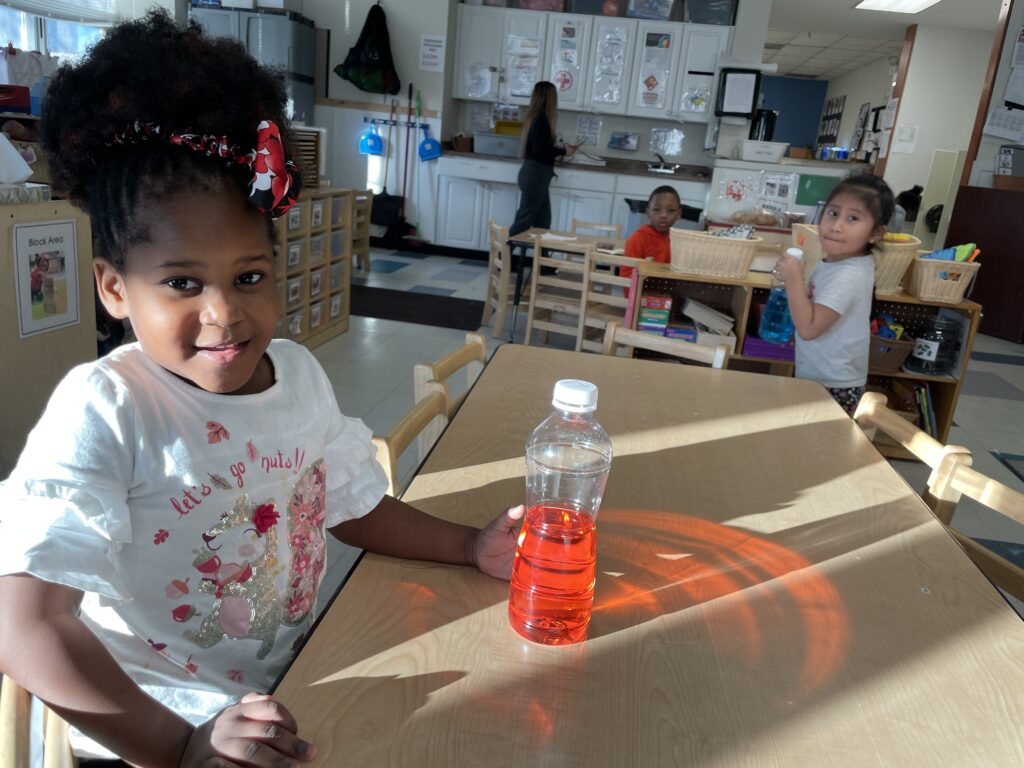

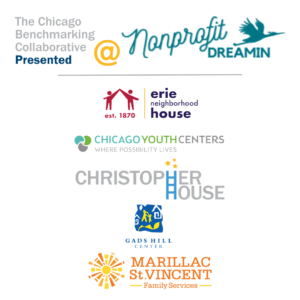 On November 2nd,
On November 2nd, 
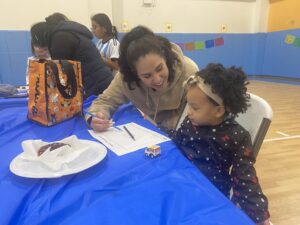 Between decorating classroom doors and coloring flags from over 20 countries, Christopher House staff gathered weekly to hear personal stories from prominent members of our community, including Ricardo Villalobos, Christophr House Director of Family and Community Engagement, Frank Velez, Deputy Chief/Special Events for the Chicago Fire Department, Cristina Pacione-Zayas, First Deputy Chief of Staff in the Office of the Mayor, and Carlos Ramirez-Rosa, Alderman for Chicago’s 35th ward. Reflecting on their own past experiences and their current roles, the speakers shared how their cultures and identities have influenced who they are today and the greater impact they hope to have within our shared community.
Between decorating classroom doors and coloring flags from over 20 countries, Christopher House staff gathered weekly to hear personal stories from prominent members of our community, including Ricardo Villalobos, Christophr House Director of Family and Community Engagement, Frank Velez, Deputy Chief/Special Events for the Chicago Fire Department, Cristina Pacione-Zayas, First Deputy Chief of Staff in the Office of the Mayor, and Carlos Ramirez-Rosa, Alderman for Chicago’s 35th ward. Reflecting on their own past experiences and their current roles, the speakers shared how their cultures and identities have influenced who they are today and the greater impact they hope to have within our shared community.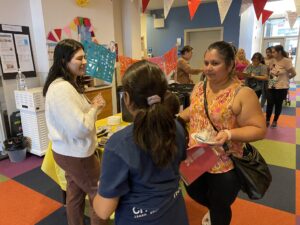 Christopher House is committed to creating a culture of belonging and nurturing a positive sense of identity, both within our classroom and the surrounding community, and this begins with celebrating the diversity of our scholars, families, staff members, and neighbors.
Christopher House is committed to creating a culture of belonging and nurturing a positive sense of identity, both within our classroom and the surrounding community, and this begins with celebrating the diversity of our scholars, families, staff members, and neighbors.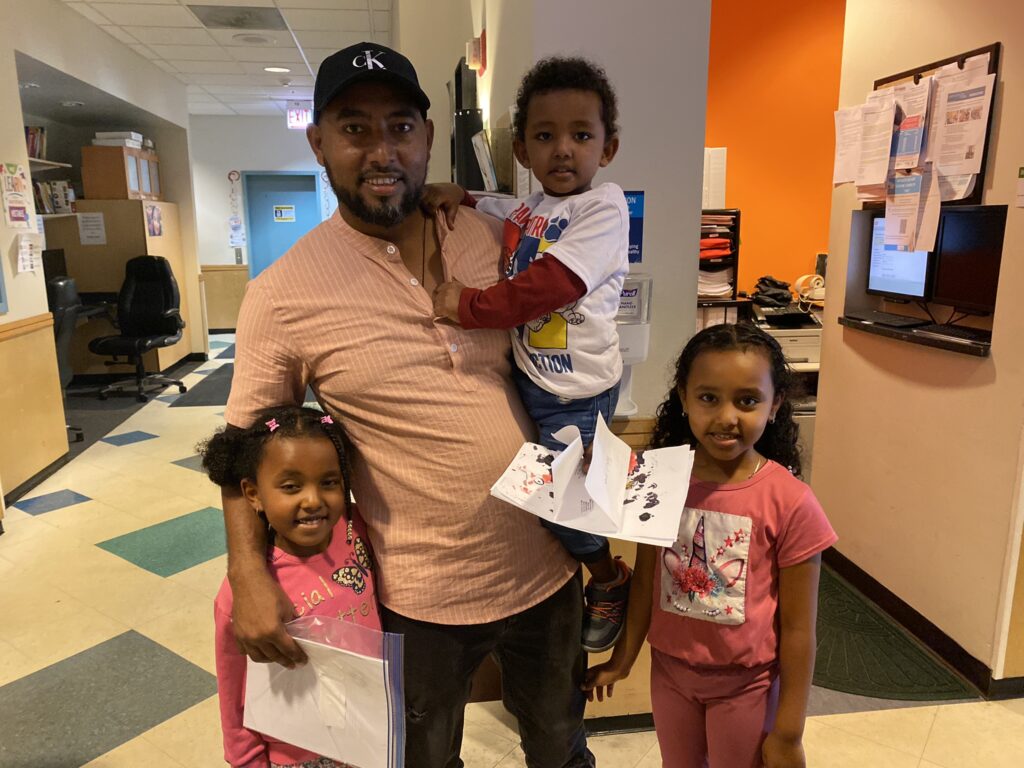
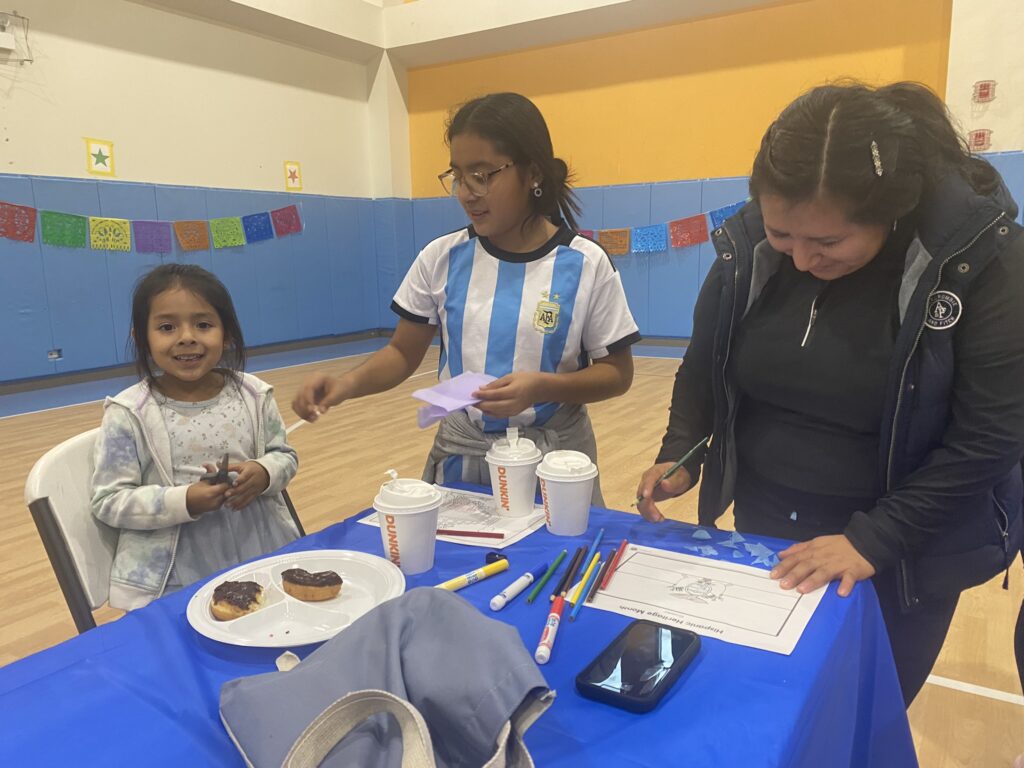
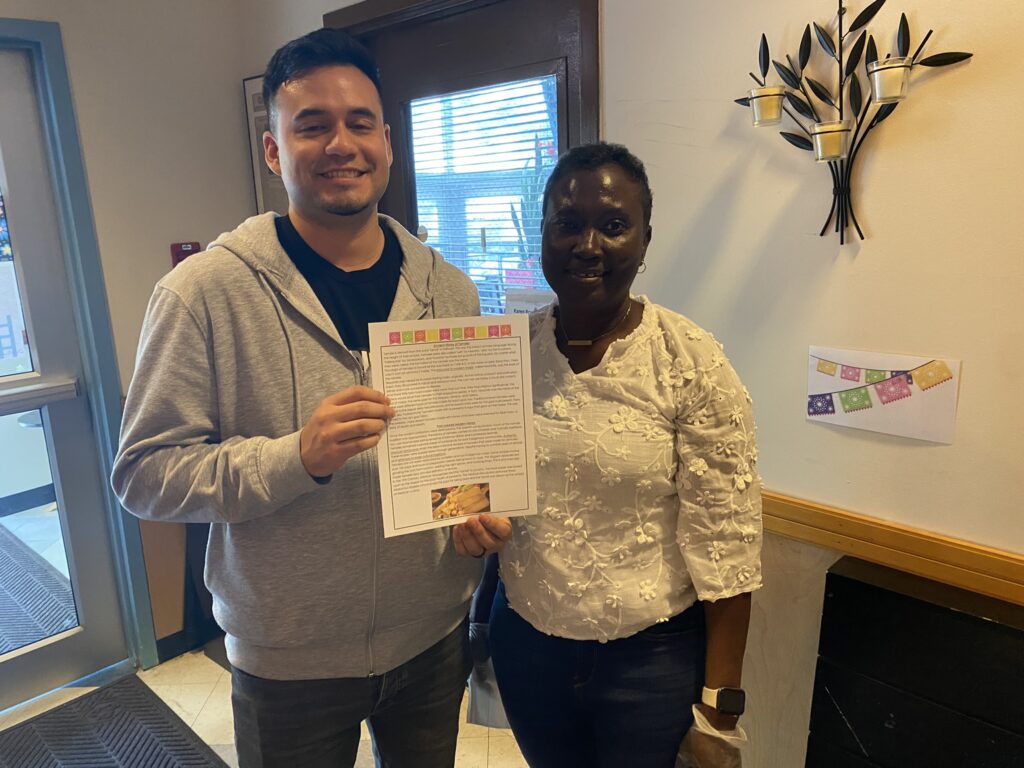
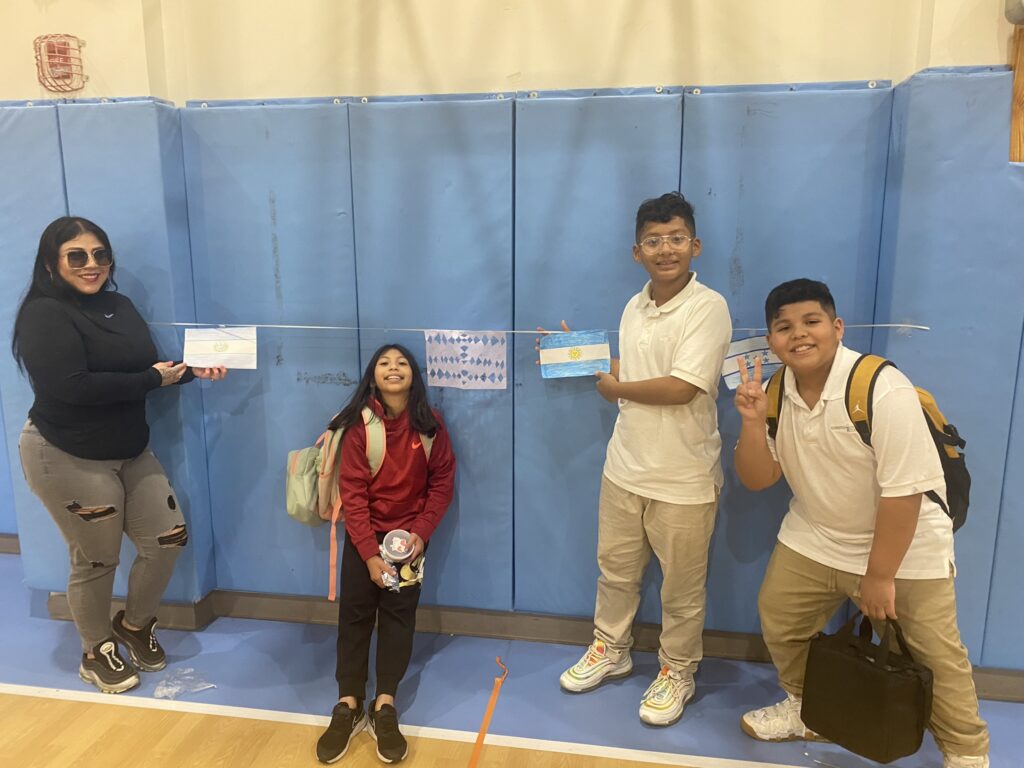
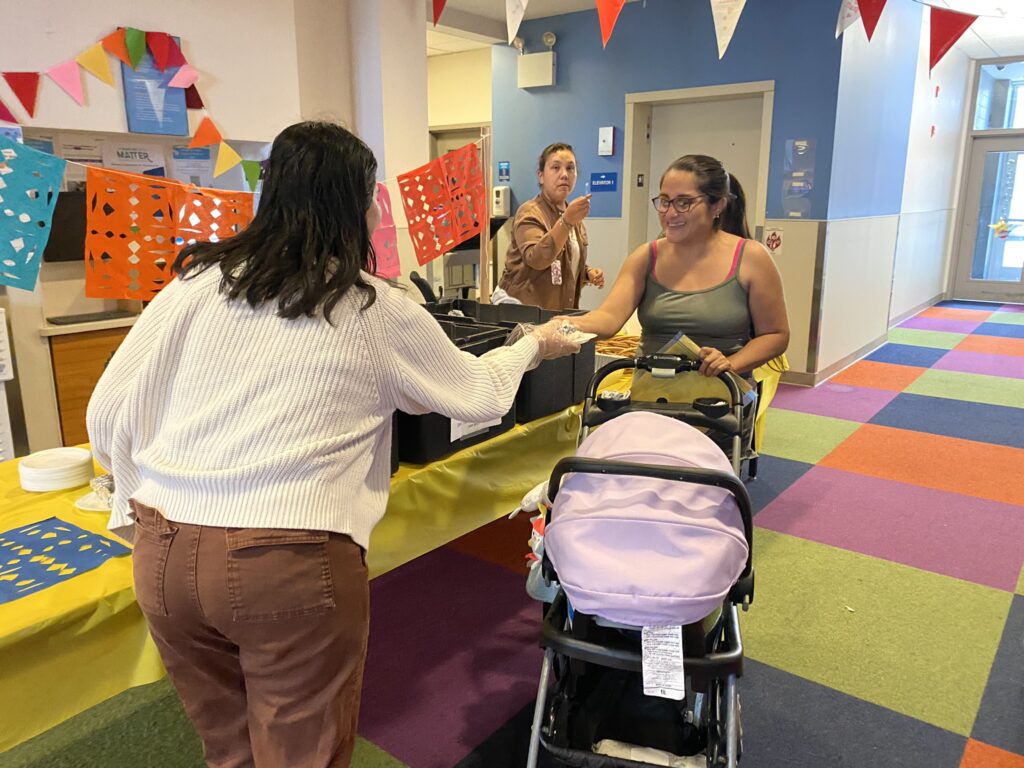
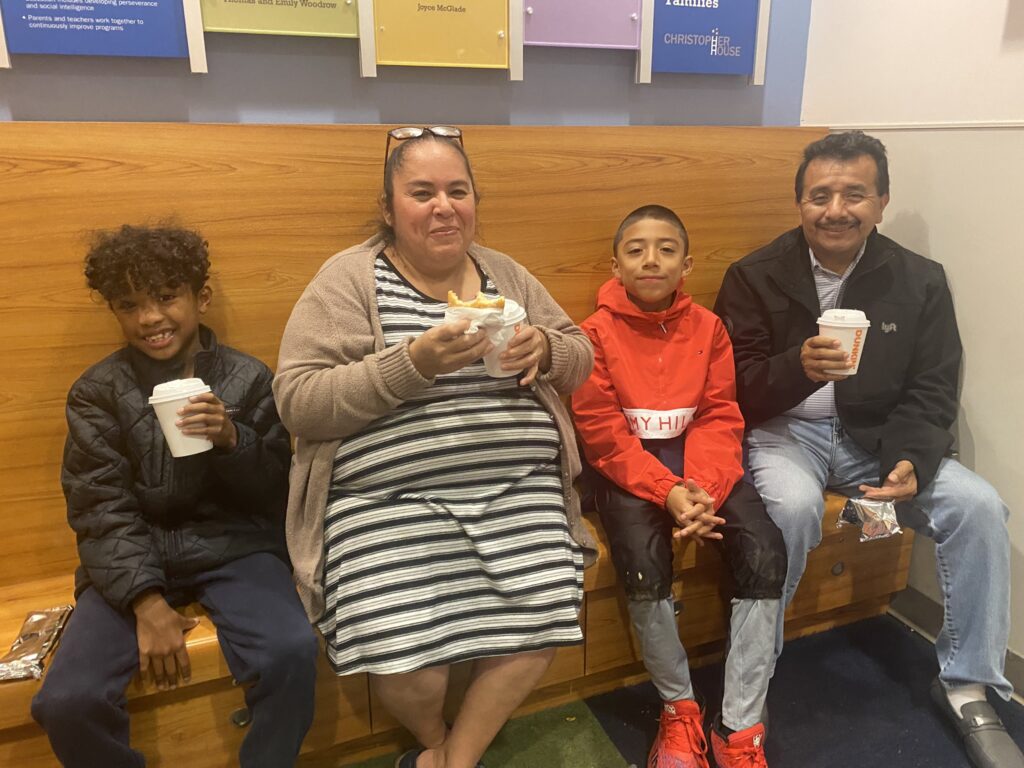
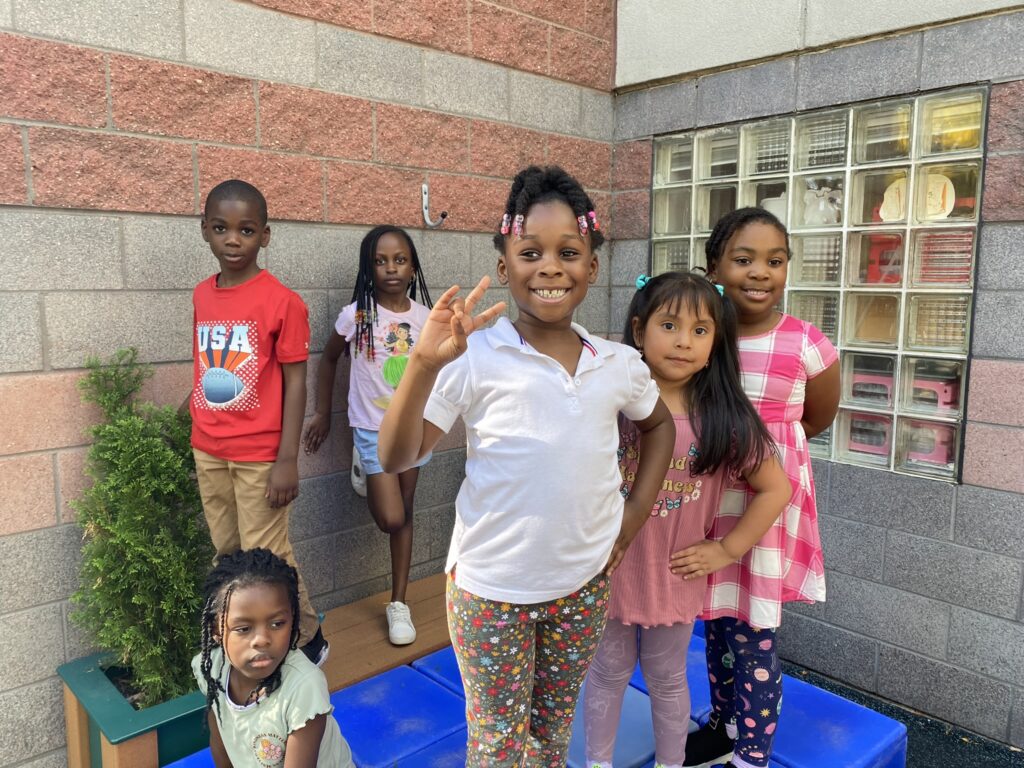
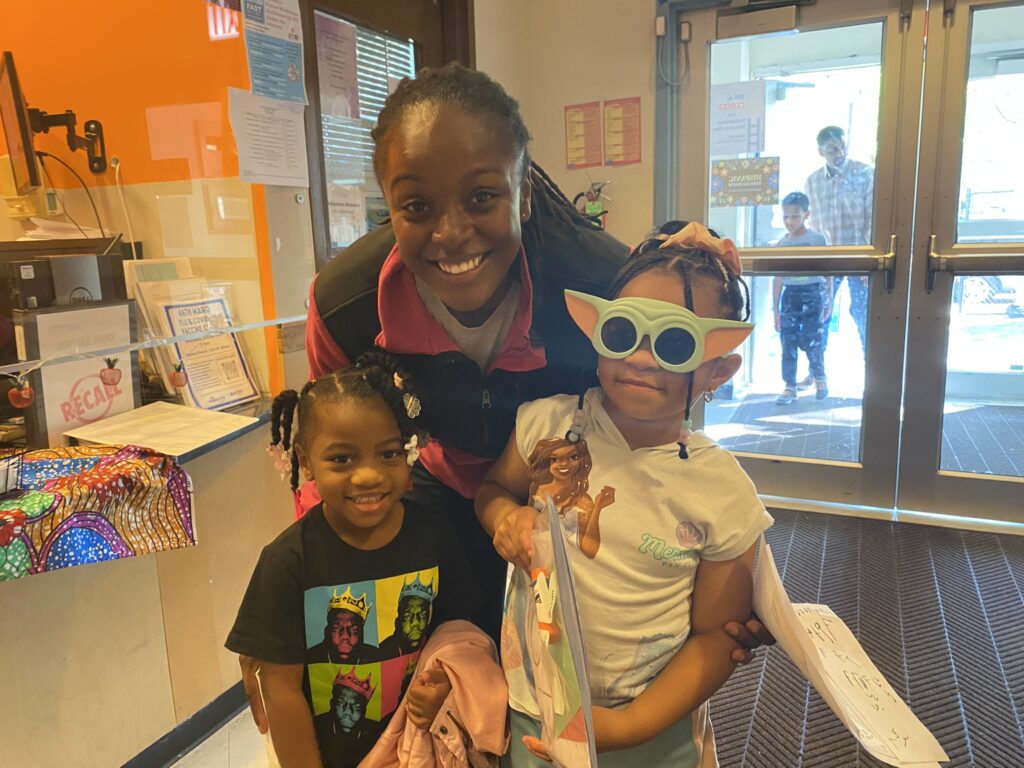
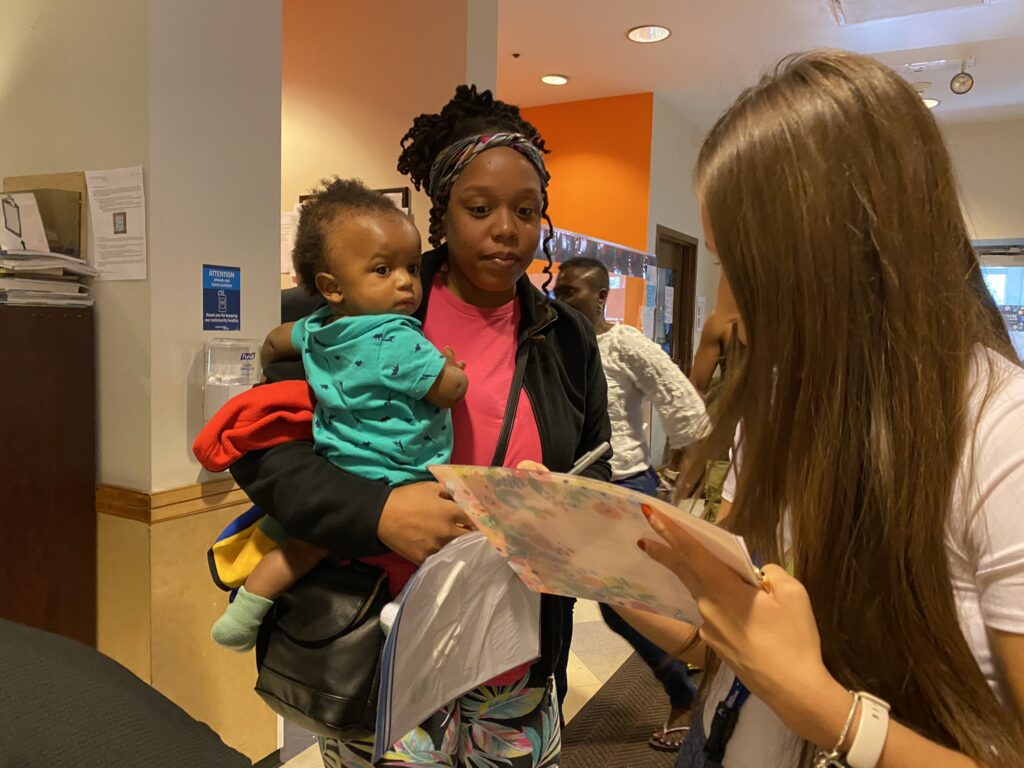
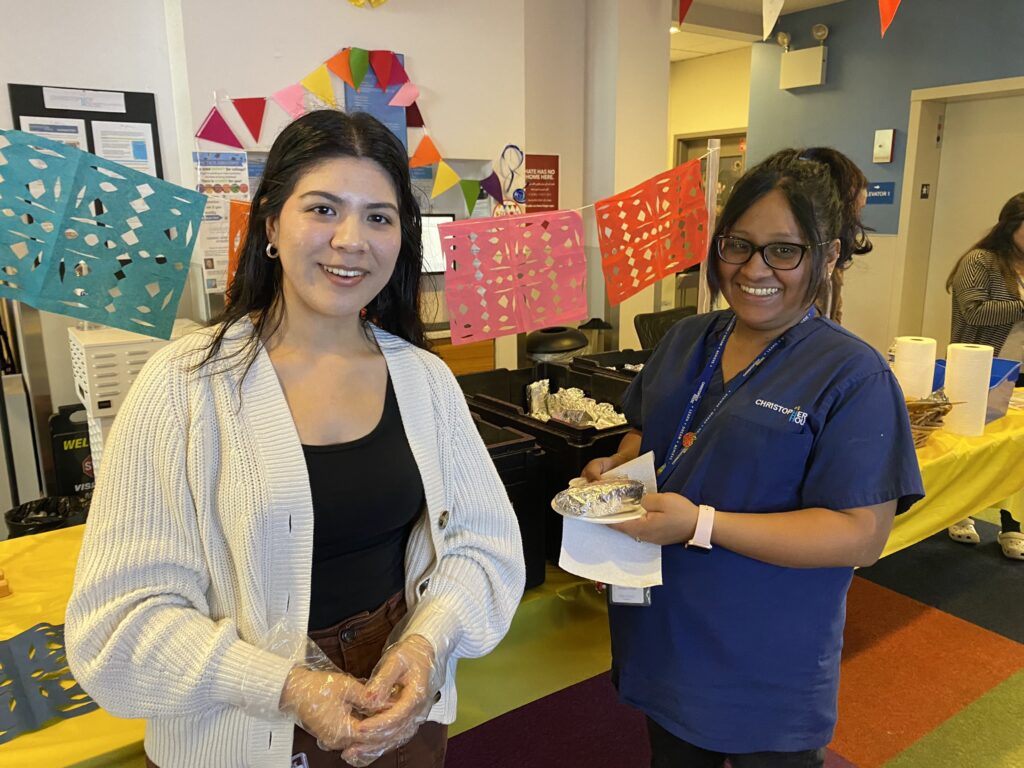
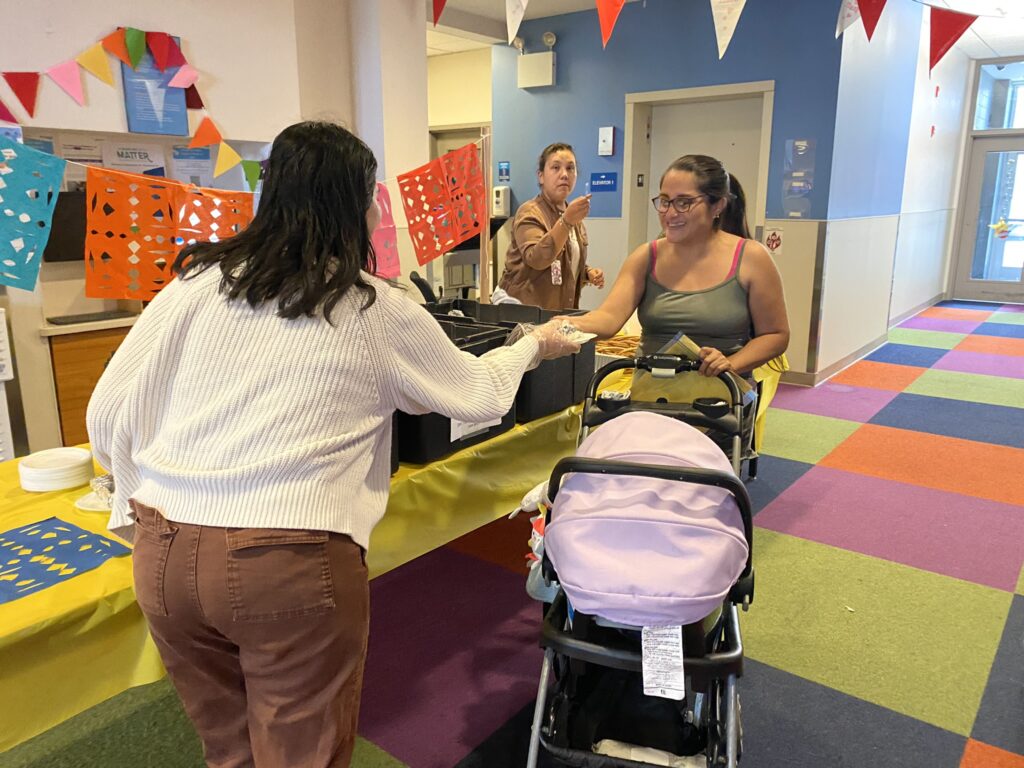
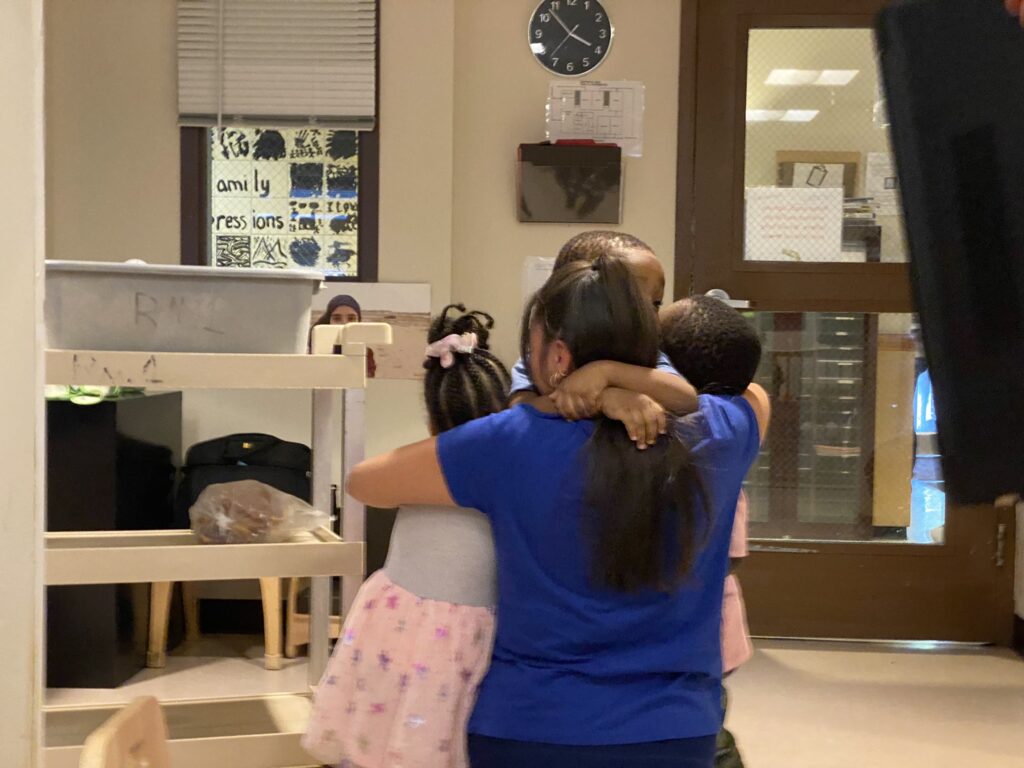


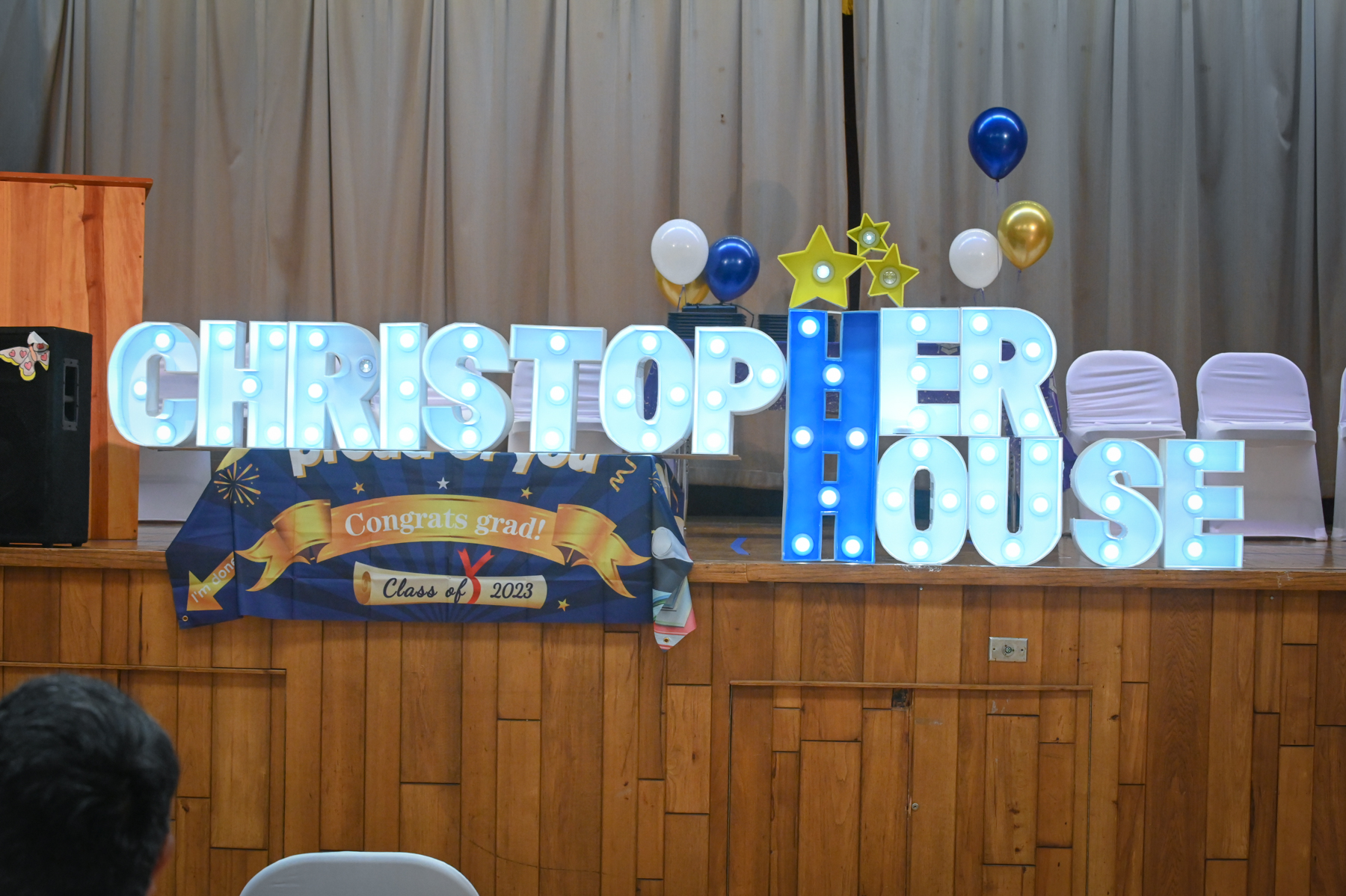
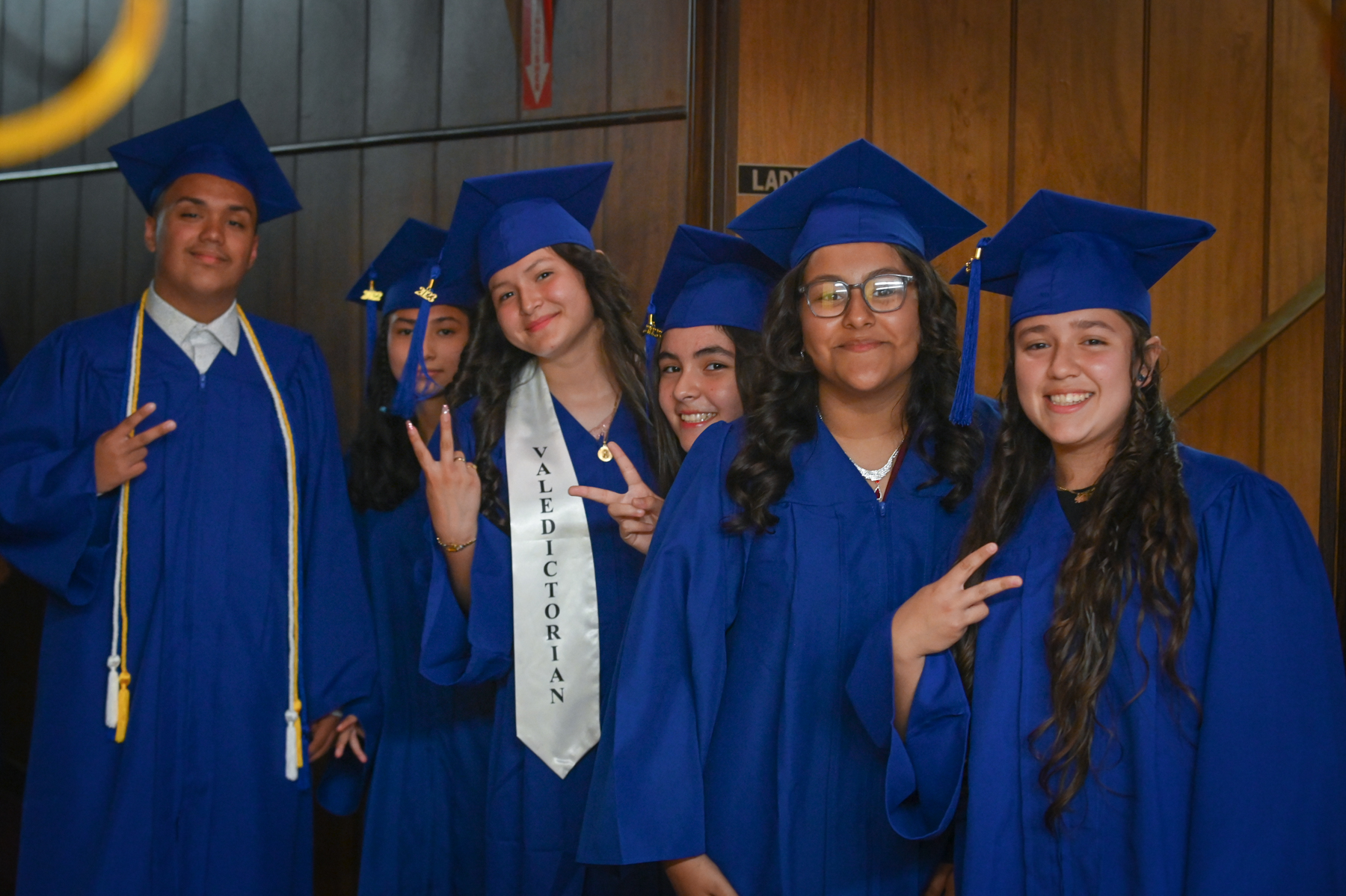
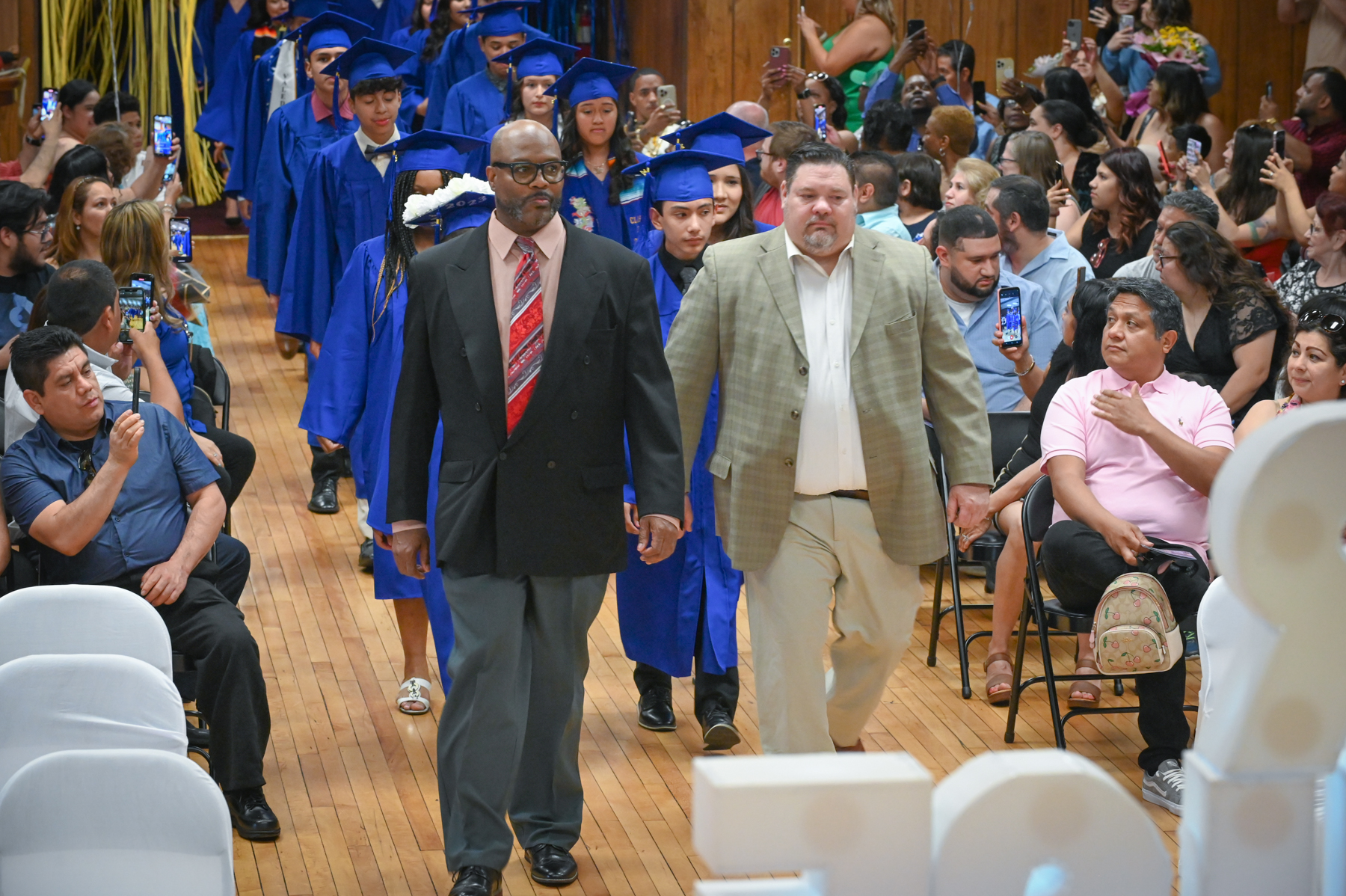
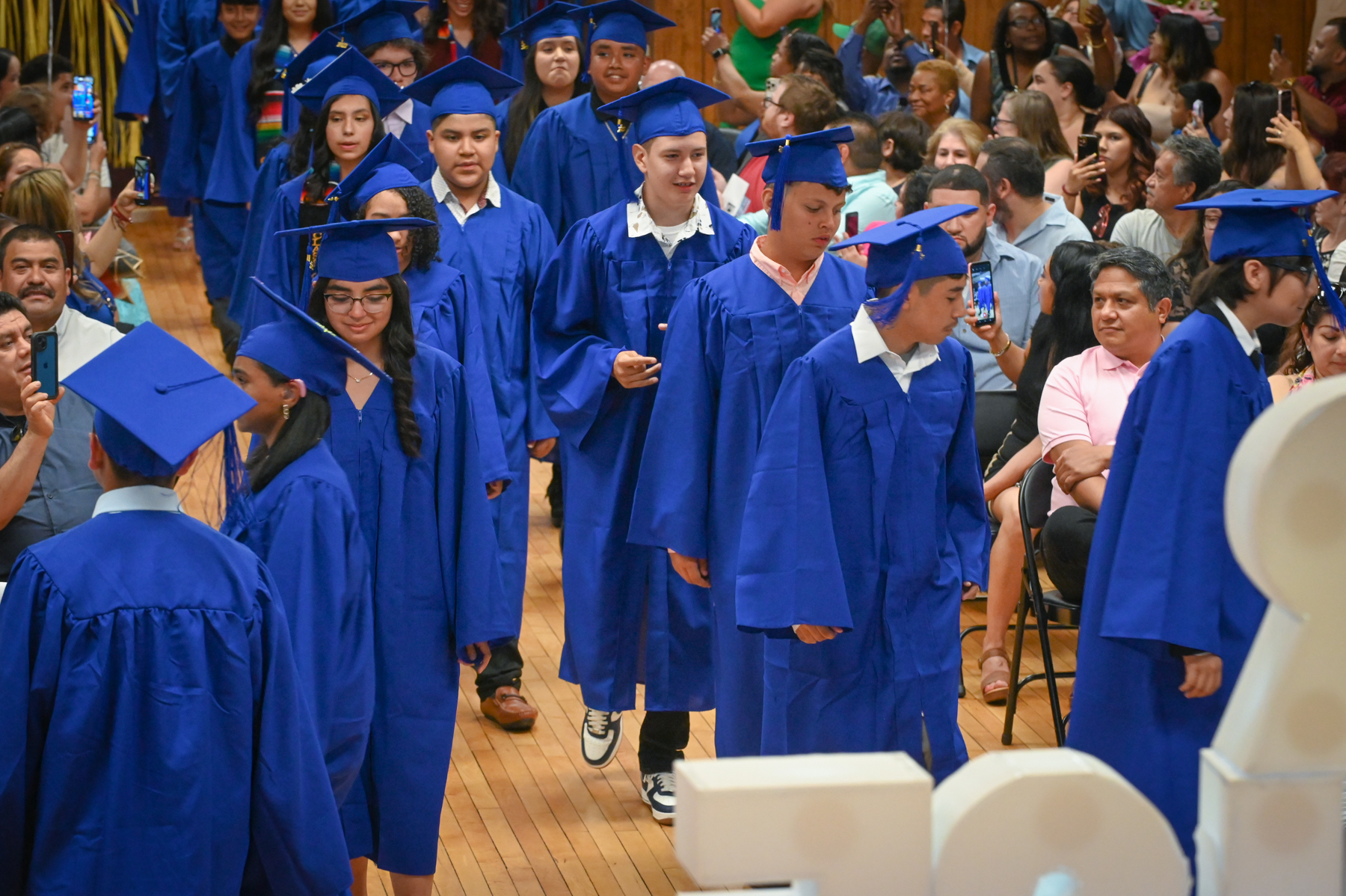
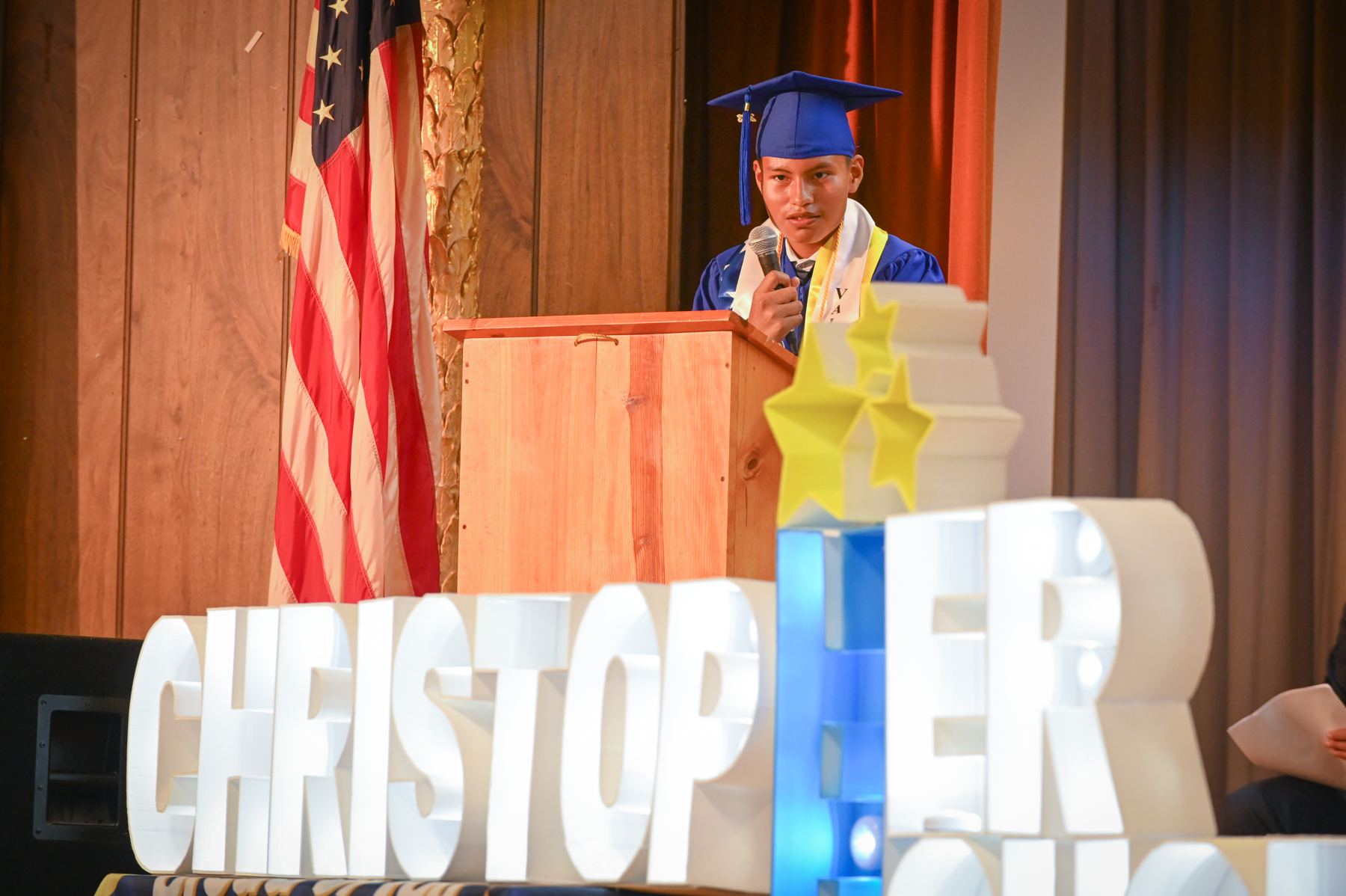
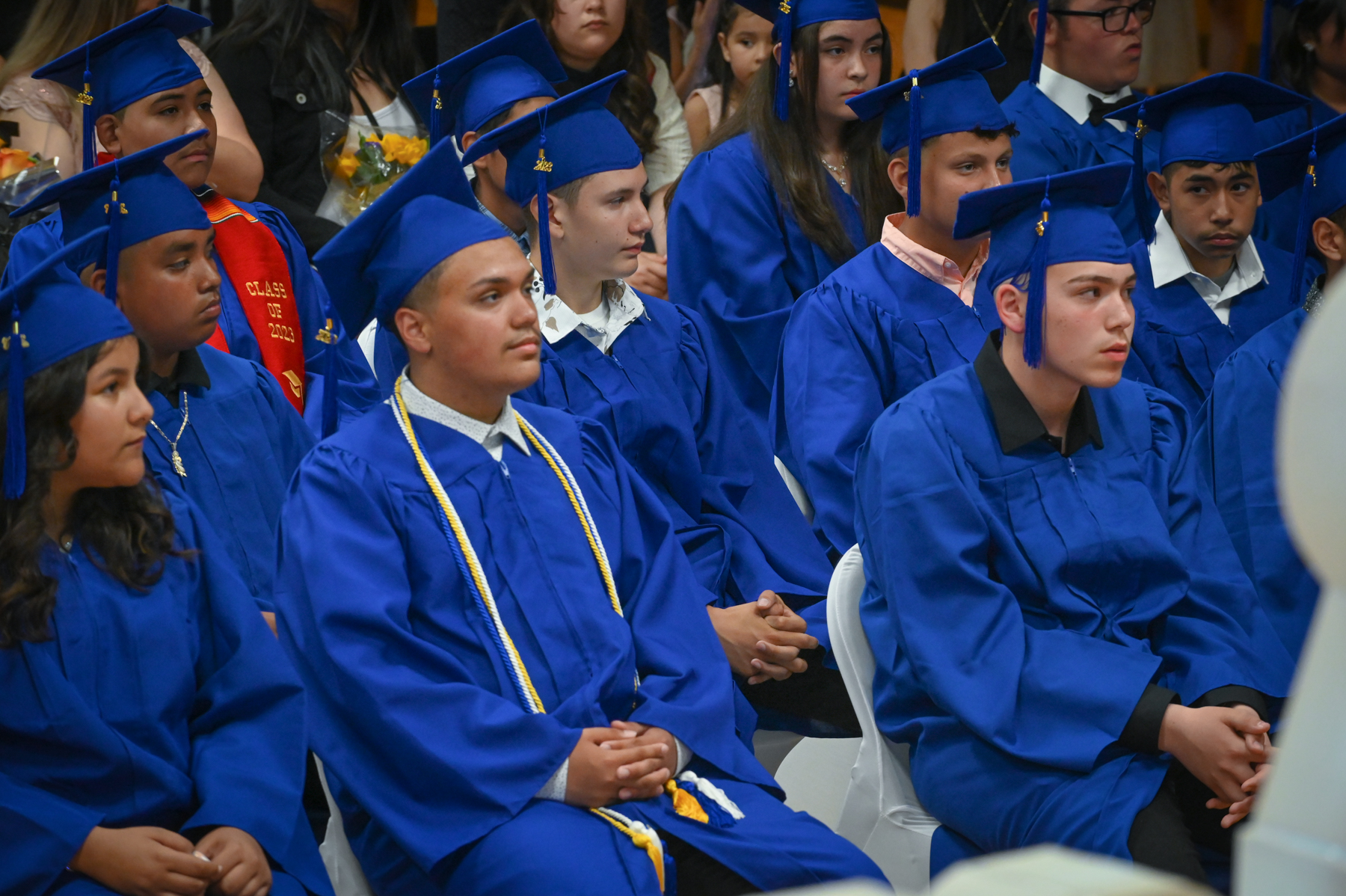
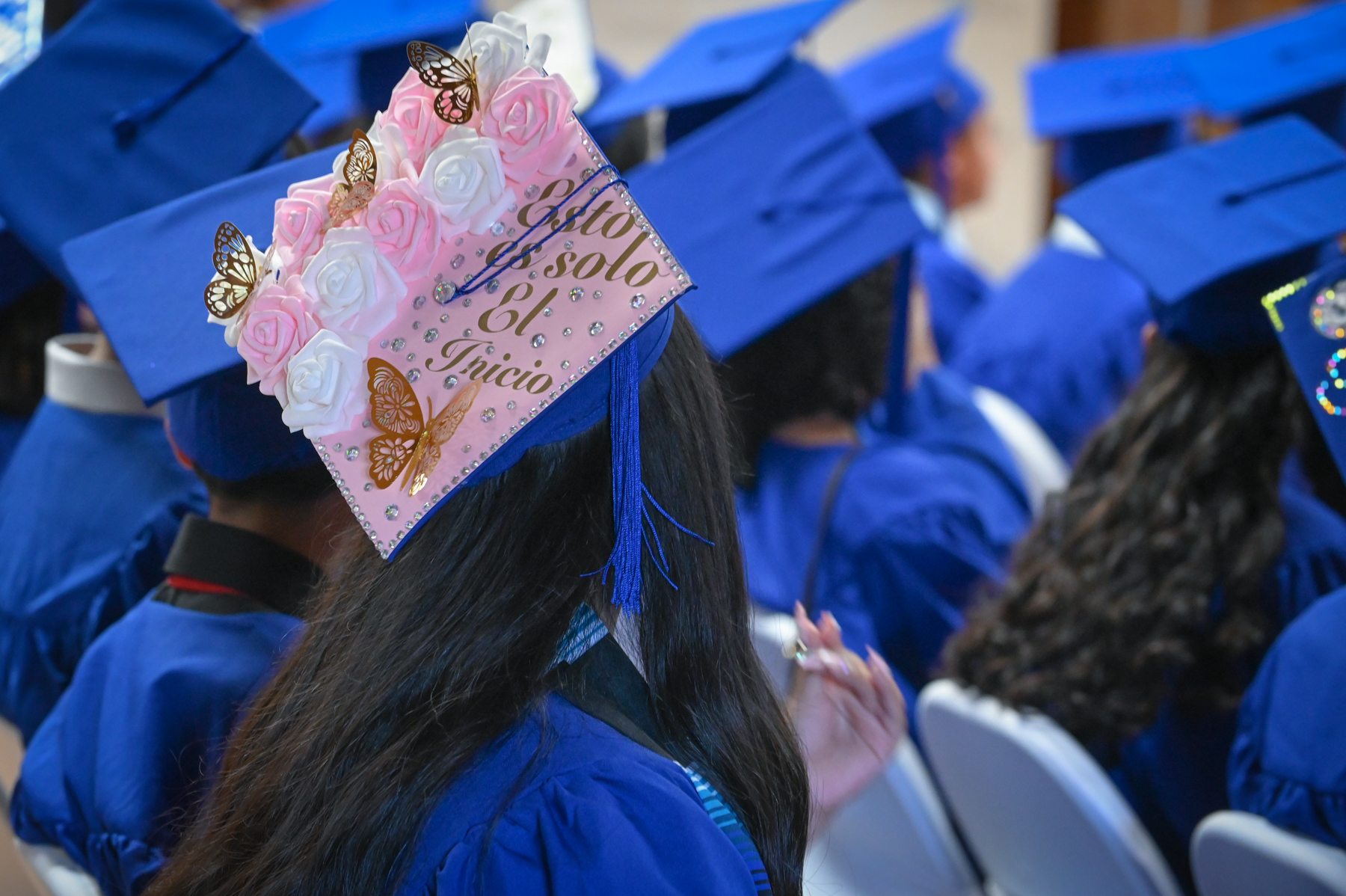
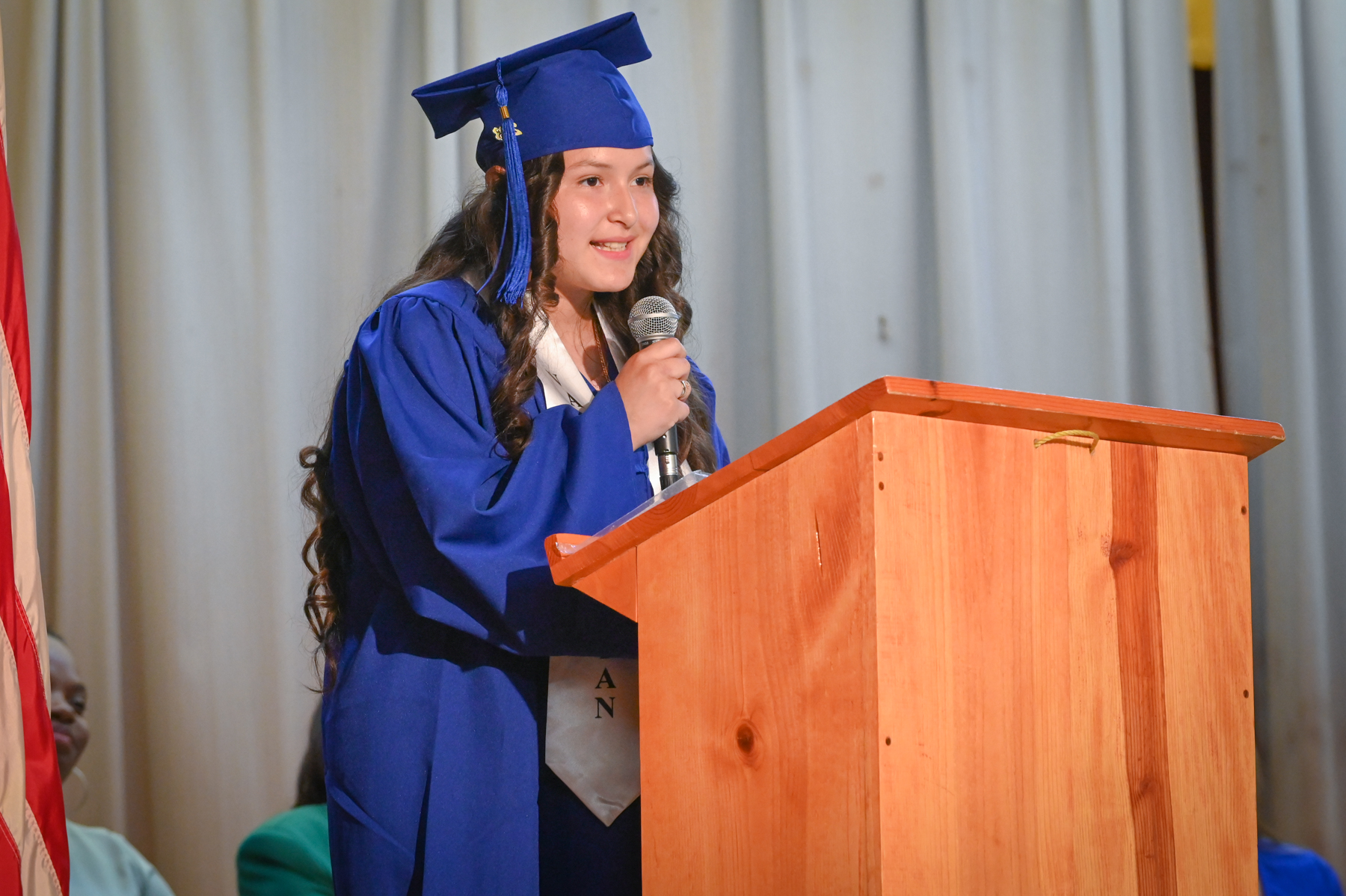

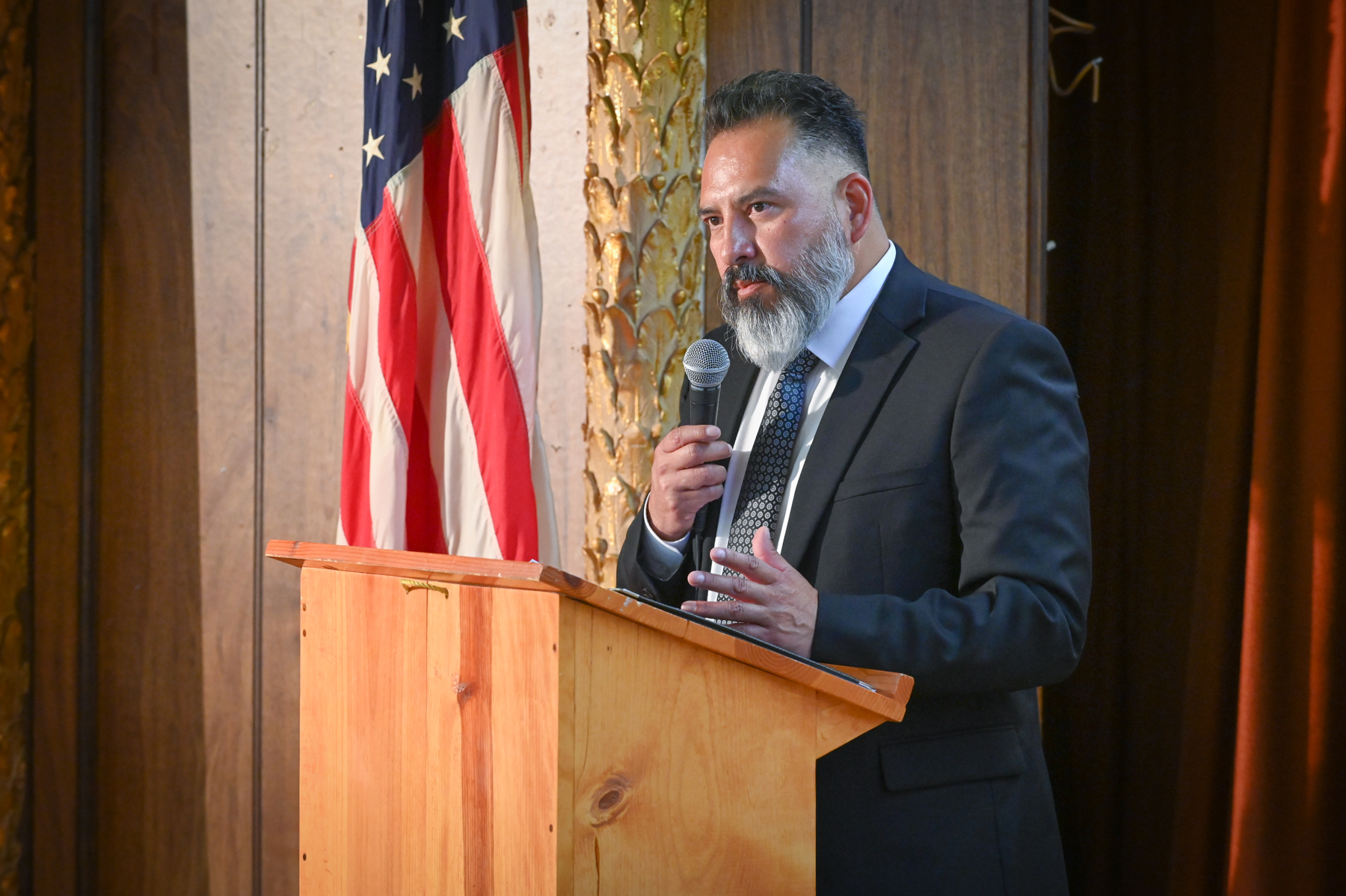
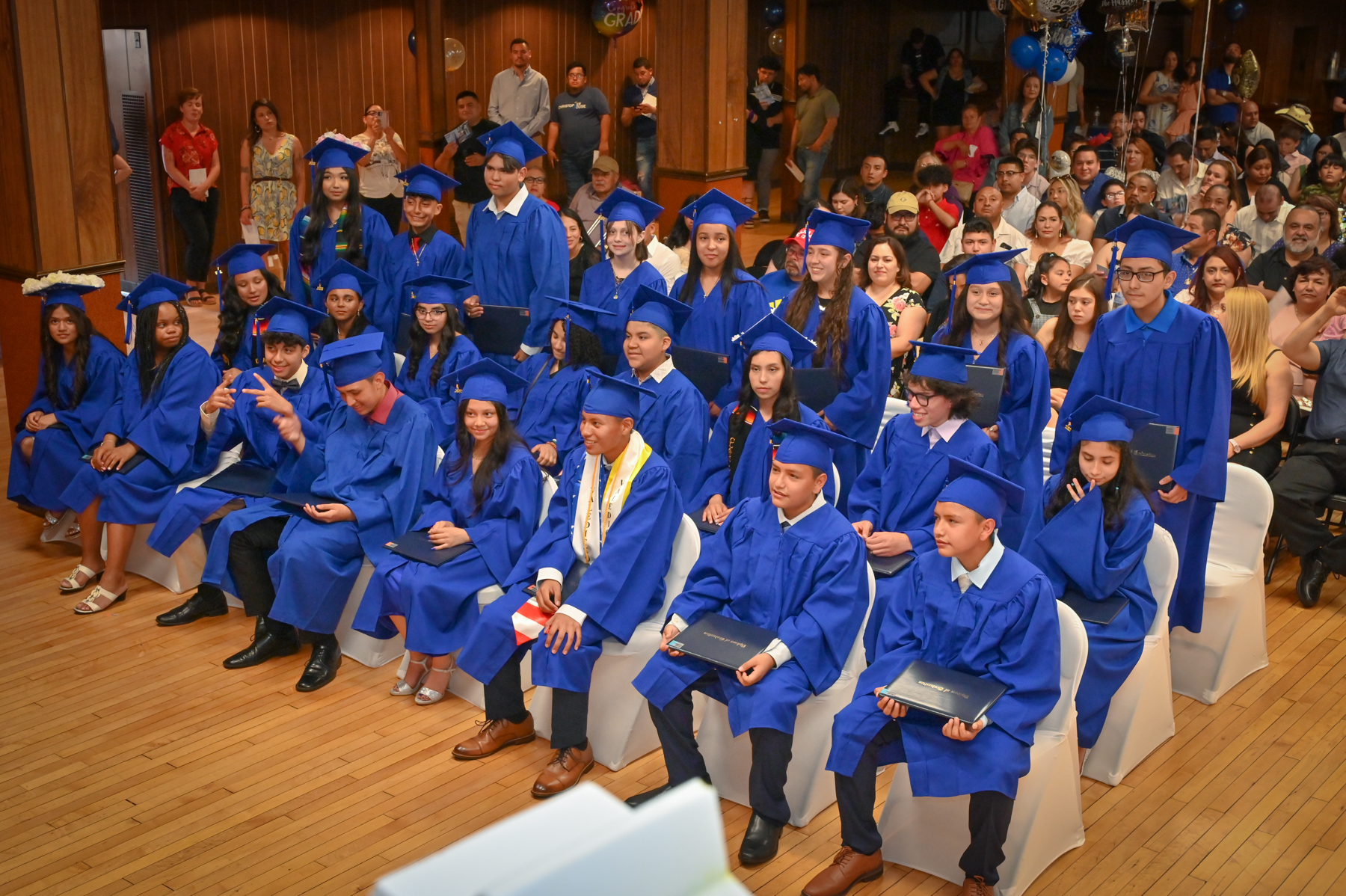
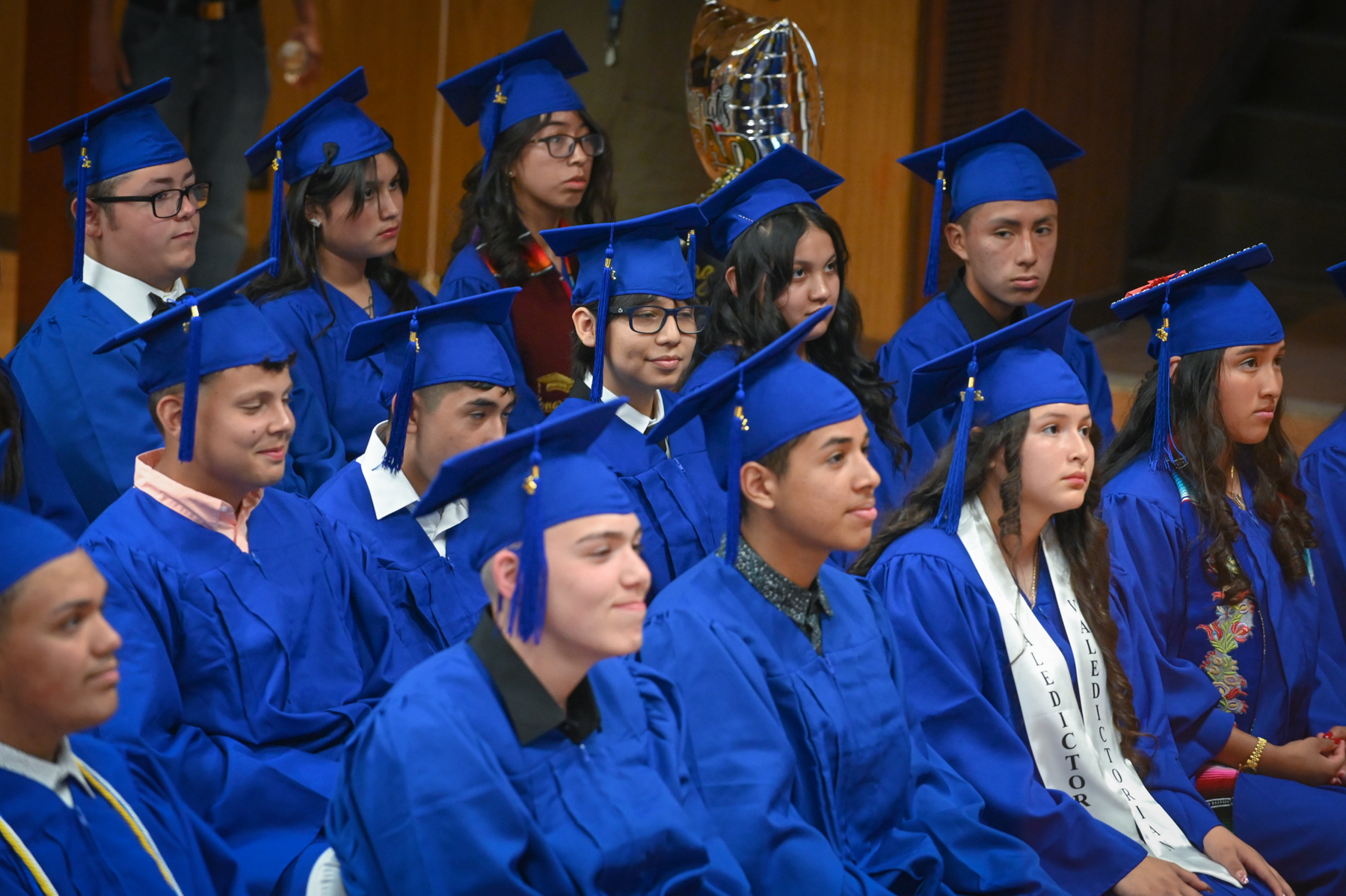
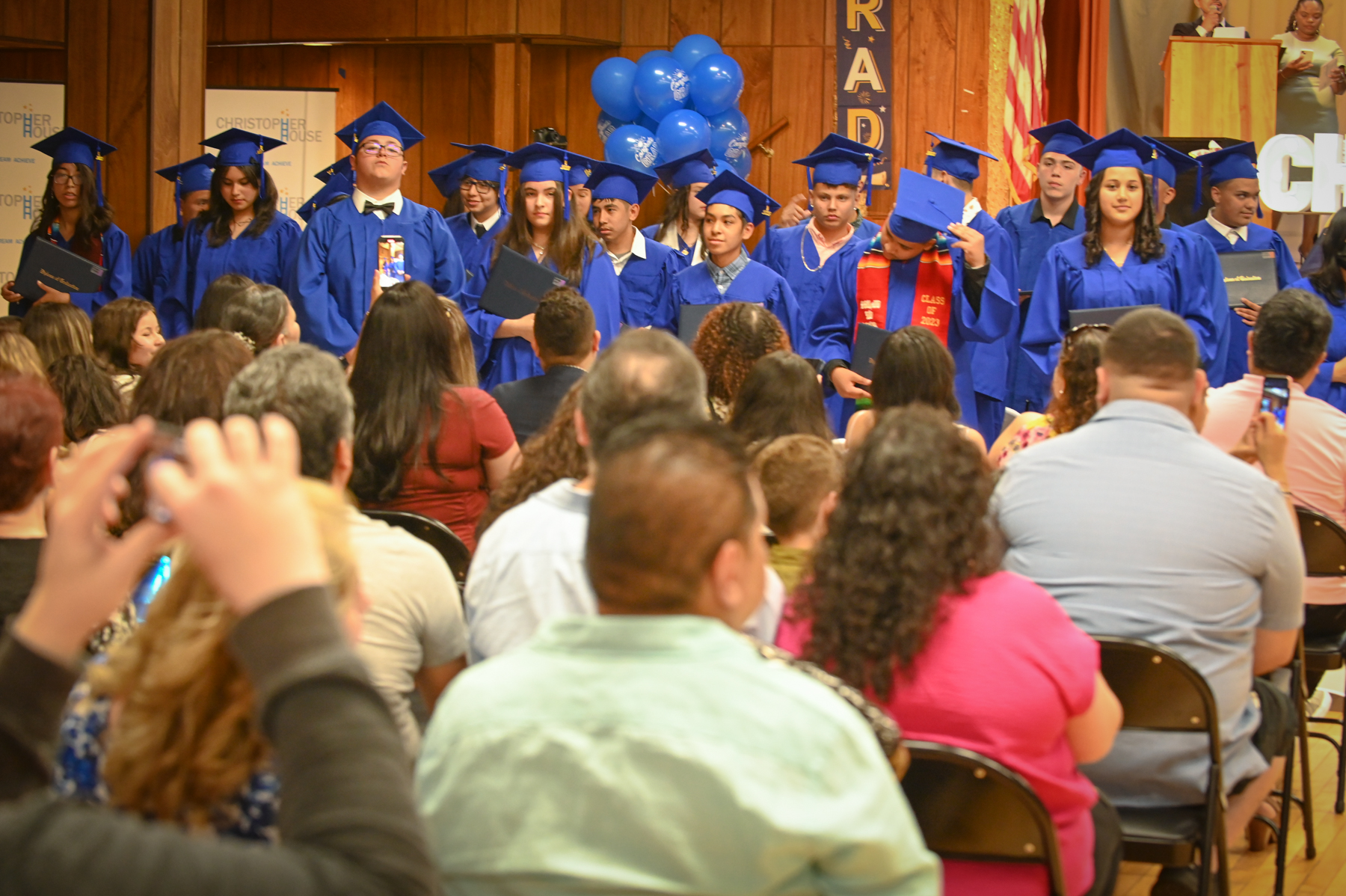
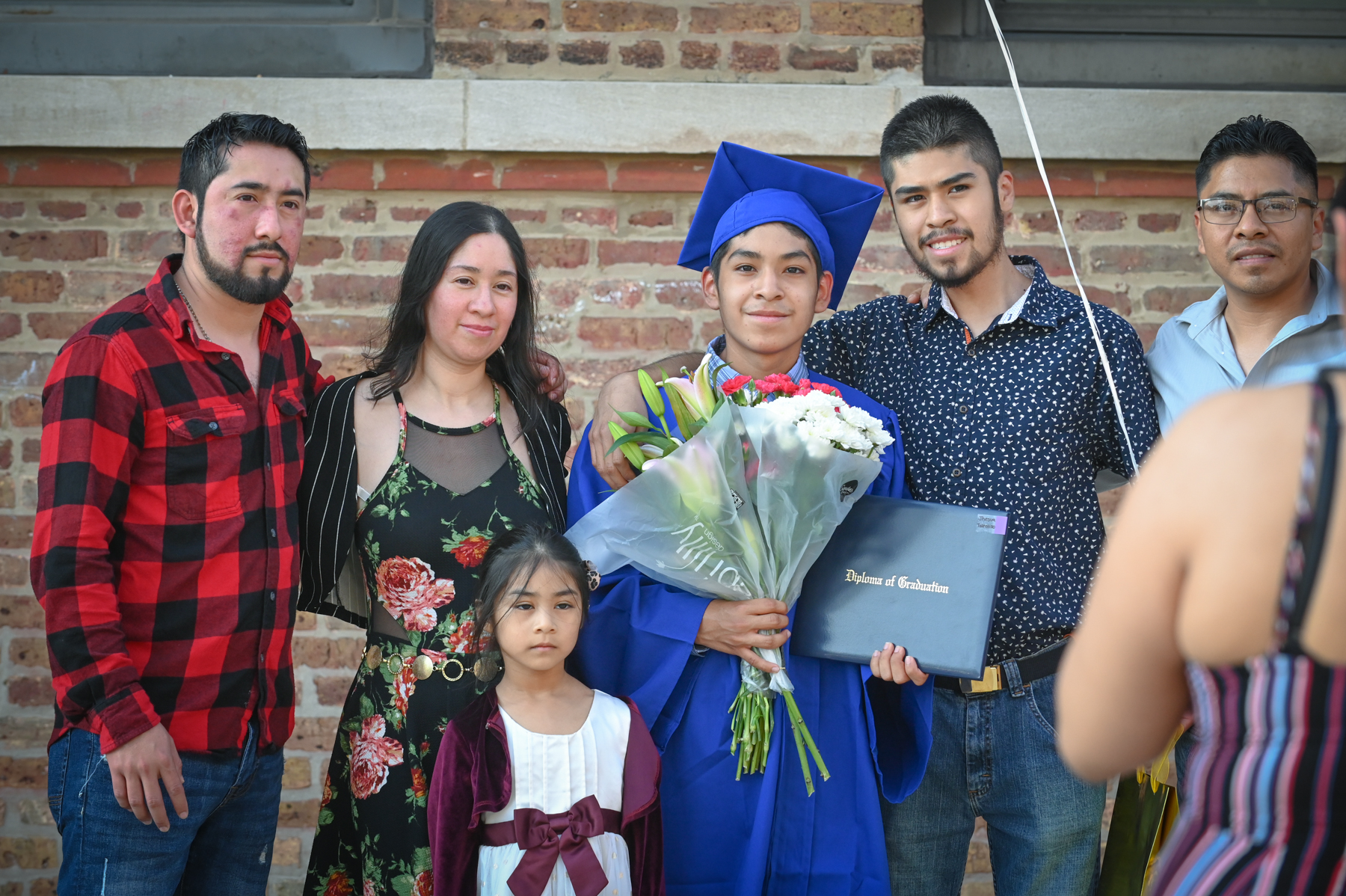
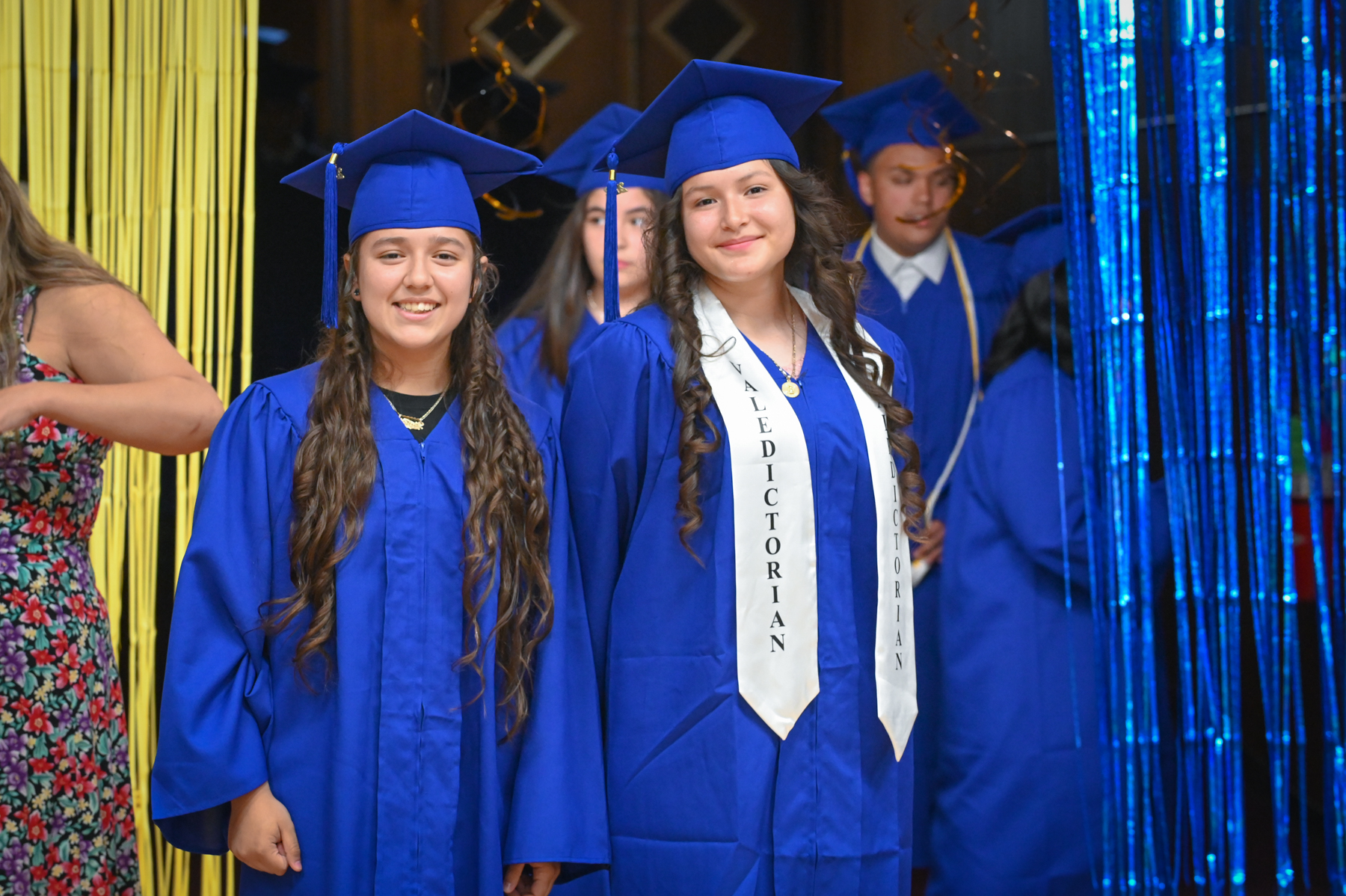
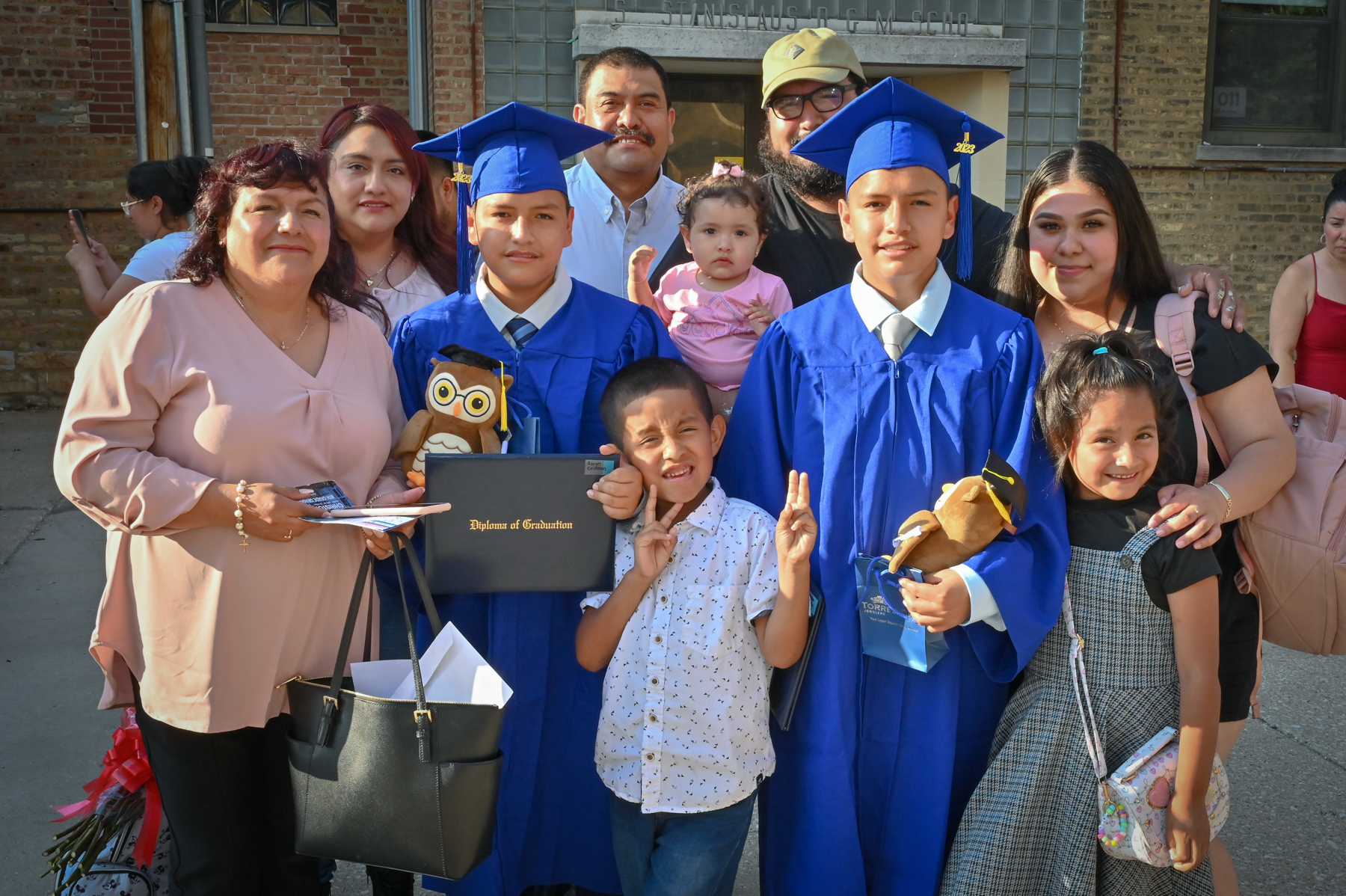
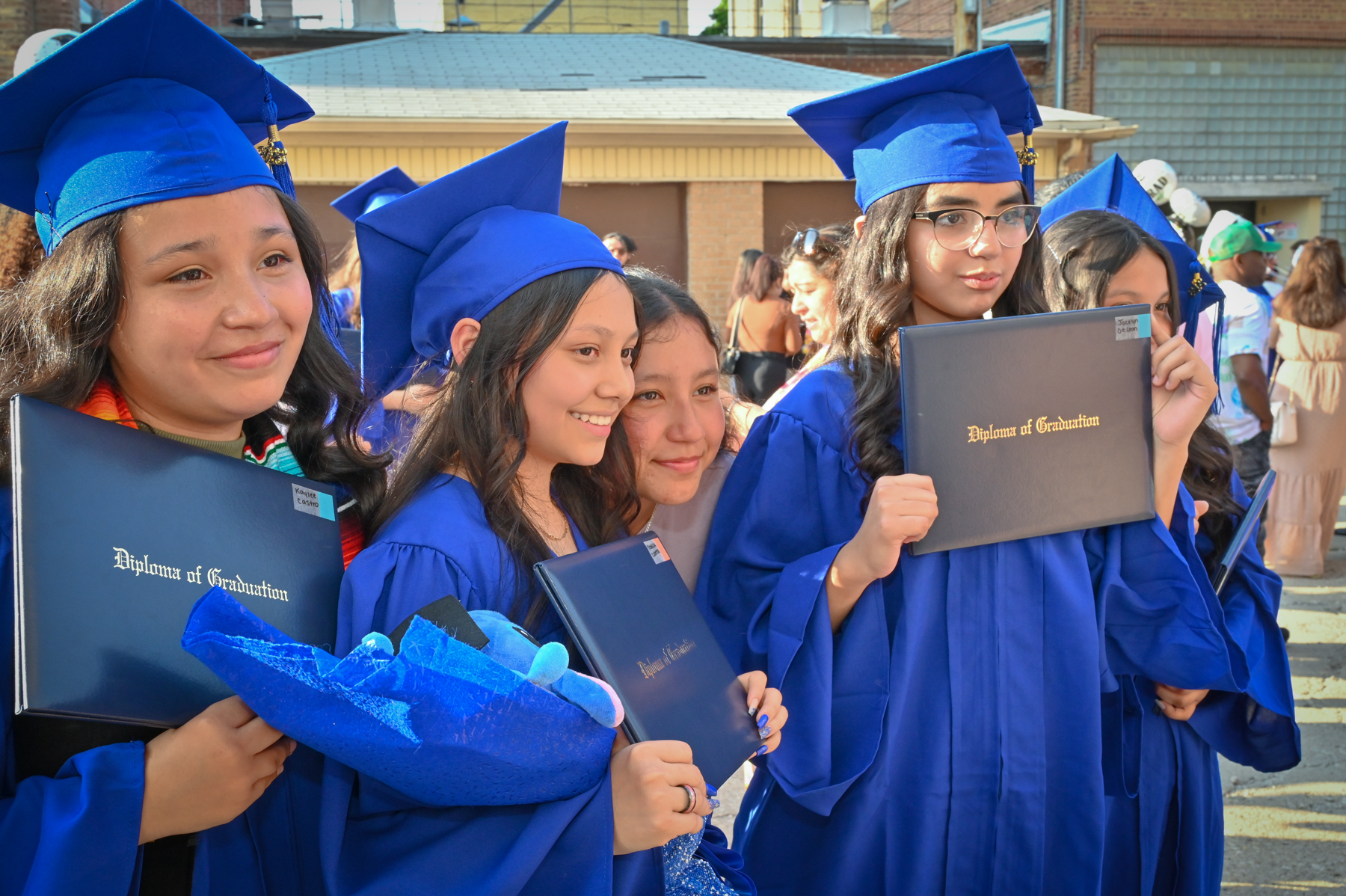
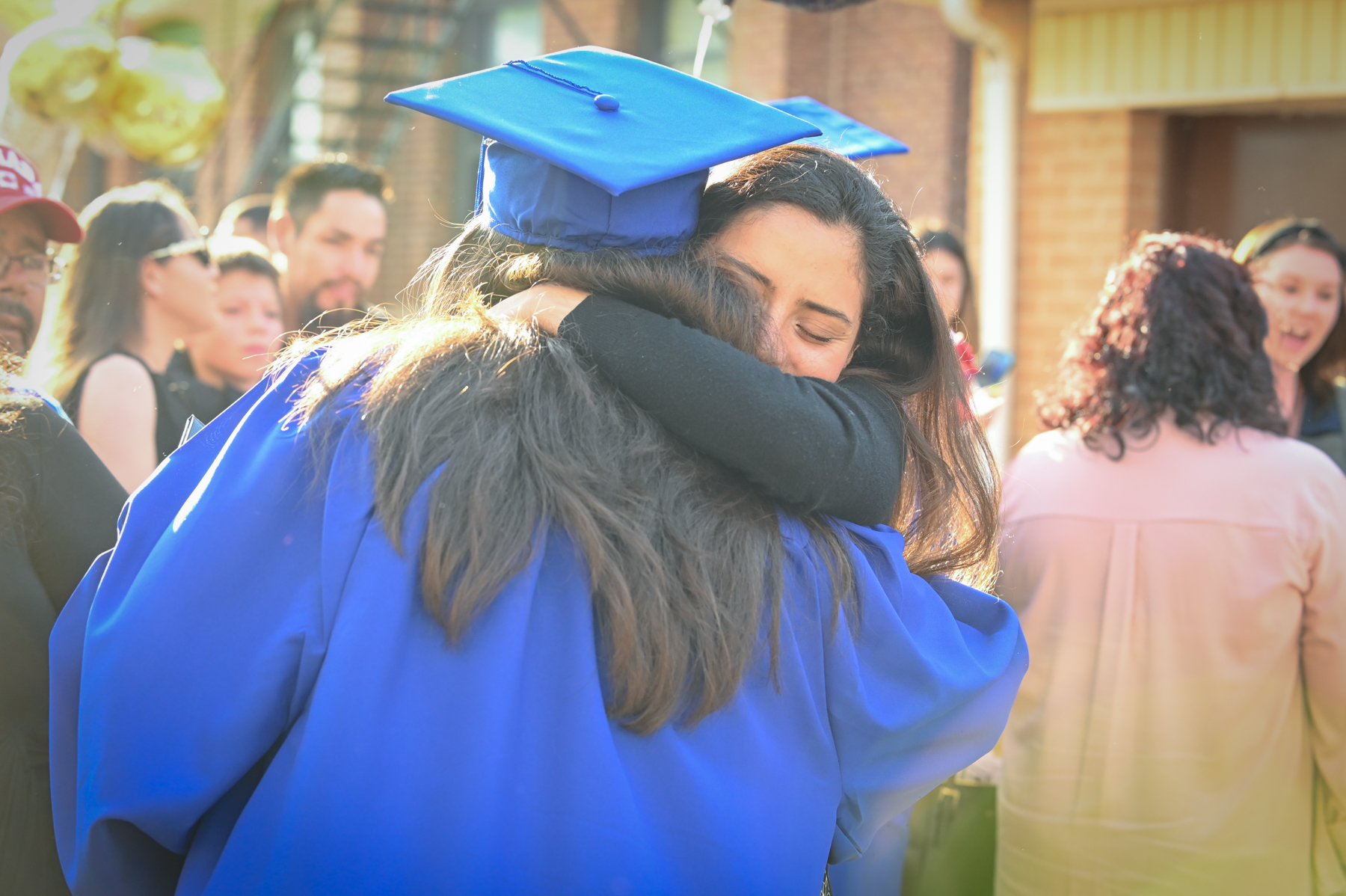
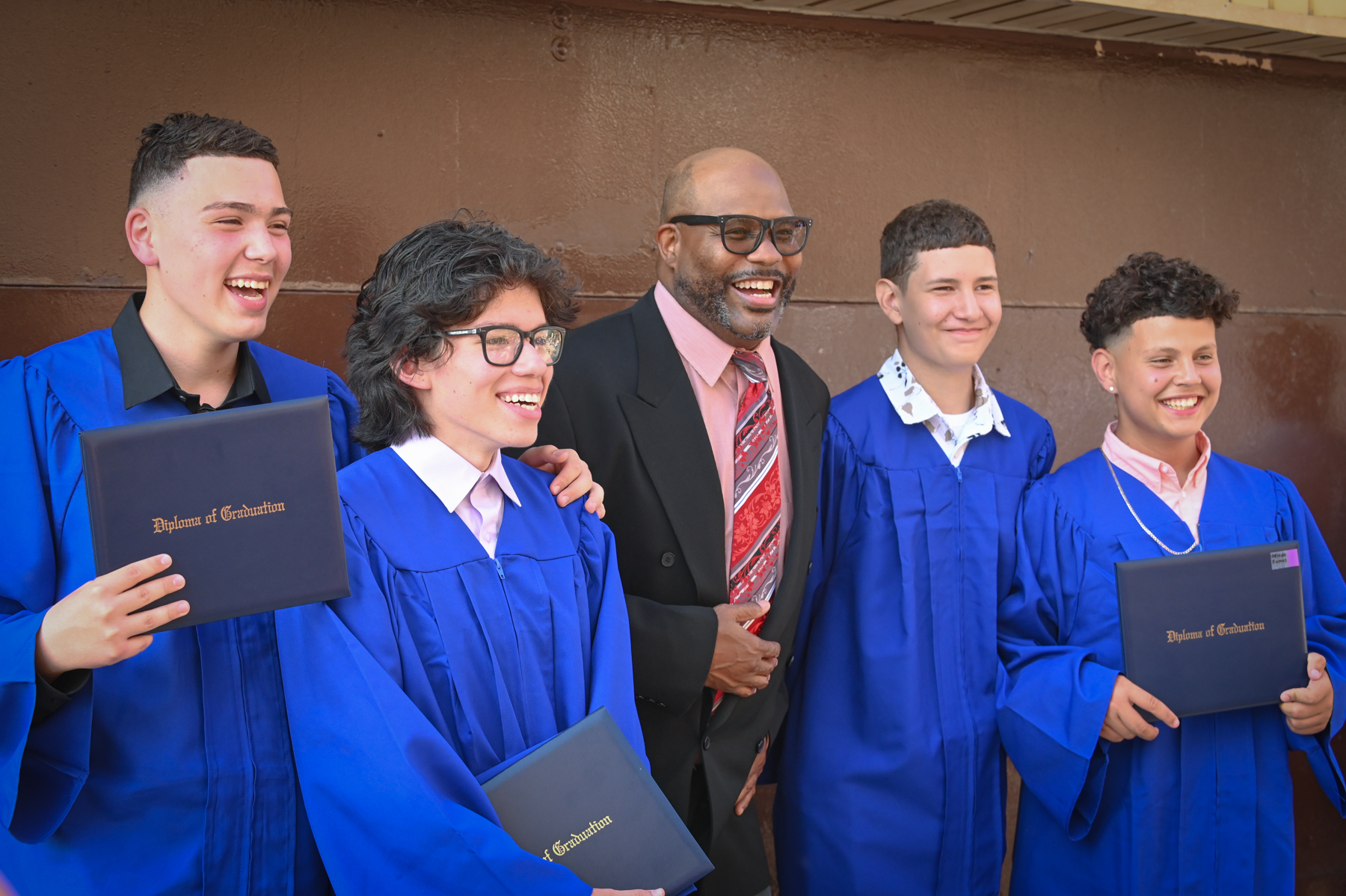
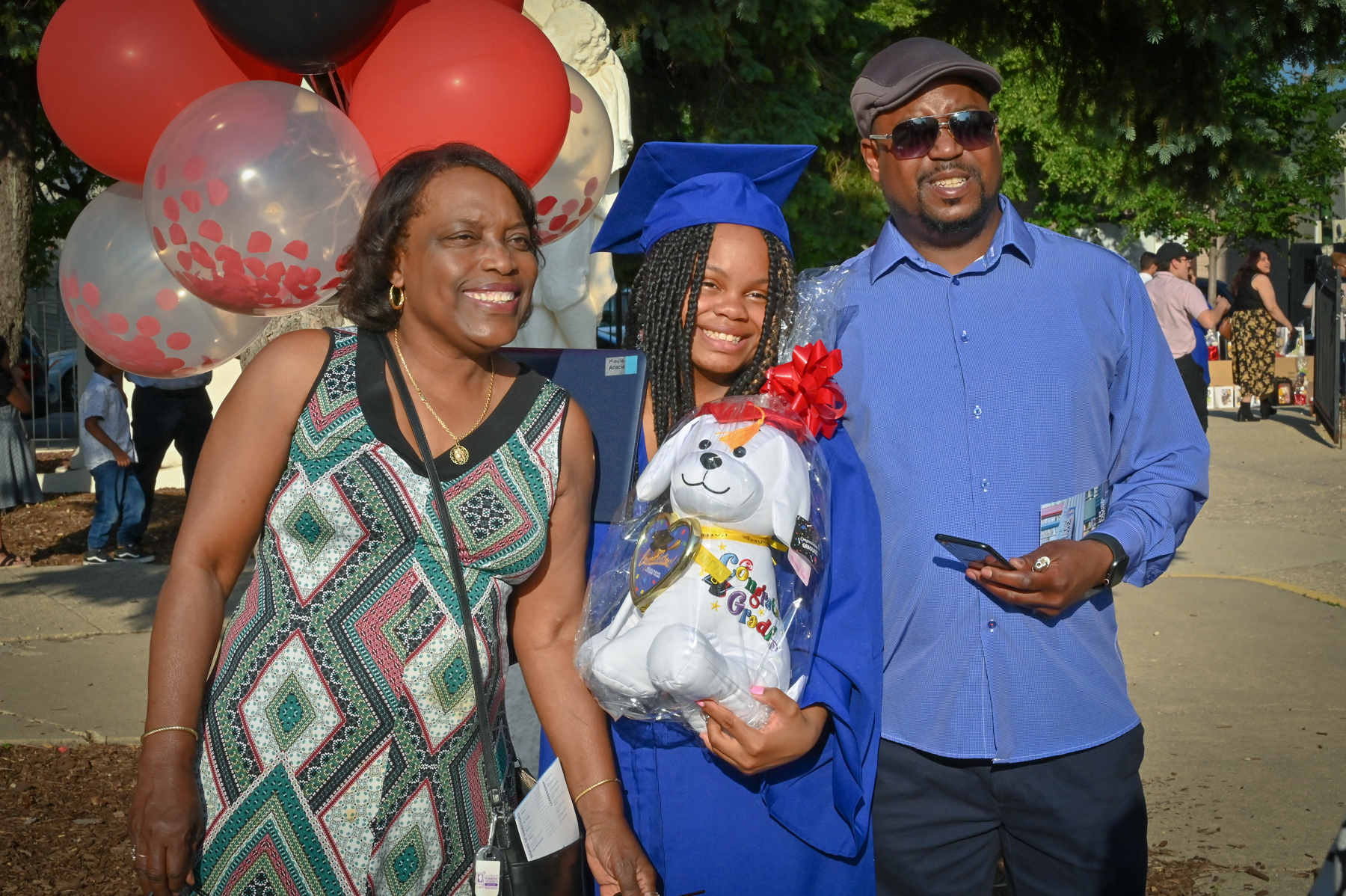

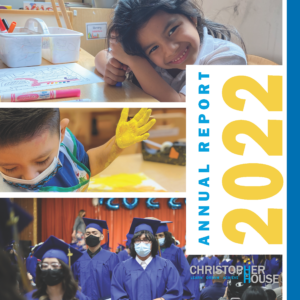


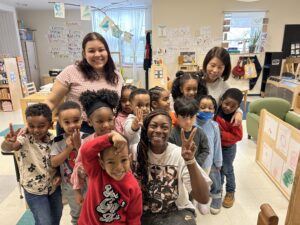 At Christopher House, we believe the greatest pathway for change begins in the classroom with determined, culturally responsive educators who lead with their whole heart. Christopher House would not be Christopher House without the knowledgeable, loving, and highly trained 200+ teachers and staff that work each and every day to make our halls a place of safety, comfort, and growth for the children and families we serve.
At Christopher House, we believe the greatest pathway for change begins in the classroom with determined, culturally responsive educators who lead with their whole heart. Christopher House would not be Christopher House without the knowledgeable, loving, and highly trained 200+ teachers and staff that work each and every day to make our halls a place of safety, comfort, and growth for the children and families we serve.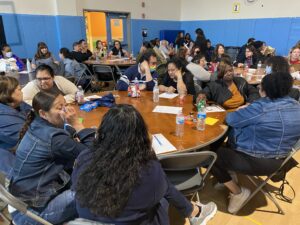 It was our true joy to celebrate our talented teachers and staff during May’s Teacher’s Appreciation Week and recognize the sincere care that they so happily and warmly provide to over 1,500 children and families in the Uptown, Logan Square, and Belmont Cragin Neighborhoods. Throughout the weeklong festivities, teachers and staff participated in many onsite celebrations – walking a red carpet, making gorgeous bouquets, eating tasty treats, and receiving free relaxing massages – which were followed by an all-staff lunch and an “implicit bias and identity” training lead by Brian Corley from Single Story.
It was our true joy to celebrate our talented teachers and staff during May’s Teacher’s Appreciation Week and recognize the sincere care that they so happily and warmly provide to over 1,500 children and families in the Uptown, Logan Square, and Belmont Cragin Neighborhoods. Throughout the weeklong festivities, teachers and staff participated in many onsite celebrations – walking a red carpet, making gorgeous bouquets, eating tasty treats, and receiving free relaxing massages – which were followed by an all-staff lunch and an “implicit bias and identity” training lead by Brian Corley from Single Story.